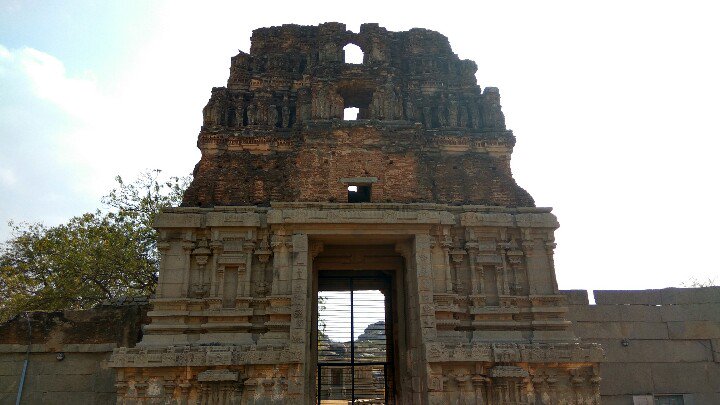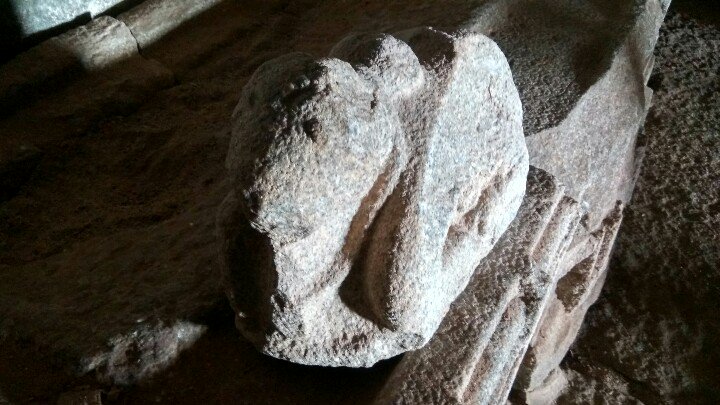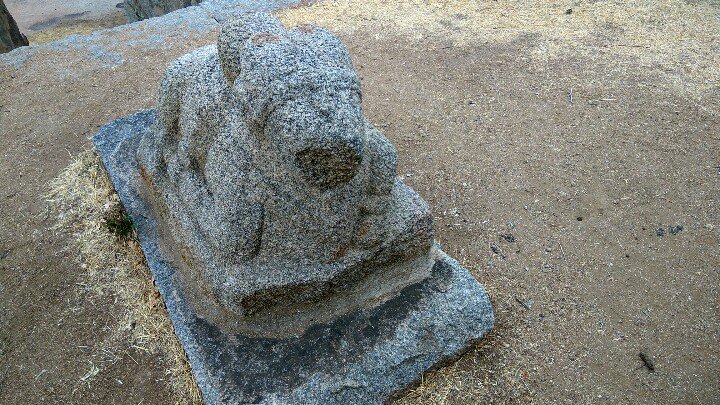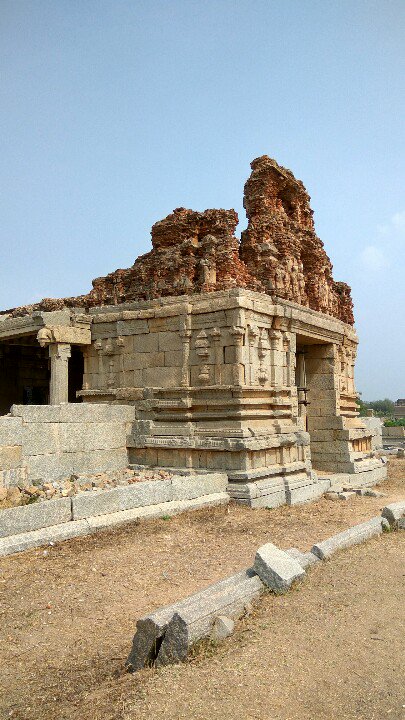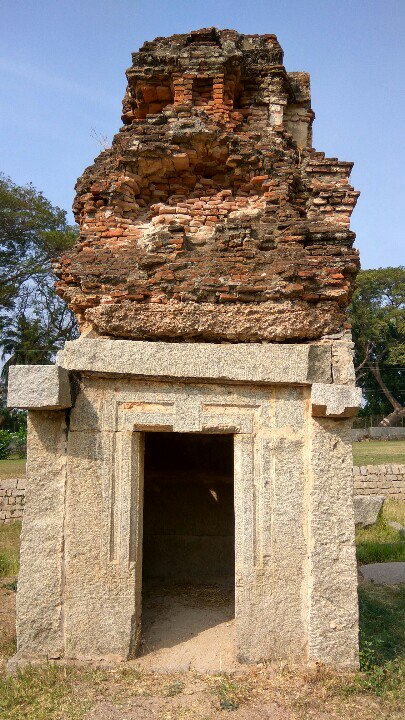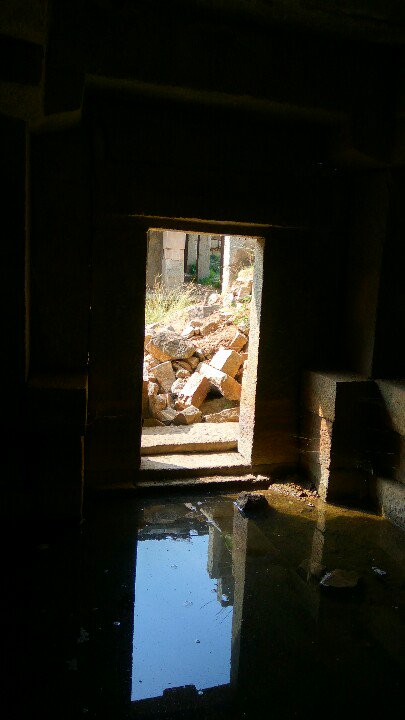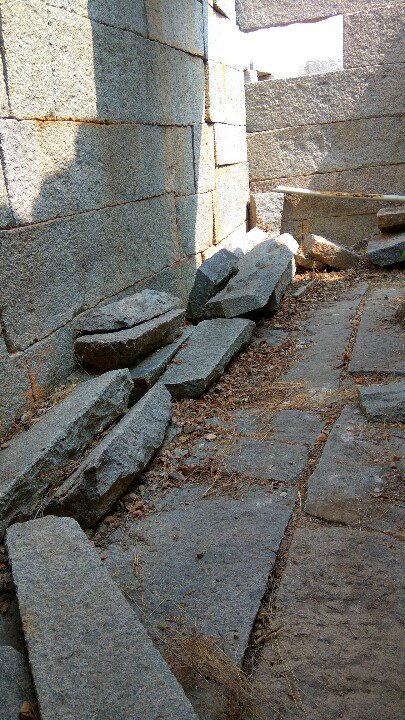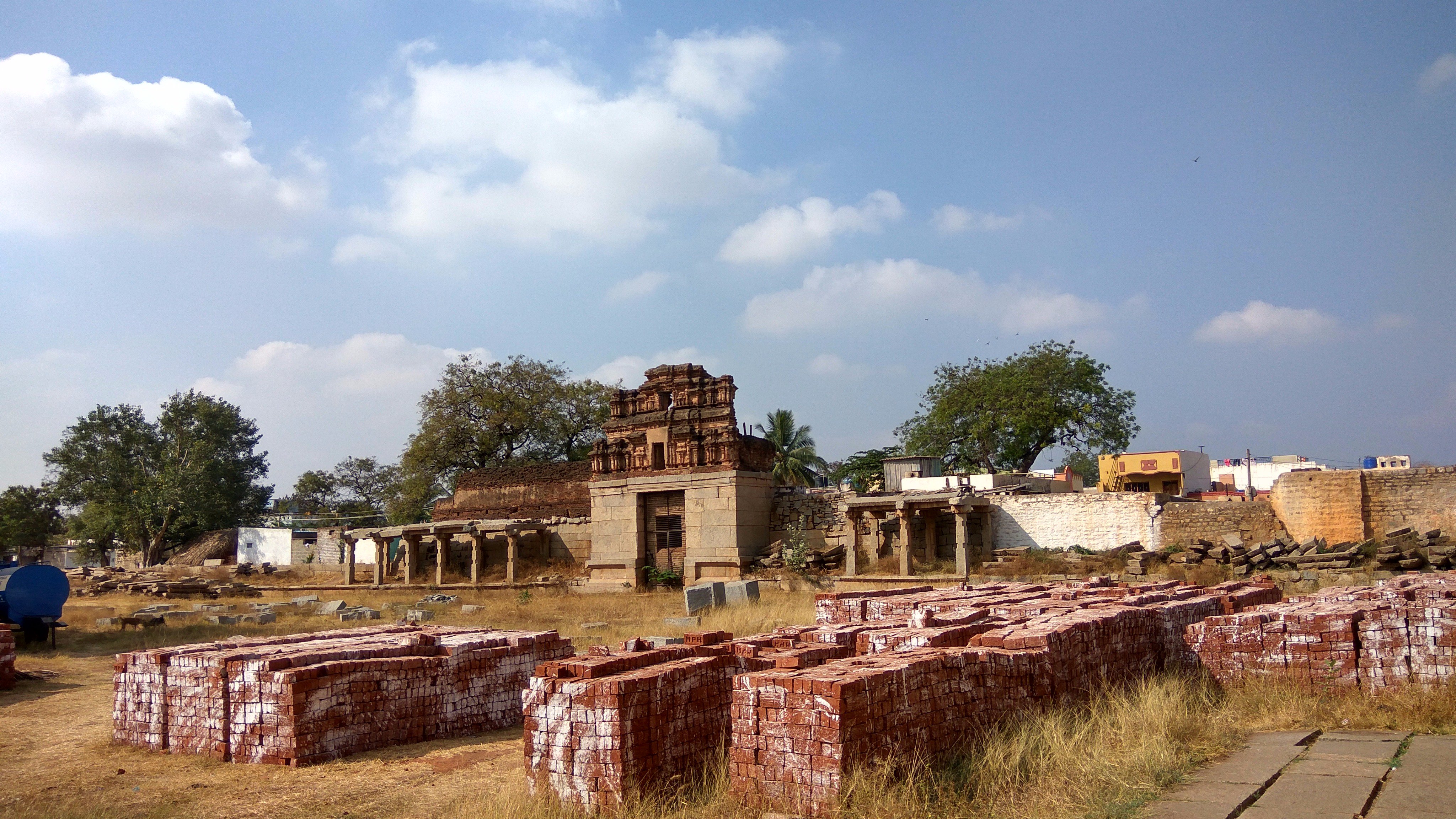Presenting to you what unarguably was the most darkest phases of Indian history. Vijayanagara was the last bastion of Hindu resistance to medieval barbarians. Our leftist nehruvian history books conveniently gave this a miss and unsurprisingly so.
 |
| An artist's impression of the destruction of Hampi by invaders following the battle of Talikota in 1565 CE |
Its a discouraging tale of deceit, backstabbing & betrayal. A story that'll crush your very soul. An episode of history that nevertheless needs to be told & retold, for those who refuse to learn from history are doomed to repeat it. Just like Aliya Rama Raya, the last emperor of Vijayanagara to rule from Hampi.
But before that we'll take a brief look at what led to the founding of the Vijayanagara empire in the first place.
Events that led to the founding of the Vijayanagara Empire
The year was 1296 CE. invading barbarian allauddin khilji dispatched his castrated eunuch general, malik kafur (whom he took as slave during his raid on Gujarat) to plunder Hindu kingdoms beyond the Vindhyas. These included the kingdoms of Devagiri, Kakatiya, Hoysala & Pandya. These were extremely rich kingdoms, flourishing in prosperity. Kingdoms that hadn't seen a single foreign invasion in all of their existence. The presence of no foreign threat meant in typical Hindu fashion they all led their guard down & focused on finer aspects of life like art, literature etc. All this while barbarian khilji destroyed Hindu kingdoms, one after another north of the Vindhya mountains.
Within a period of 4 years between 1308-1311, barbarian kafur would go on to ransack & plunder the 4 southern Hindu kingdoms of Devagiri, Kakatiya, Hoysala, & Pandya. Kafur would go on all the way down to Madurai to defile & ransack the Madurai Meenakshi Amman Temple(which would later be restored by the Vijayanagara kings)
 |
| Hindu Kingdoms of Gujarat, Malwa, Kalinga, Kakatiya, Yadava, Hoysala & Pandya in 1306 CE |
 |
| In just 6 years most of Southern Bharat would fall into the hands of barbaric invaders. |
Between the period of 1311-1336, Southern India would see more waves of barbaric invasions & plunder. Barbarian khilji's plunder was followed by an even more ferocious plunder by khurso khan & muhammed bin tughlug.
The year is 1343 CE, Hoysala king Veera Ballala III, who after the destruction of his capital city Dwarasamudra, set up base at the holy town of Tiruvannamalai would continue giving stiff fight to invading barbarians. Ballala's courageous resistance would come to an end when he'd be brutally killed by barbarain ghiyasuddin, of the madurai sultanate. The body of Veera Ballala would be taken all the way to Madurai & his flesh stuffed on the walls of the Meenakshi Amman Temple.
Veera Ballala didn't die in vain though. He had already laid the foundations to what would later go on to be the Vijayanagara empire, the empire that would go on to cleanse & reconquer Southern India from invading barbarians. Veera Ballala III founded a second capital after the first one Dwarasamudra called Hosapattna on the banks of Tungabhadra river. Hosapattna in Kannada translates to New City.
Veera Ballala's unfinished task of uniting the remnants of the 4 former Southern Hindu kingdoms would be taken forward by Harihara & Bukka Raya, two brothers who had earlier served under Veera Ballala's Hoysala kingdom. The brothers under the guidance of Acharya Vidhyaranya, the Shankaracharya of Sringeri Sharada Peetam would go on to establish one of the greatest empires of Bharat.
 |
| The beginning of the rise of Vijayanagara under Harihara I |
 |
| By 1380 CE under Bukka Raya & his general- son Kumara Kampanna, the empire would go on to reconquer all territories lost to barbarians in Southern Bharat. |
This great empire built on the blood & sacrifice of countless Hindus would go on to thrive & flourish for over 225 years, until tragedy would strike the empire in 1565 CE at the battle of Talikota. The very foundation of the empire would be shaken after 1565, setting it on an irreversible decline. An empire that fell not because it lacked the militarily might or fighting capability, but an empire that fell because the ones trusted to protect its borders turned against it. A tragic end. Its not for nothing that the popular saying goes : "Those who refuse to learn from history are doomed to repeat it". These golden words must be permanently etched in the minds of Hindus, for we are the only ones on the planet that refuse to learn from history.
Various Dynasties that ruled Vijayanagara
Situated on the southern banks of the mighty Tungabhadra river & surrounded by rocky mountains, Anegundi used to be the capital city of Vijayanagara. Later it was shifted to Hampi. The area around Anegundi used to be the same which was ruled by Vanara king Vali. The Pampa Sarvoara finds mention in the Ramayana.It was called Pampa Kshetra. A 7th century Chalukyan inscription attests this fact. Hampi also goes by various names. Virupakshapura, Vidhyanagara, Hosapattana, Hastinavathi, Kunjarakona are some of the names that find mention in ancient inscriptions.
The royal seal of the empire bore the picture of Varaha avatara, since it is believed that Maha Vishnu incarnated as Varaha to destroy asura Hiranyaksha, who takes Bhoomadevi as prisoner. The seal of Vijayanagara was one of powerful symbolism, their goal too was to reclaim Bharat from invader asuras.
Vijayanagara was ruled by 4 dynasties. Sangama, Saluva, Tuluva & Aravidu.
 |
| Family tree of the rulers of Vijayanagara painted inside the Virupaksha Temple at Hampi. |
The Sangamas
Harihara I of the Sangama dynasty ruled from 1336 to 1356. During his reign, his 4 brothers were tasked with governing various regions of the empire. Kempanna governed Andhra, Bukka governed the central region, Marappa was in charge of the western region, while Muddappa managed the coastal region. After Harihara's death in 1356, his younger brother Bukka Raya would ascend to the throne. It is during his reign that Vijayanagara would expand dramatically.
His son, Kumara Kampanna would go on to reconquer all of southern India still under the occupation of invading barbarians. Kampanna would put an end to the madurai sultanate by challenging the last barbarian ruler, sikandar khan to a sword fight. Kampanna would go on to behead the barbarian & there by liberate Madurai. All the Temples of Tamil lands would be restored to the original glory by Bukka Raya & later Sangama kings. That included Temples in Kanchi, Chidambaram, Srirangam, Madurai & many others. Kumara Kampanna's brave exploits were recorded by his wife, Gangadevi by means of a Sanskrit poem. It is called Madura Vijayam. Bukka Raya I would go on to rule till 1377.
The Empire would continue to expand in all directions during the rule of Devaraya I & Devaraya II. New temple complexes like the Hazara Rama Temple would be built during Devaraya I's reign which lasted from 1406-1422. While he was undoubtedly a fair king, he also made several blunders like recruiting non-hindus to his army, building slaughterhouses for them to keep them in good humour. Classical mistakes of a "secular" ruler. These mistakes made in the early 1400's would come back to bite the empire nearly 160 years later at the battle of Talikota in 1565.
By 1447 the empire was in a state of shambles owning to bad governing of later Sangama rulers, touching rock bottom during the reign of Virupaksha Raya II, one of the last Sangama ruler. Constant raids by the bahamani invaders further weakened the empire. It is during this time that Saluva Narasimha Deva Raya, a brave general known for his valor decided to set things right. By 1447 he commanded loyalty of much of the eastern & northern areas. He marched to the capital city & dethroned Virupaksha Raya. Narasimha Raya would go on to rule for the next 6 years.
Narasimha Raya had 2 sons that were too young to ascend to the throne after his death in 1491. Narasa Nayaka of the Tuluva dynasty, a trusted minister in the court of Narasimha Raya was tasked with the guardianship of the 2 sons. Meanwhile Narasa Nayaka for all practical purposes ruled the empire. This was a very turbulent phase in the empire. The old Sangama loyalists & the new emerging Tuluva chieftains were constantly infighting. This unfortunate situation led to the further weakening of Narasimha Raya II, the younger son of Narasimha Raya who ascended the throne after his father's death. But Narasa Nayaka would put an end to all that by completely quelling all rebellions by the old Sangama loyalists. A semblance of unity & order would return to the empire until the death of Tuluva Narasa Nayaka in 1503.
The Tuluvas
Following the death of Tuluva Narasa Nayaka, his son Viranarasimha Raya (half brother of Shri Krishnadevaraya) would take charge. His reign would last for around 6 years. In this time he had to contend with numerous rebellions within the empire.
The next to ascent the throne was the greatest & most powerful emperor of Vijayanagara, Shri Krishnadevaraya. Under his rule the empire reached its very zenith,both in terms of territorial extent & cultural growth. Under his rule previously lost territories would be reconquered, new temples built, old temples restored.
Krishnadevaraya ascended the throne on August 8th 1509 on the eve of Krishna Janmasthami. He was just 25 years old at the time of coronation. These was instabilty in the empire at the time of coronation. So he stayed in Hampi, the capital to study the political & social condition of the state. At the time (1509) barbarians mahmood shah bahmani II of the bahamani sultanate and yusuf adil shah of the sultanate of bijapur would unite to wage jihad against Vijayanagara. The armies of Devaraya would go on to defeat both barbarians resulting in the complete annexation of territories of Bidar, Gulbarga & Bijapur into Vijayanagara. This comprehensive defeat of invaders would eventually lead all of them to unite in the years that follow. One that proved fatal for Vijayanagara in 1565CE.
Krishnadevaraya's glorious reign would last till 1529, after which the slow decline of the empire would begin, culminating in the disaster at Talikota in 1565. After Devaraya's death, his brother
Achyuta Deva Raya would ascend the throne.
During Achyuta Deva Raya's rule many feudatories would declare independence due to extremely bad governance & shambolic state of the empire. These included Madurai, Thanjavur & Ikkeri. The man behind these machinations was Aliya Rama Raya, the son-in-law of Krishnadevaraya. In his quest for power, he'd go on to commit some of the biggest blunders that would eventually end the empire in 1565.
Rama Raya would eventually have Achyutaraya imprisoned & have Achyutaraya's 2nd son Sadasivaraya installed as a puppet. Sadasiva ruled from 1543 to 1571. He was only a nominal king. All the powers was vested with Aliya Rama Raya who recruited a large number of non-Hindus into the army.
Battle of Talikota
Aliya Rama Raya, now drunk with power had become so overconfident & complacent that he stopped seeing the various sultanates north of the Krishna river as any kind of threat. He saw the recruiting of non-hindus into the army of Vijayanagara as a sure shot way to prevent war. He suffered from a disease what we in the 21th century call as "secularism".A disease that would eventually lead to his beheading & defeat of the empire.
Even though Rama Raya was a shrewd operator, the sultans of the deccan proved to be shrewder than him in the end. Each made Rama raya fight against another sultan in an act of deceiving, leading Rama Raya to believe that they were not united, eventually letting his guard down.
The united barbarian forces of Ahmednagar, Bijapur, Golkonda, Bidar & Berar would one fine day assemble at Talikota in 1565 & give a very clear call for Jihad against the Hindu army of Vijayanagara.
 |
| Territory under Vijayanagara on the eve of the battle of Talikota. |
The war would go on to take place at Rakkasatangadi on tuesday, the 23rd of January 1565 CE. Ramaraya would fight the army of Ahmadnagar while his brother Tirumala faced the armies of Bidar & Golkonda. Another brother Venkatadri took on the army of Bijapur.
Just as victory was in sight for the Vijayanagara army, two traitor generals, known as the Gilani brothers, recruited into the army by Rama Raya himself would turn on him & join the enemy camp. This would cause major confusion within the ranks of the Vijayanagara army that would eventually lead to the capture & beheading of Aliya Rama Rama. The invaders would spare absolutely no time in beheading him.
The death of Aliya Rama Raya would cause major pandemonium. His brother Thirumala learning of his brother's death would escape to Chandragiri with the wealth of the empire. He'd take with him puppet king Sadasivaraya & the ladies of the royal family. All of Hampi would be deserted. The ones that stayed back to put up a fight to save the Temples would be slaughtered mercilessly by the barbarians. And thus began one of the most brutal destruction of a city. Stuff that's made of nightmares.
The Aftermath
The aftermath of the humiliating defeat at Talikota would be the destruction & plunder of one of the most prosperous, wealthy & most populated city on the entire planet at the time. Invaders camped in the city for over 6 months just to destroy it. The kind of destruction heaped on Hampi cannot be expressed in words. Only pictures can do justice, which is what am going to share now.
CAUTION : THIS IS GOING TO BE EXTREMELY PAINFUL TO LOOK AT
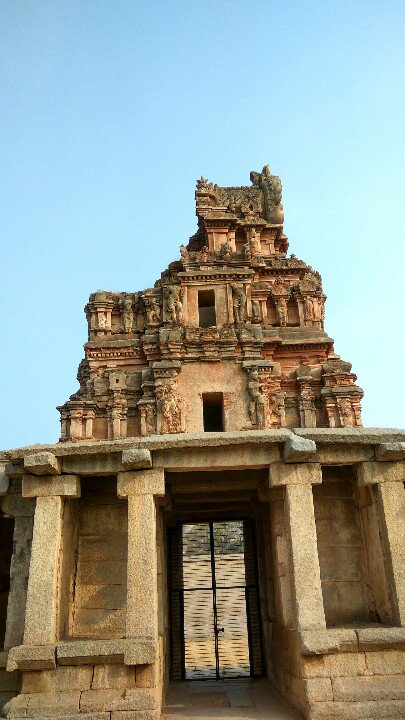 |
| North Gopuram of the Shri Krishna Temple |
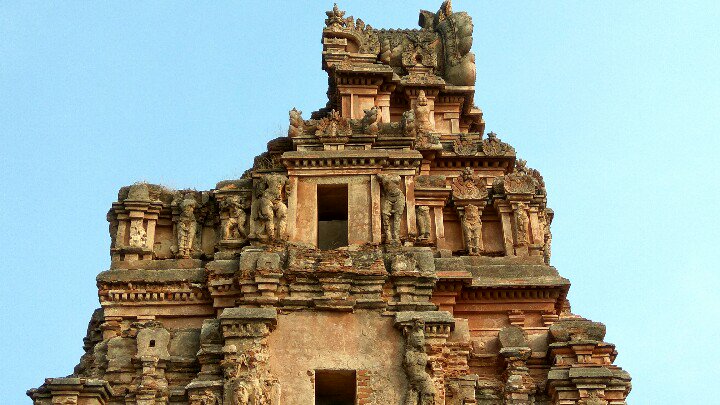 |
| They wrecked it like a crescent. Touche' |
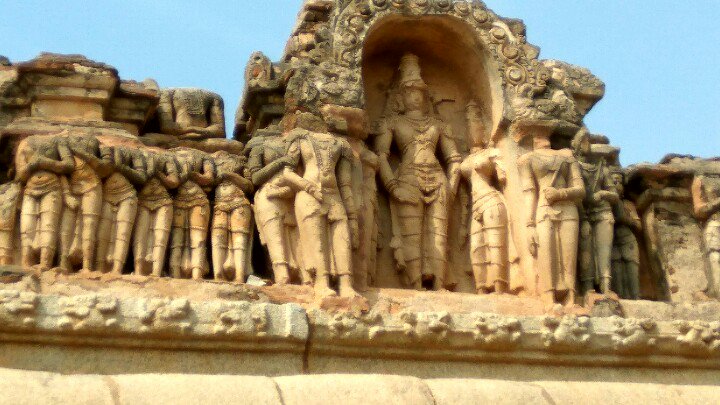 |
| ISIS style beheading of our carvings. |
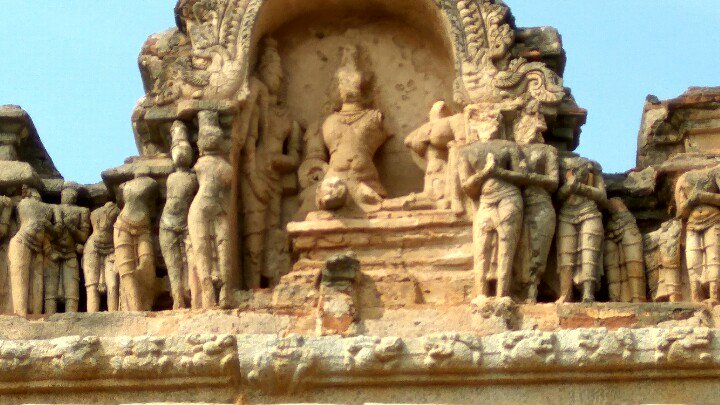
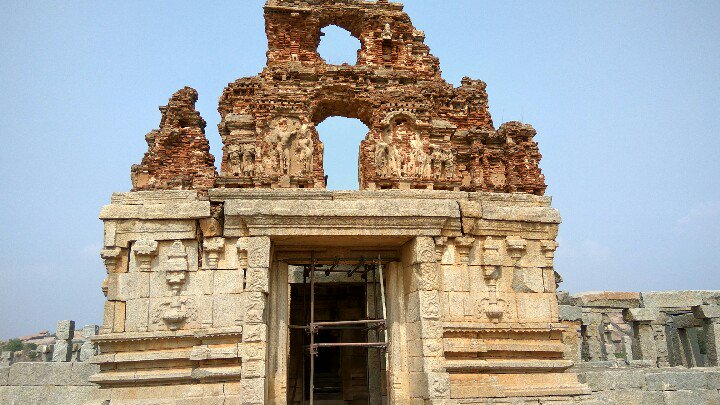 |
| Destroying one gopuram wasn't enough to teach us infidels that our god was false. But to wipe it off our history books was sufficient. Shame |
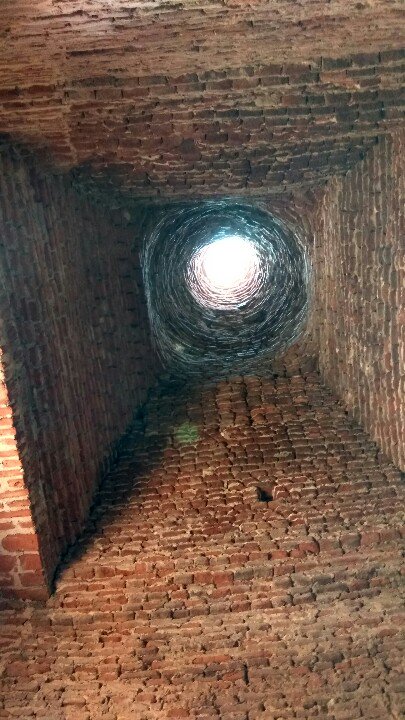 |
These are not some random holes in some gopuram, seeing it punches a hole through one's very soul. This generation doesn't even get it...
|
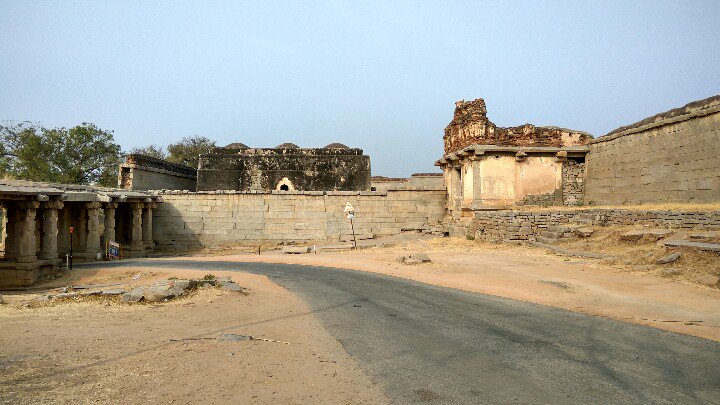 |
| Invader structure built within the confines of the Krishna temple. Invaders used to rest here after a tiring day's work of Temple breaking. |
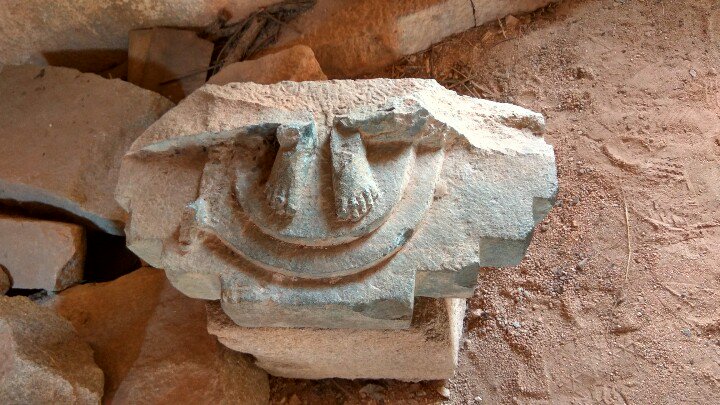 |
| This one was a surprise. Jehadis usually go for the throat, they went for the feet this time. In case you arer wondering... Its Lord Vishnu's |
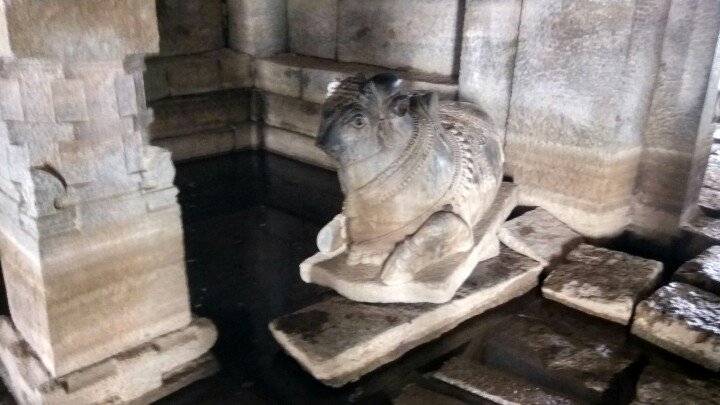 |
| Barbarians surely have some kind of special hate for Nandi. Not a single one spared. NOT ONE. |
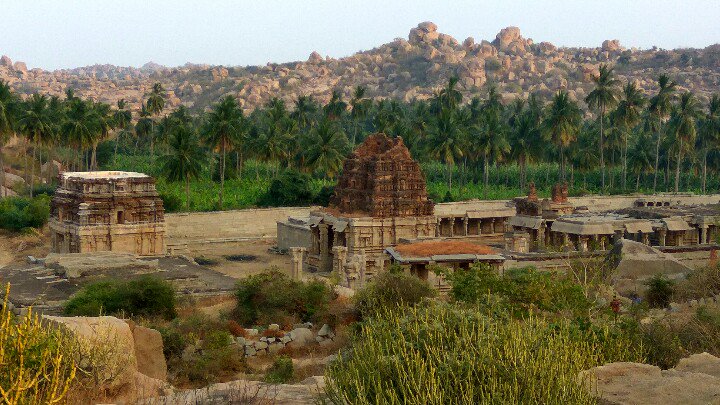 |
| Achyutaraya Temple |
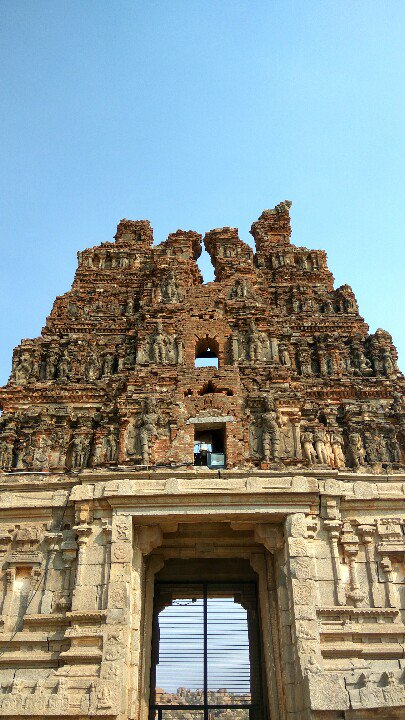 |
| Temple after temple, structure after structure its the same story. Nightmarish experience. |
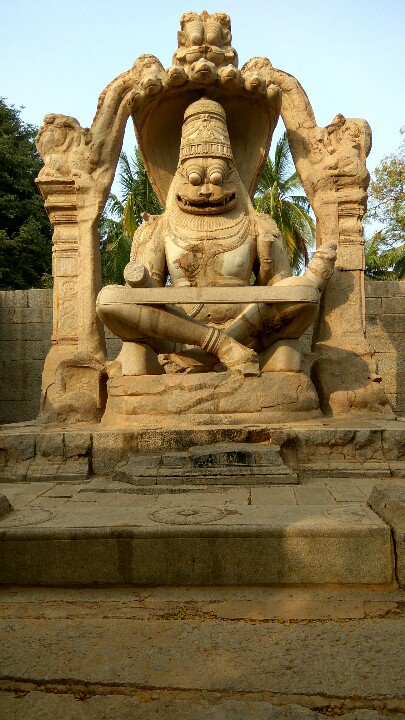 |
| If nehruvian-marxist historians had it their way, they'd have no hesitation in claiming this Murthi of Narasimha lost its arms because of a lightning strike. They'd go to any extent to whitewash crimes by invaders. |
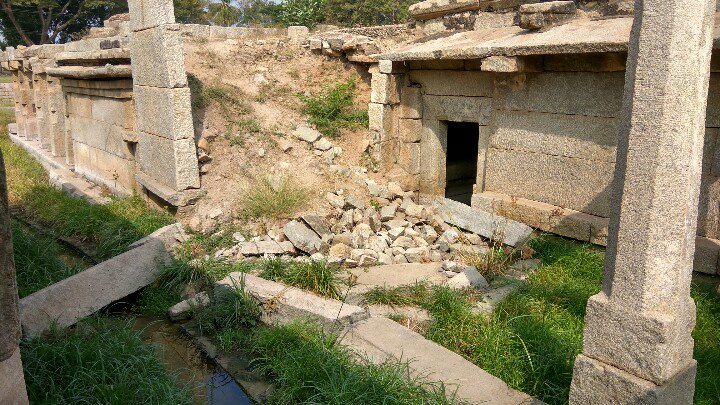 |
| Patala Shiva Temple |
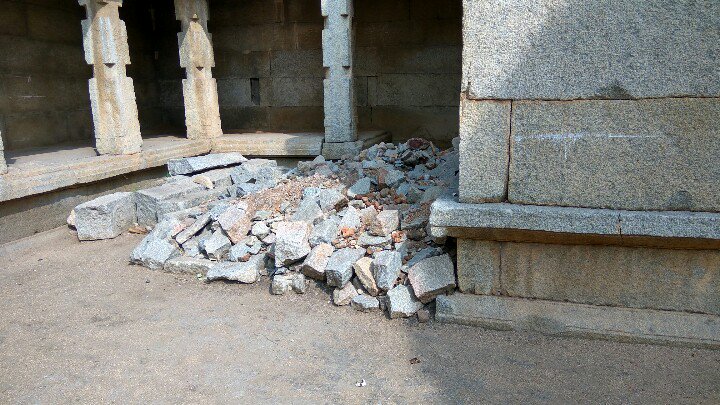 |
| Thank the ASI for NOT clearing the debris & sanitizing the site. Made the experience truly painful. Pain is good. Strengthens resolve. |
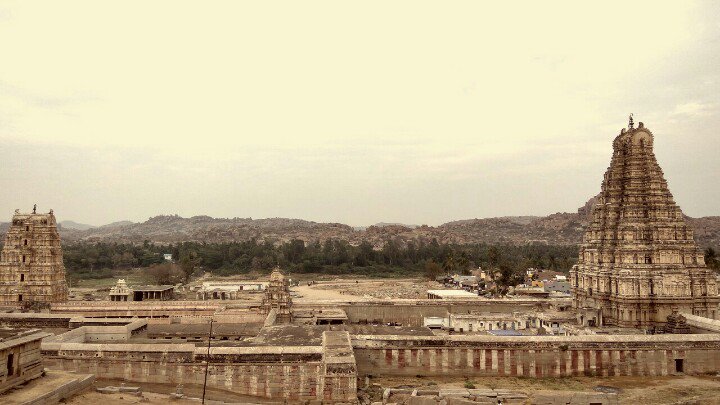 |
| Despite the rape & plunder of Vijayanagara....it still exists... Not in our leftist history books, but it exists.. Now its time to re-educate ourselves on our real history. |
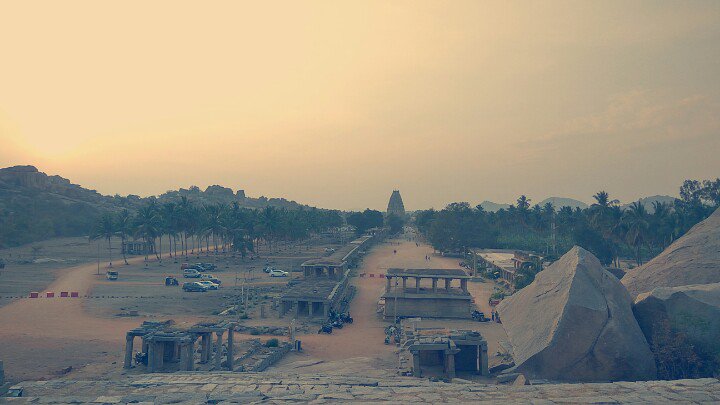 |
| View of Hampi Baazar |
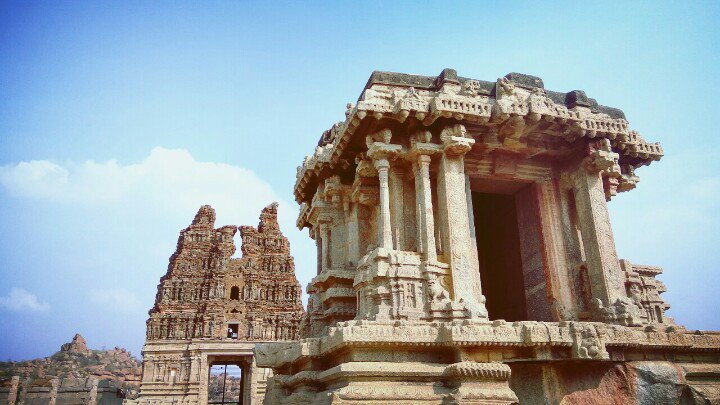 |
| Vijaya Vittala Temple |
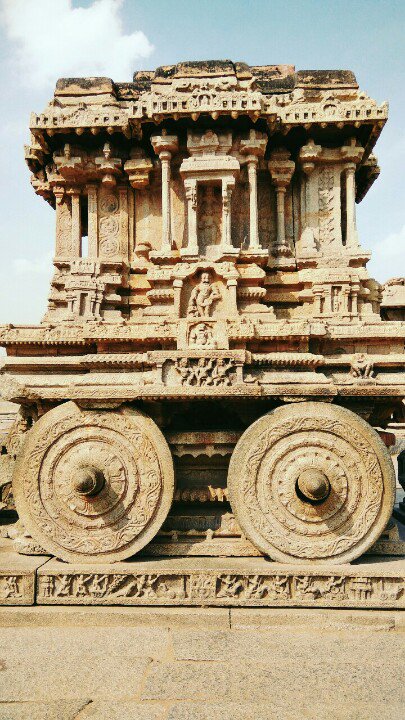 |
| Ratha (Stone Chariot) |
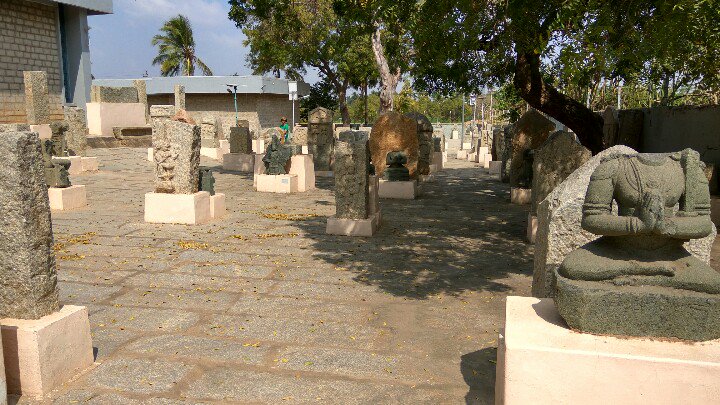 |
| A visit to Hampi is incomplete without visiting the Kamalapura museum. What you'll see there will completely shatter you. Murthi after murthi, mutilated in the most gruesome way possible. |
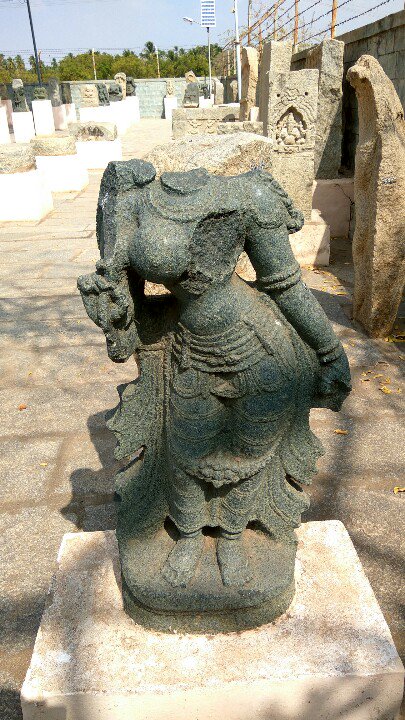 |
| This one mutilated murthi of a female deity haunted me the most. The murthi is gone, but the evil ideology behind the destruction is stronger than ever. |
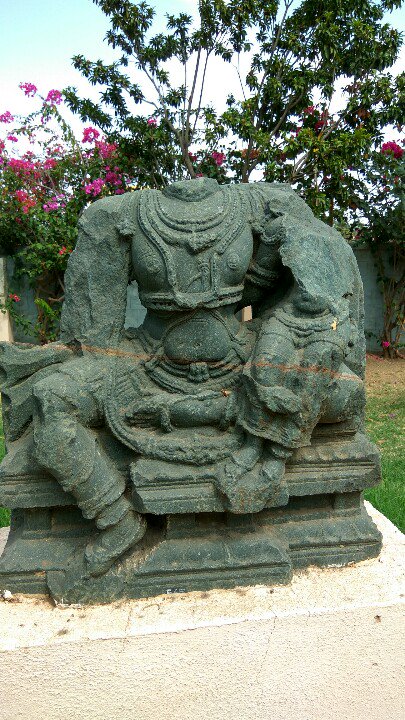 |
| Beheaded Lakshmi Narasimha |
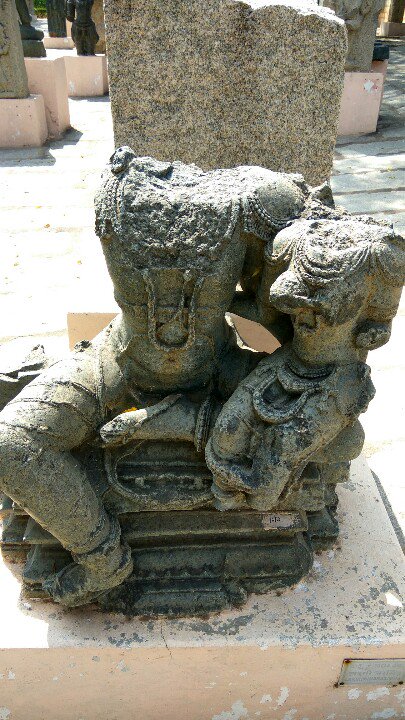 |
| Beheaded Lakshmi Narasimha |
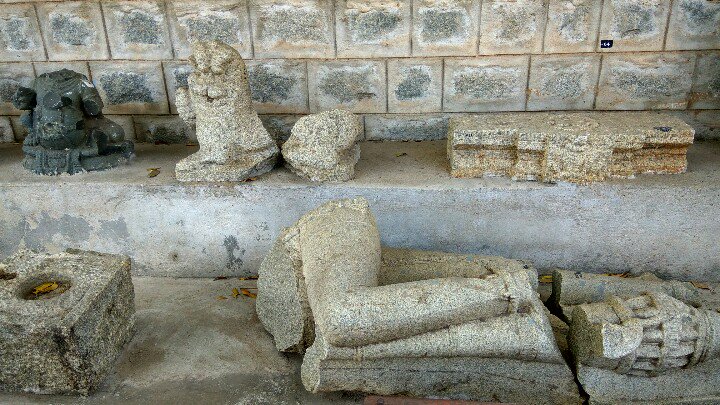 |
| More carnage |
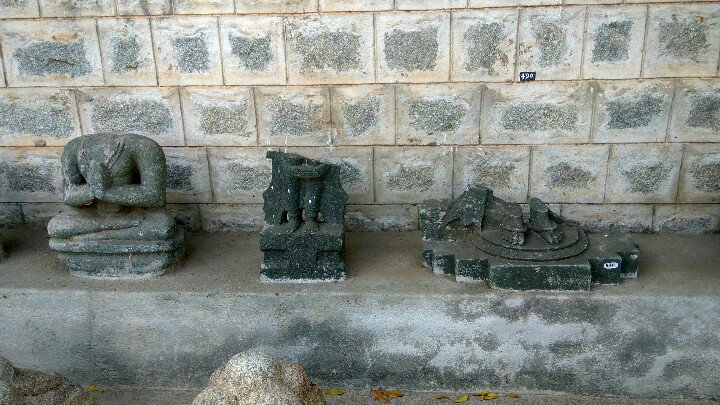 |
| More dismembered Murthis. |
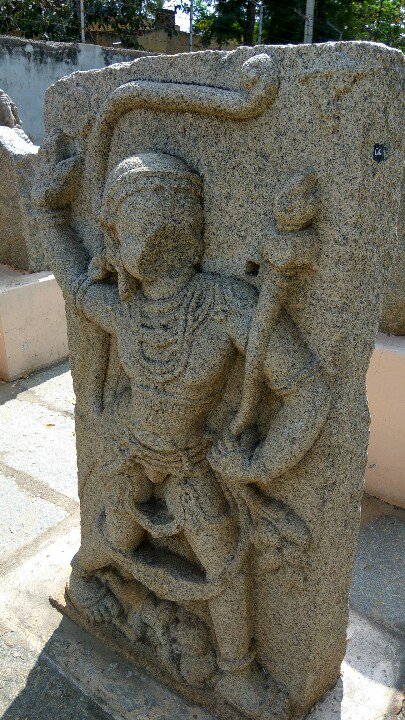 |
| Hanuman's face defiled |
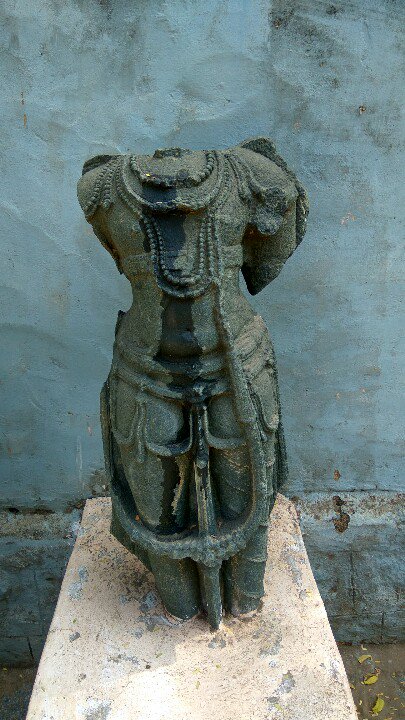 |
| More carnage & destruction. Why are all these pictures missing from our history textbooks? Secular cover up? |
 |
| Maha Vishnu Temple |
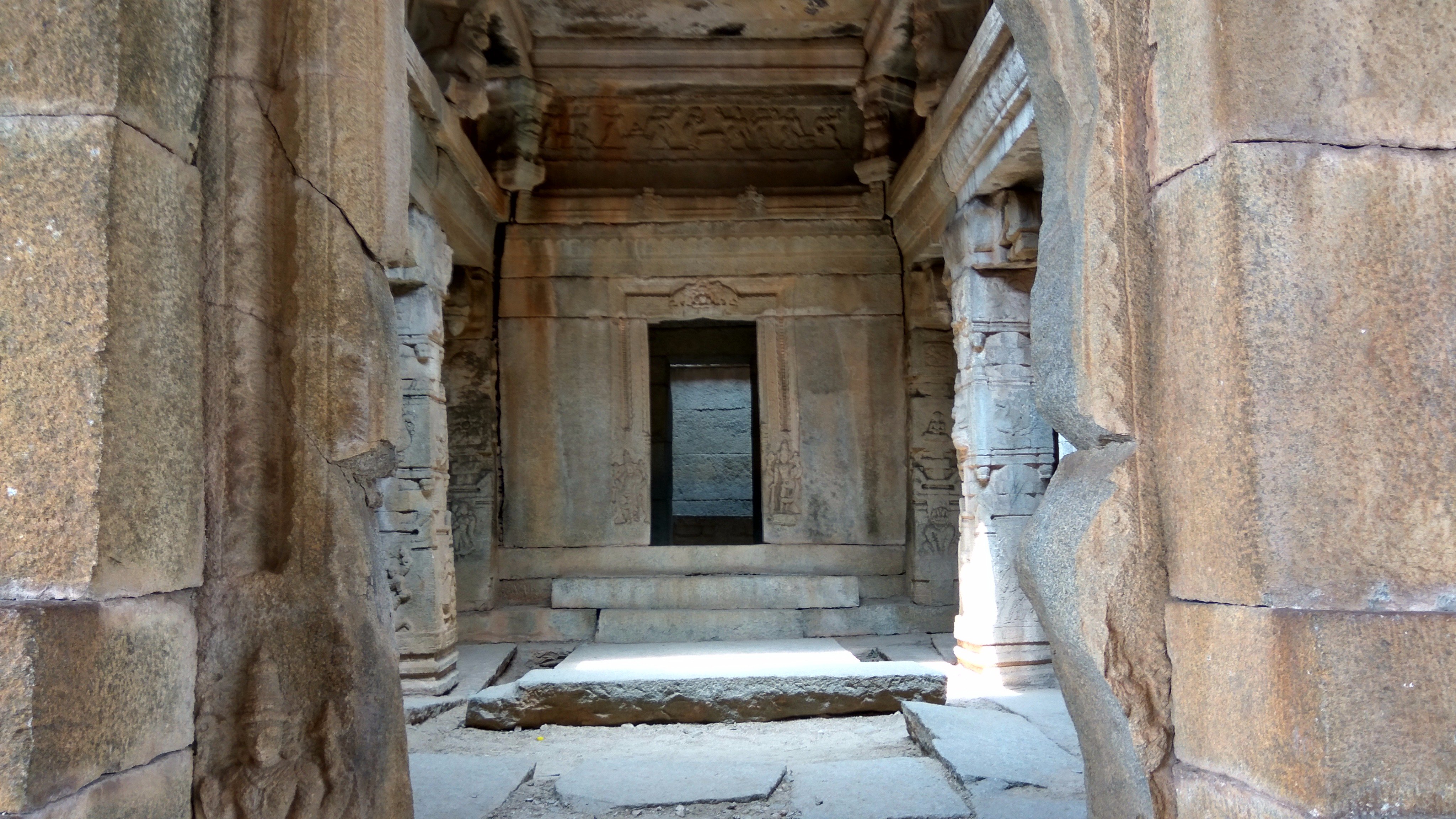 |
This is from the past. Mutilated Gopuram, wrecked Garbhagriha, pillaged Murthi. Could very well be the future if we don't learn lessons from the past.
|
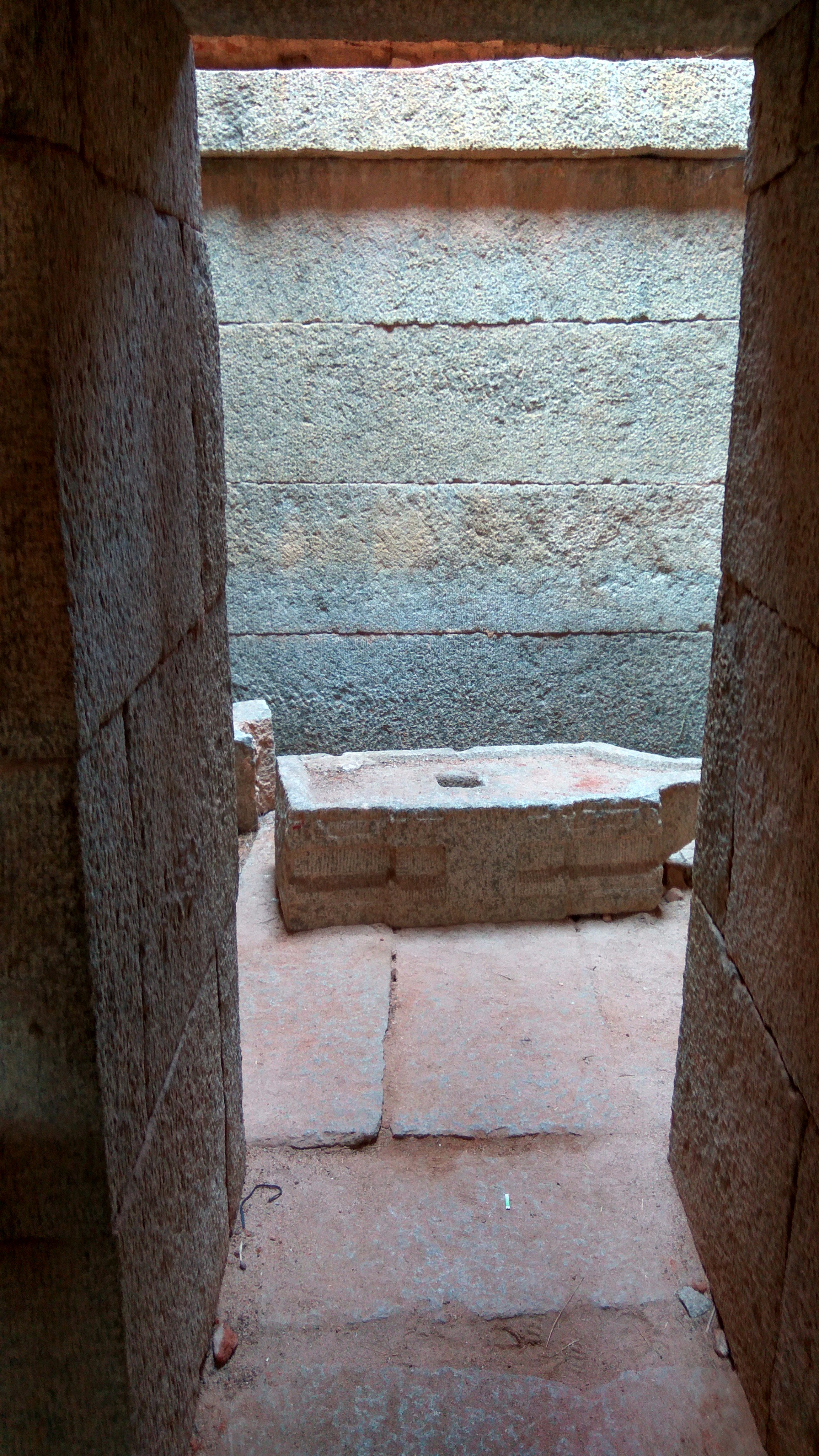 |
| Missing Murthi |
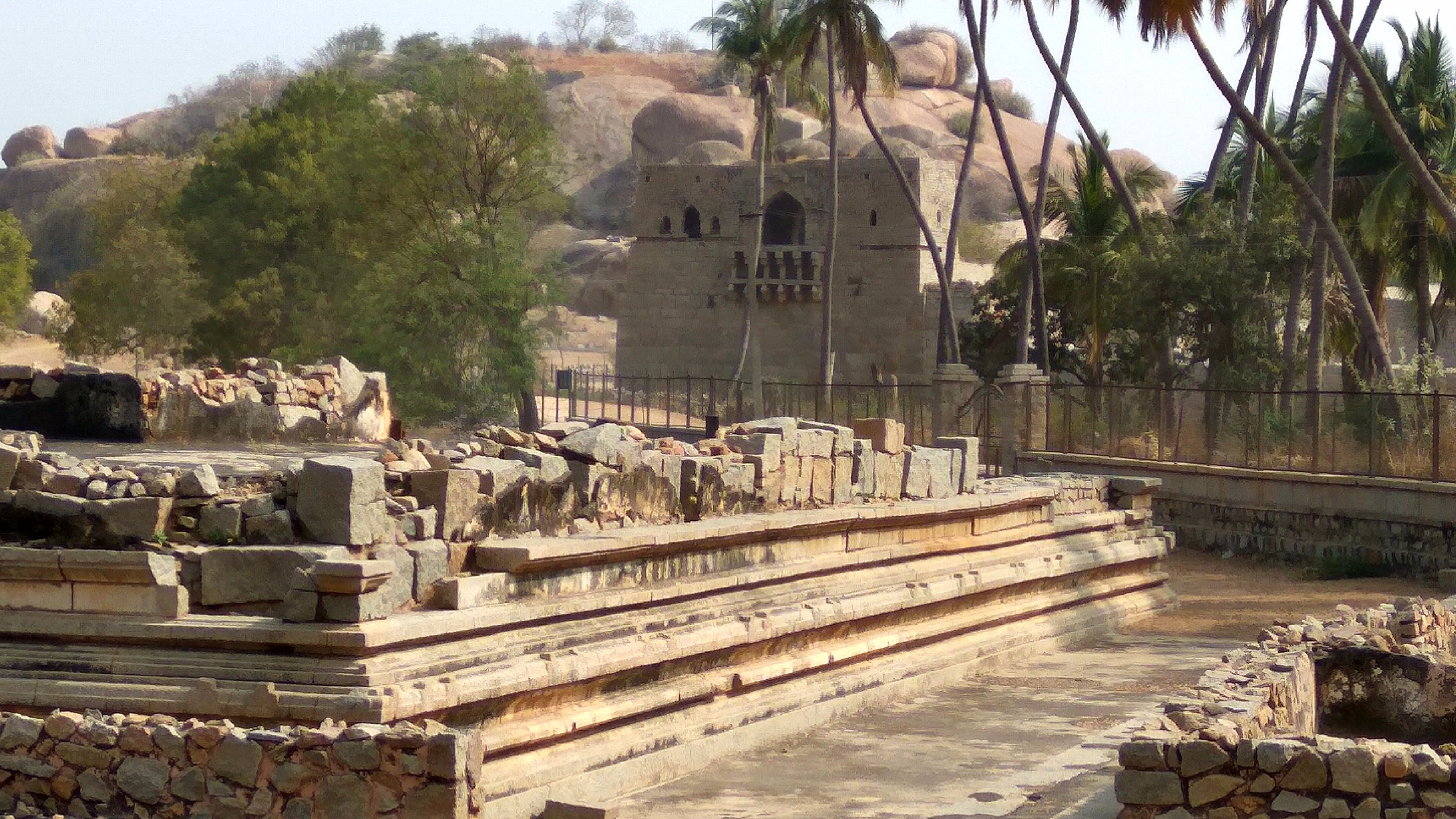 |
| Invader structure built over the site of the demolished royal palace of the founder of Vijayanagara empire, Harihara I. |
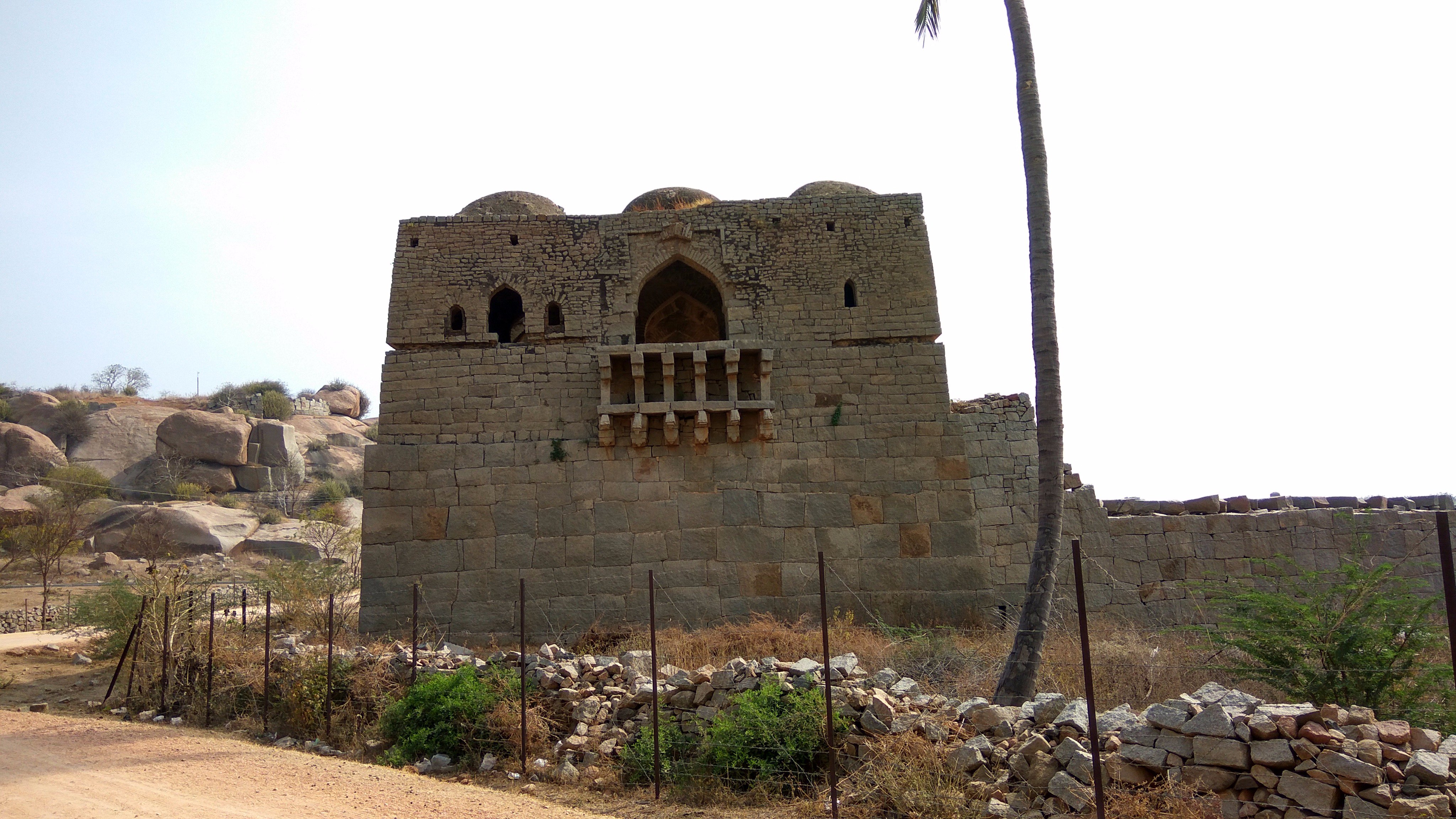 |
| Invader structure built after demolition of the Palace of Vijayanagara's founder, Harihara I |
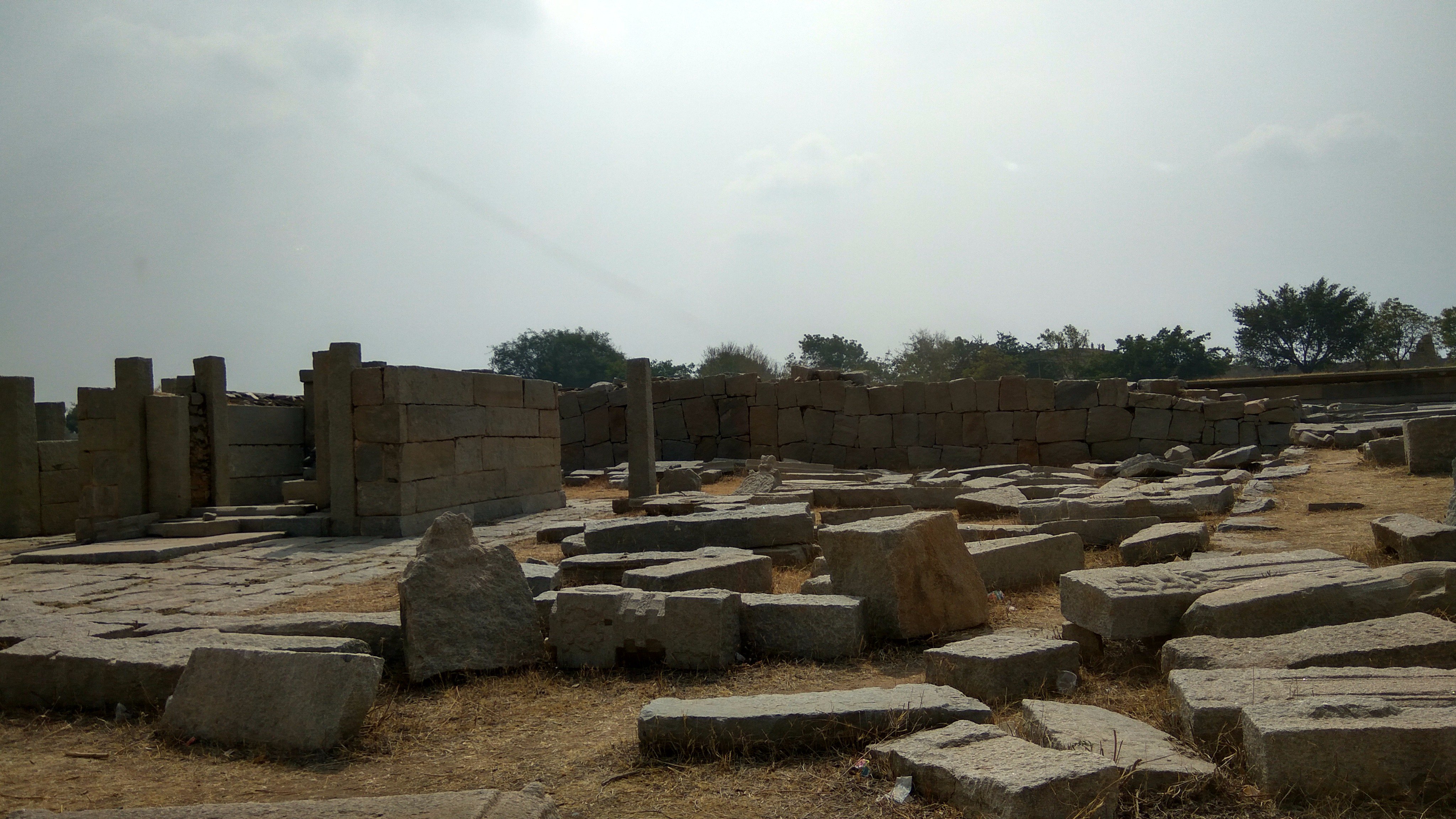 |
| Ruins of Harihara's palace |
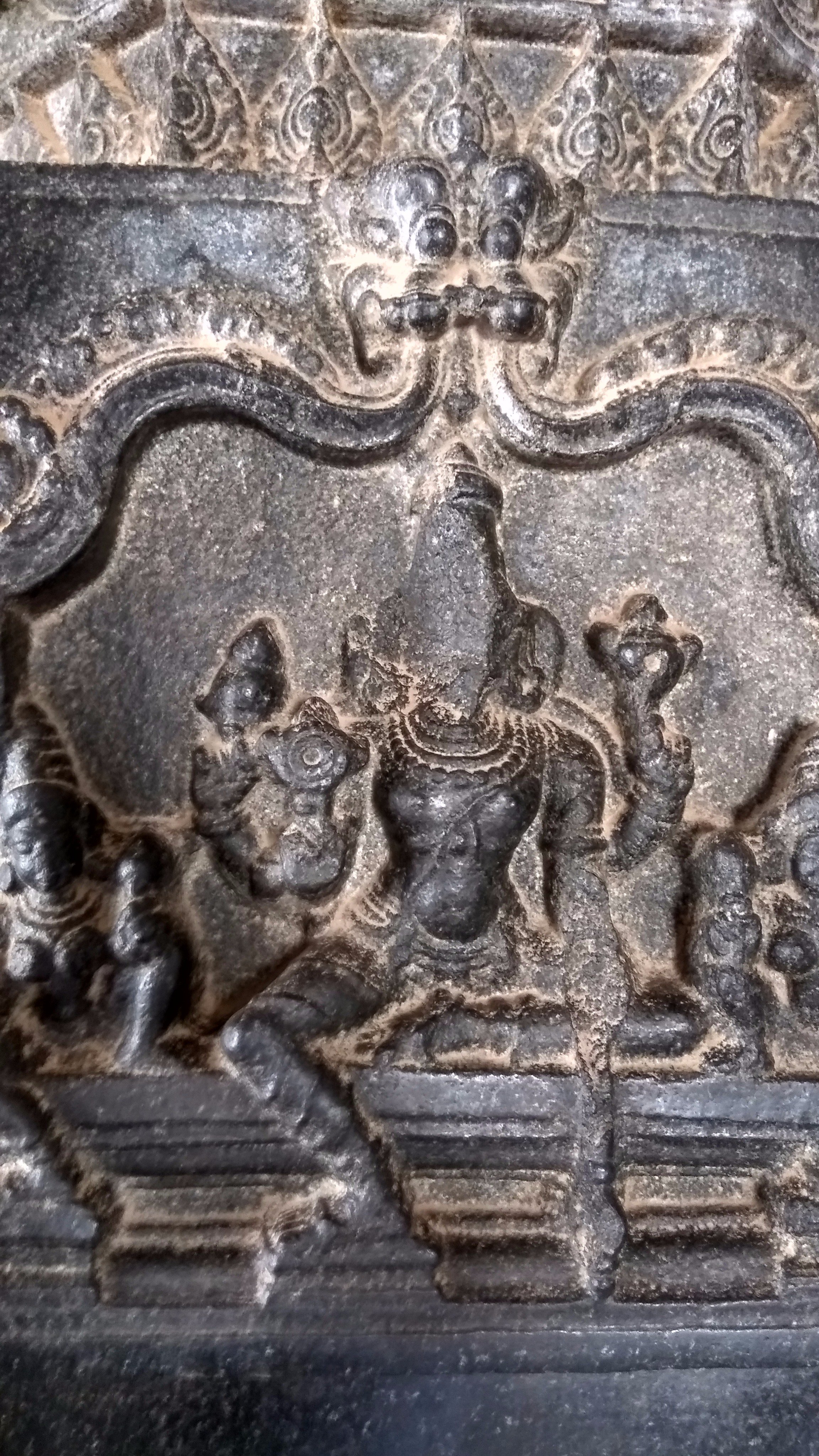 |
| Mutilated carvings at the Hazara Rama temple next to the demolished palace. |
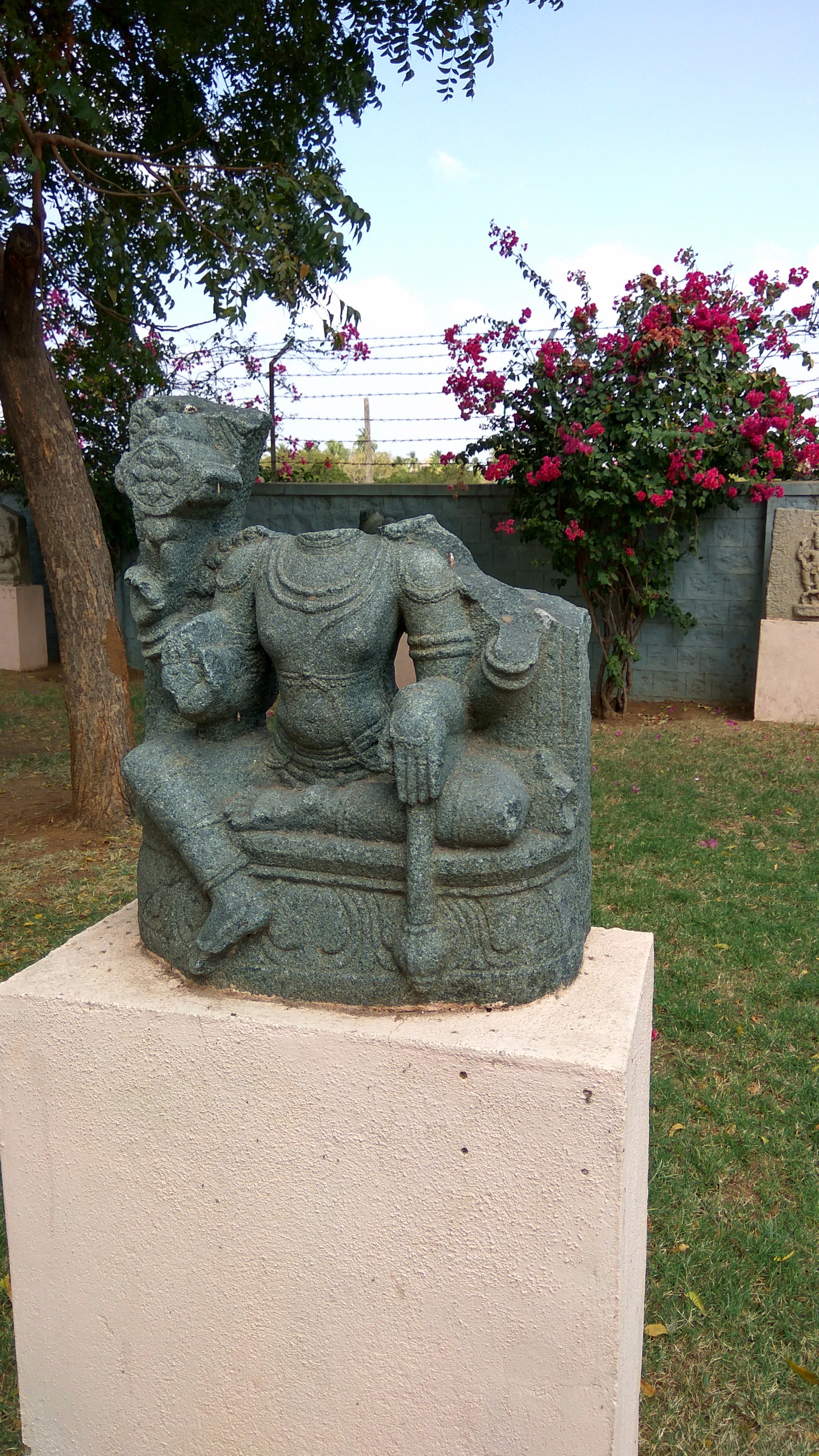 |
More harrowing pictures. When will the
HRD ministry include these in the history books? Or is this story not worth telling at all?
|
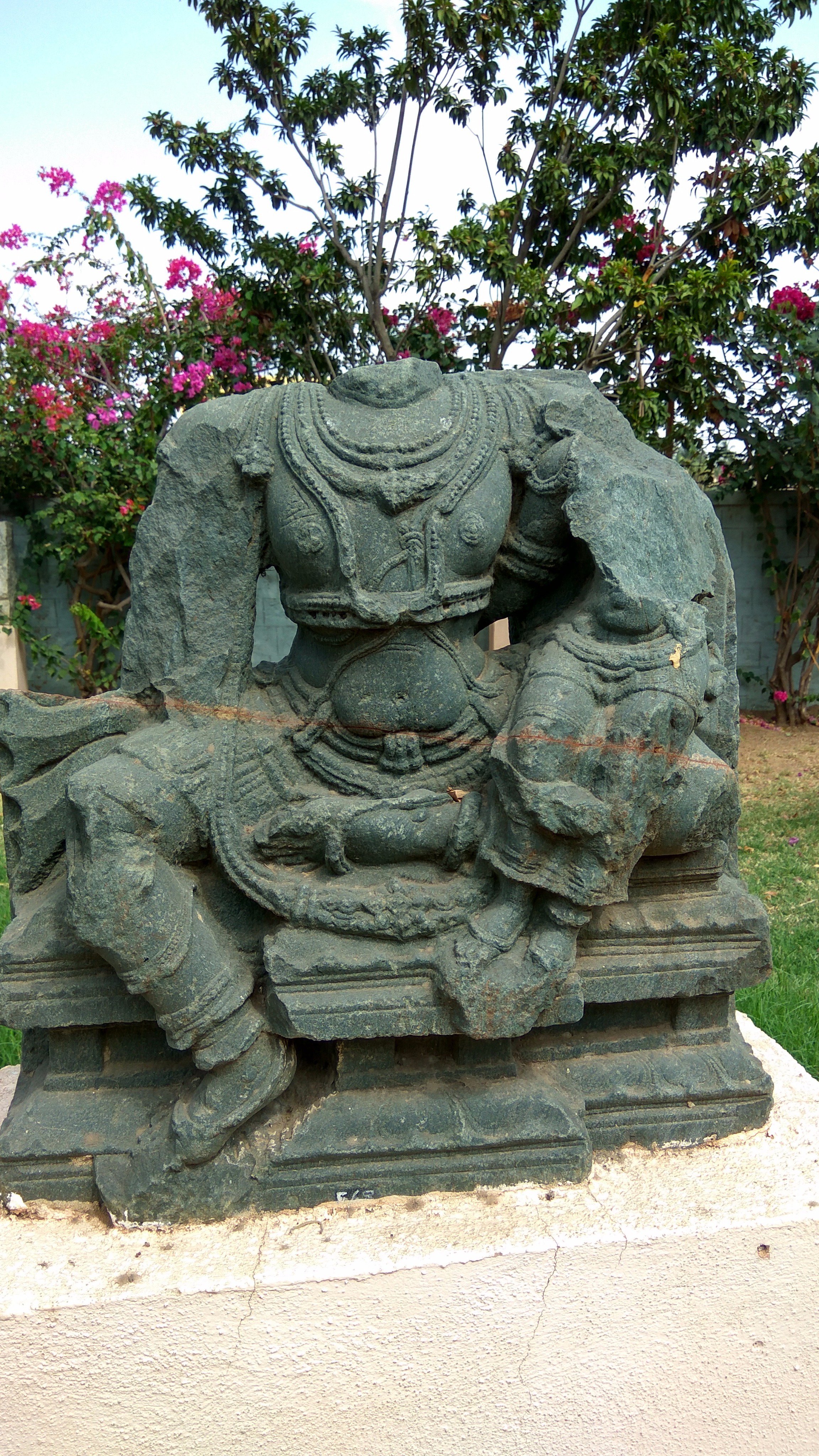 |
| Lakshmi Narasimha |
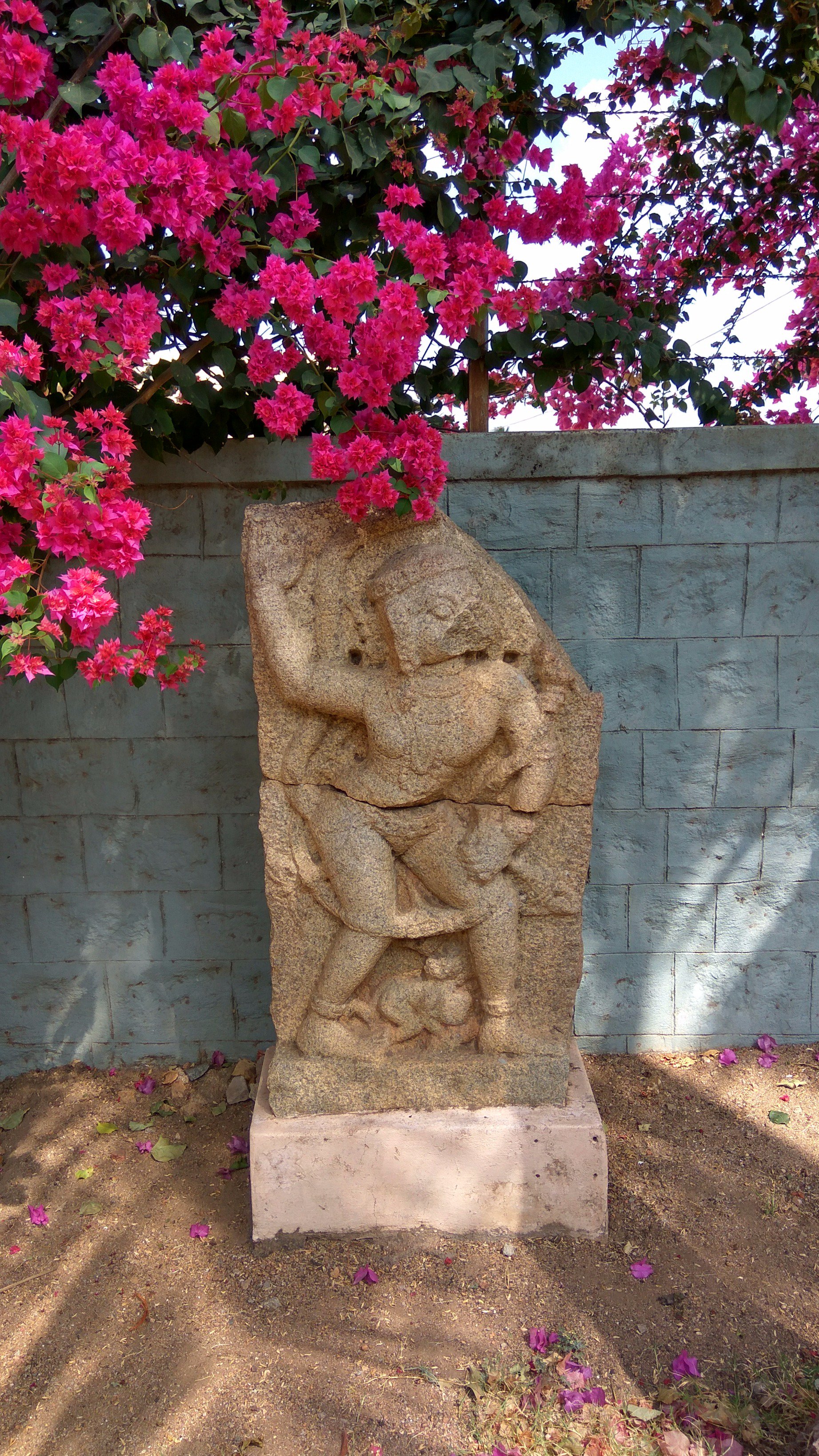 |
| Dismembered Hanuman |
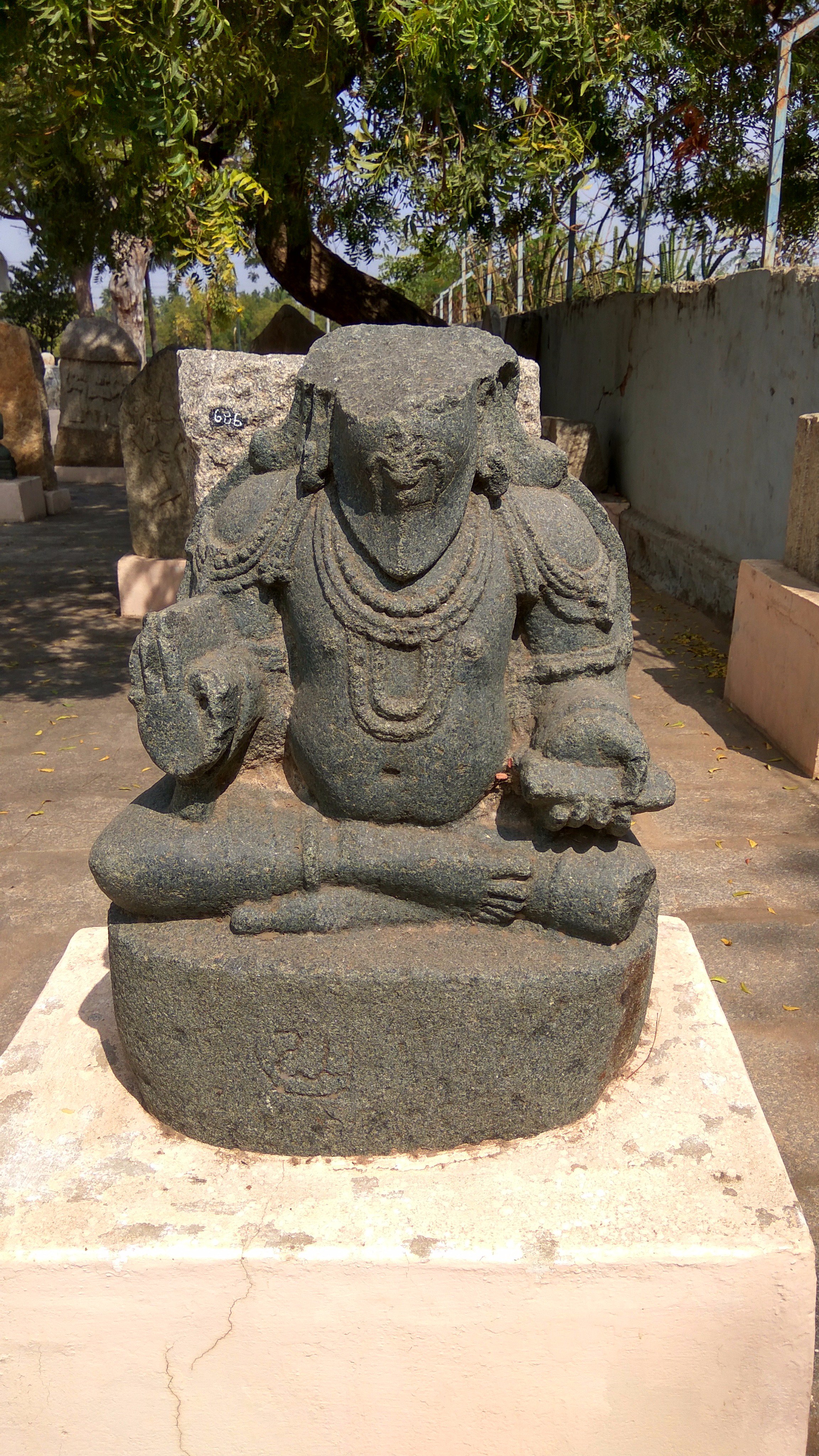 |
| Beheaded murthi of Sage Agastya |
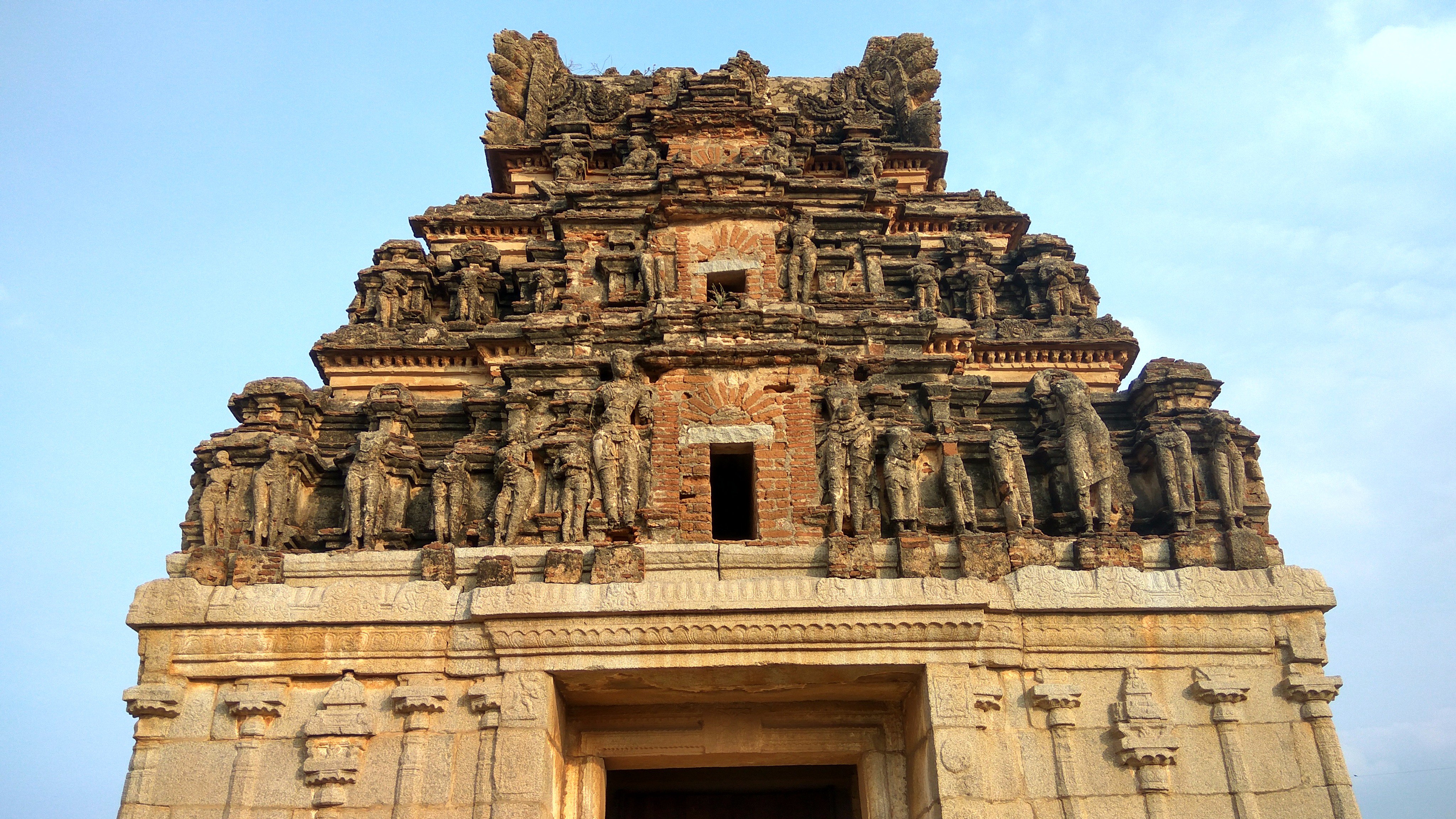 |
| Goddess Saraswati temple at Hampi, wrecked by medieval barbarians. Notice how every carving has been decapitated. |
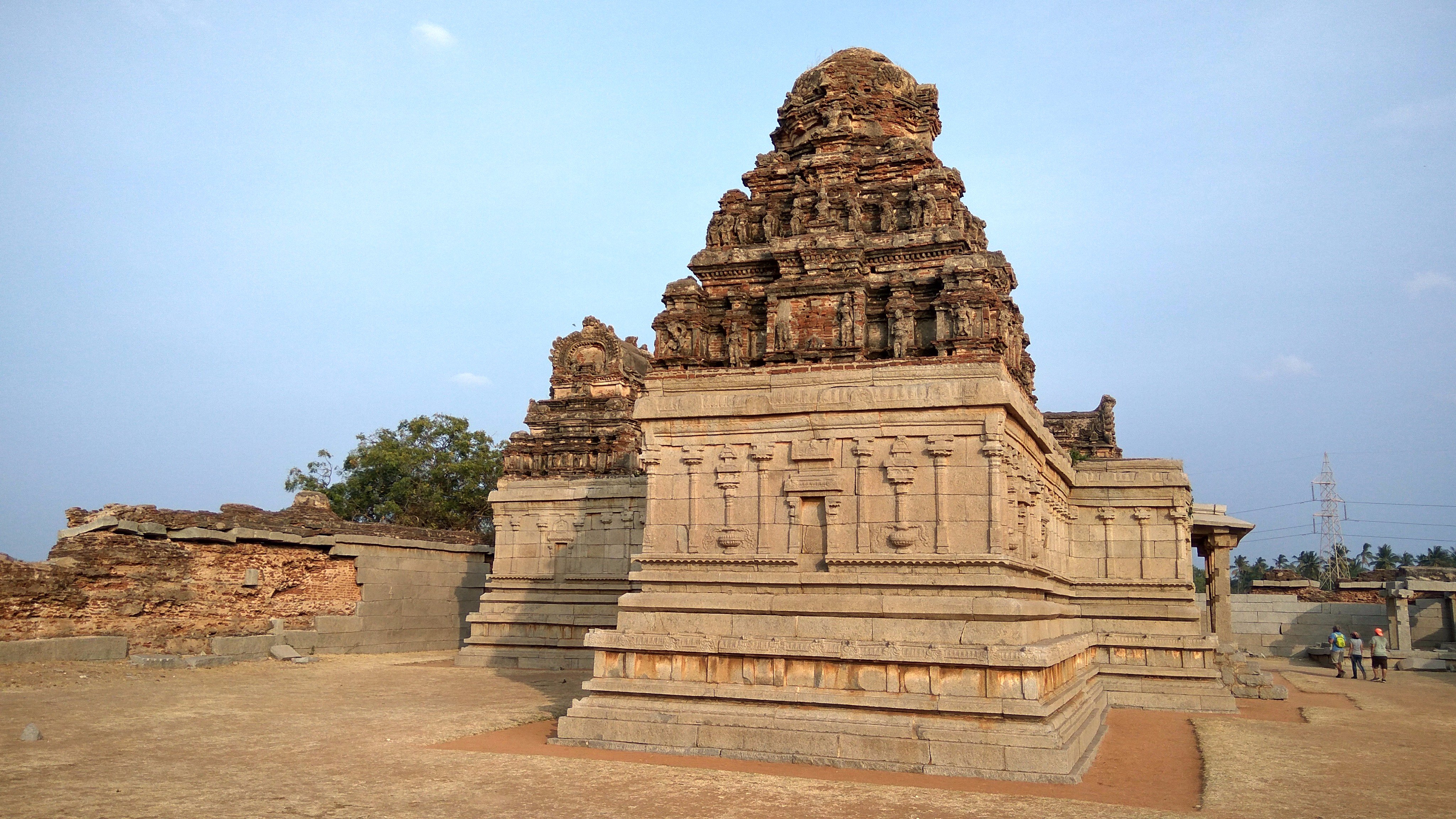 |
| We entered the temple through the back, most of the outer walls had been demolished by invaders. This is the back side. |
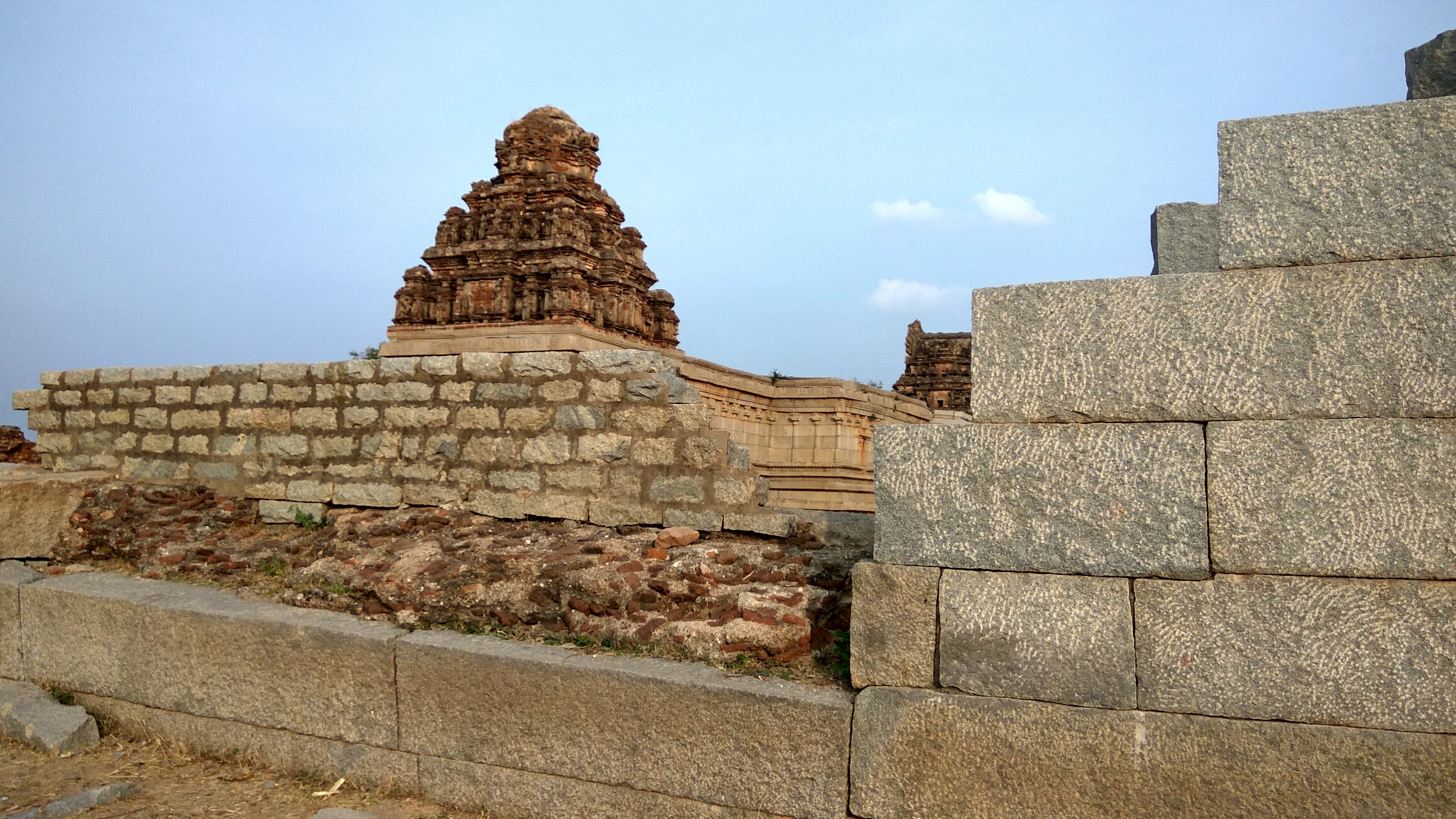 |
| Its a sorry sight. Total travesty that these are missing from our history books. |
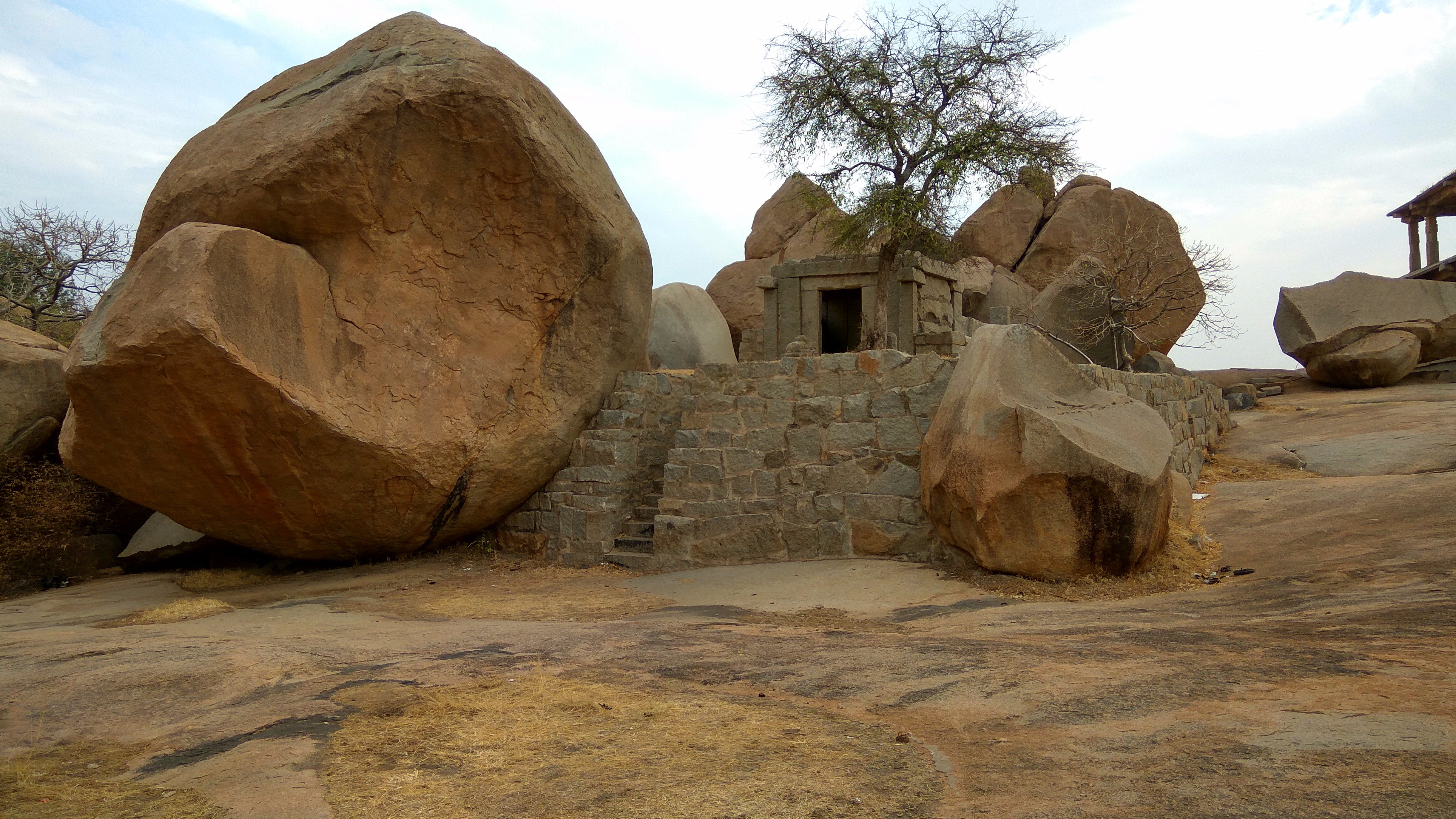 |
| Hemakuta Hill at Hampi houses many hindu/jain temples. This is one such temple, very desolate, as the steps leading up to it are very steep. |
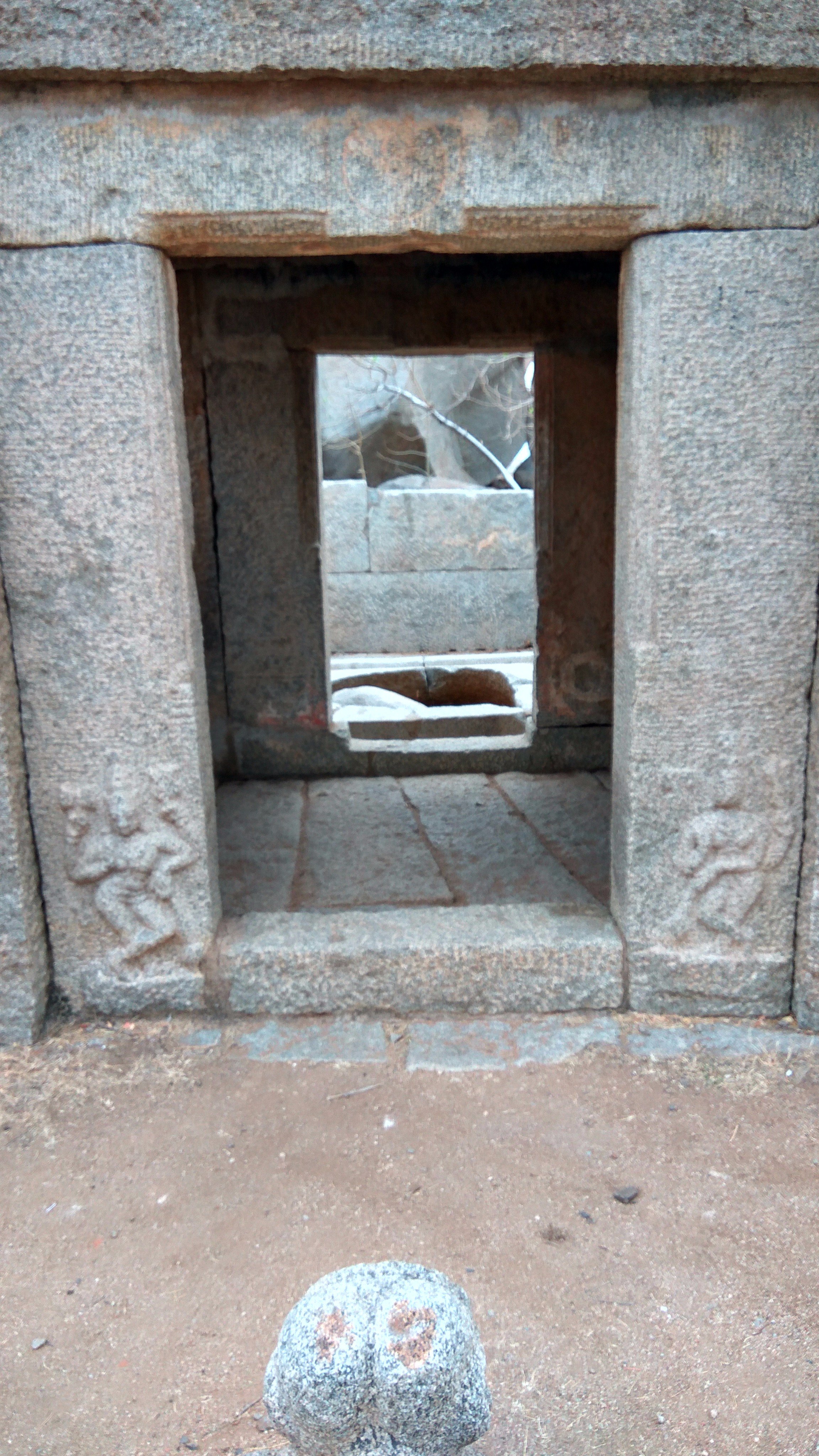 |
| Nothing could've prepared me for the absolute shock I was in for when I was done climbing those steep steps. Didn't want to go any further. |
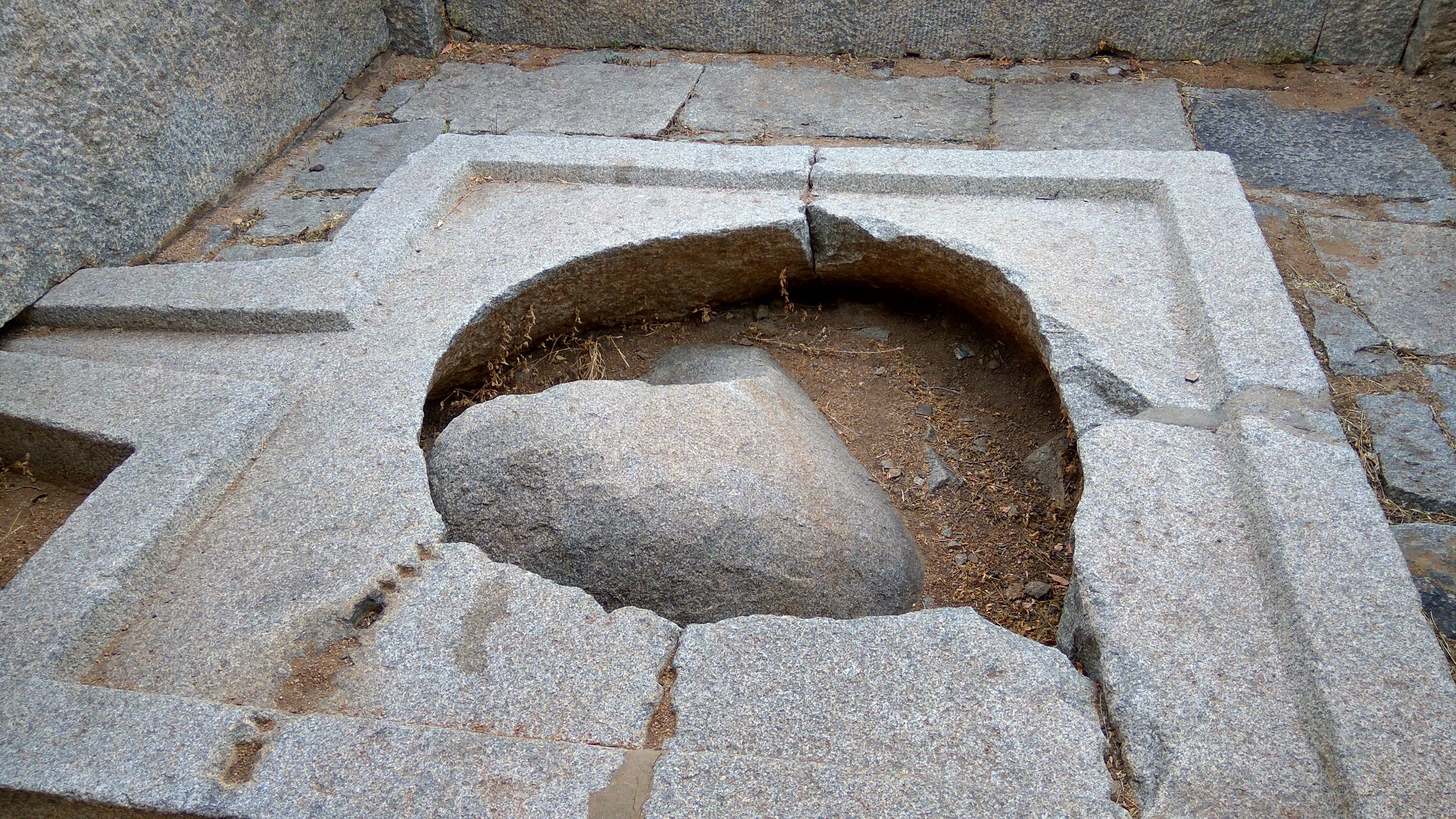 |
| But that was the whole point of my trip, to confront what I'd avoided all my life. The pain of having to see this. |
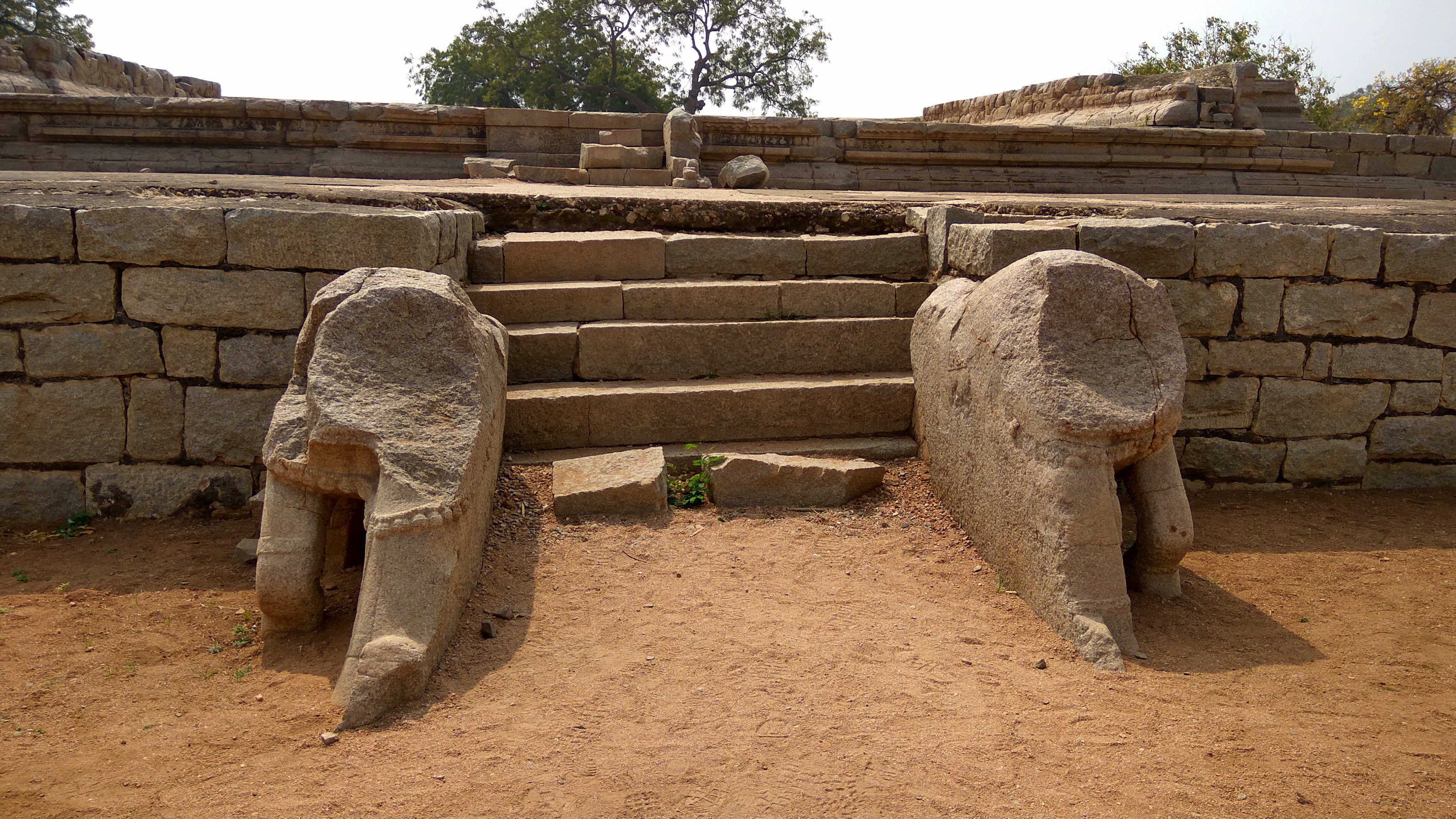 |
| This is where once a grand palace of the queen of Vijayanagara stood. Did your history book ever mention who decapitated those statues? |
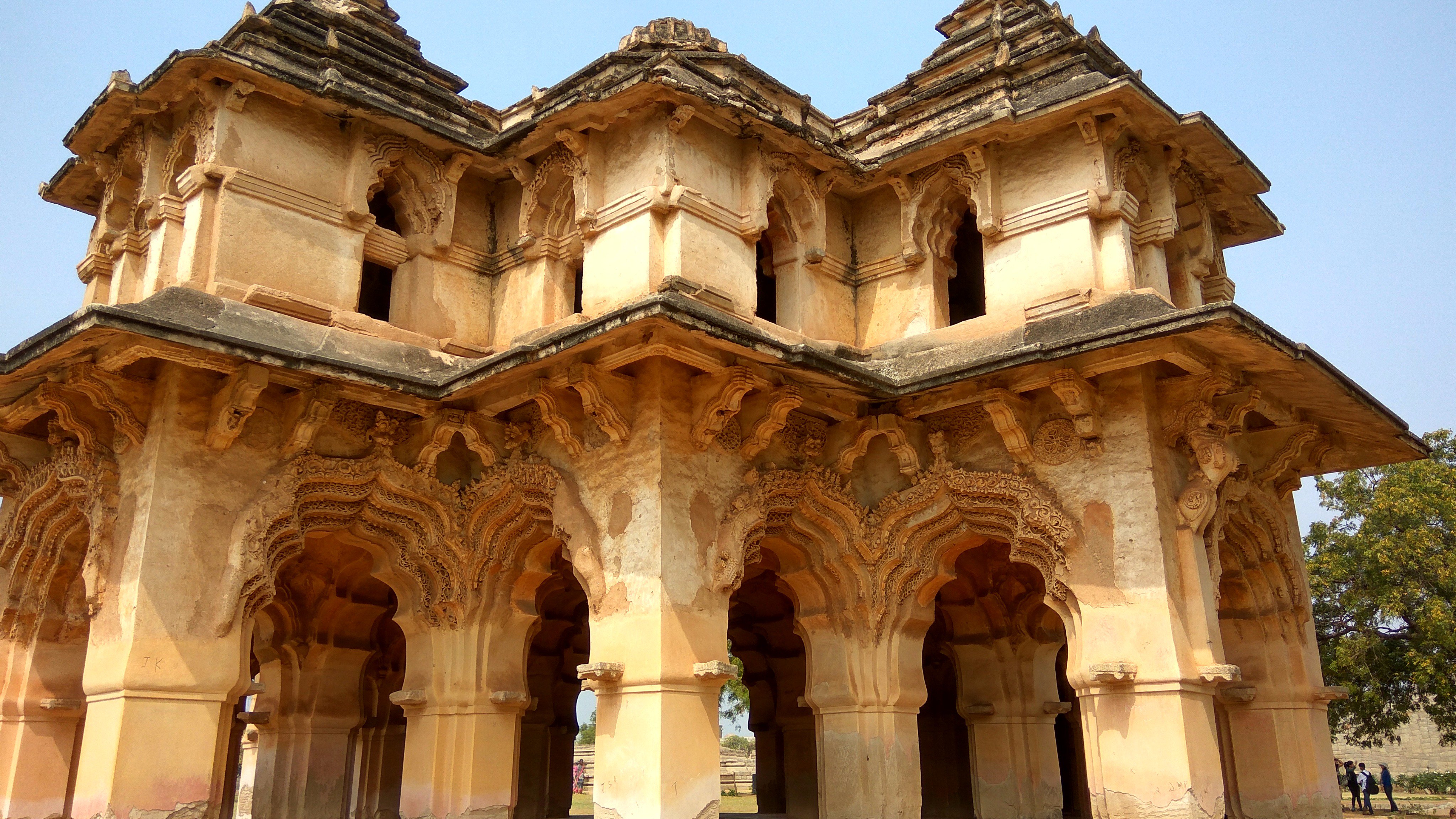 |
| The later rulers of Vijayanagara let their guard down & turned to the disease called "secularism". They incorporated some "secular" aspects of architecture. One such was this Lotus "Mahal". It was spared by invaders. |
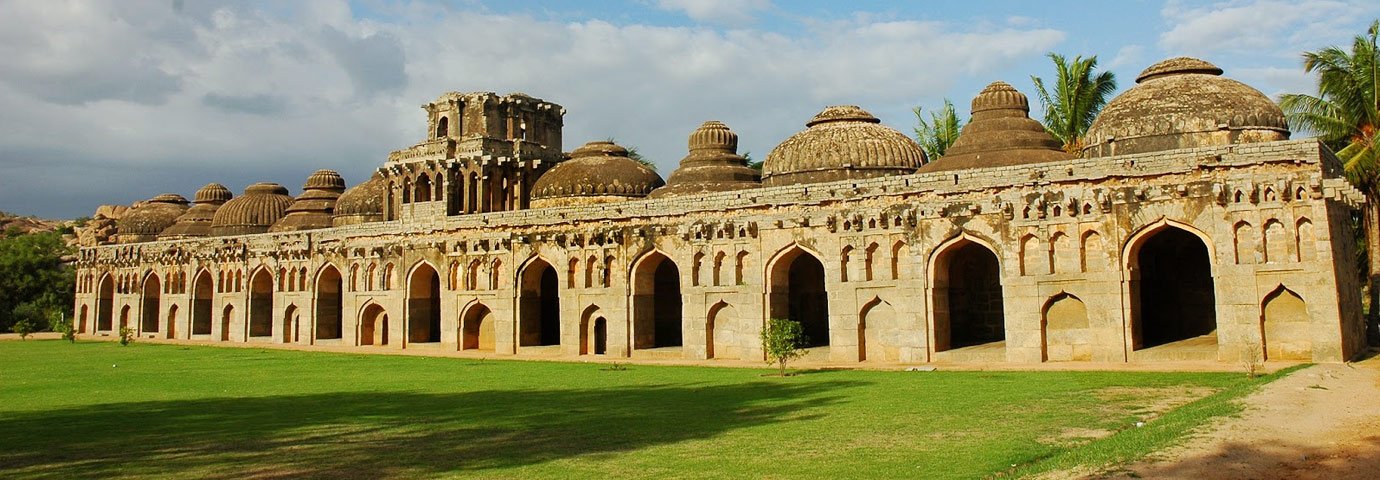 |
| A few meters down the path you come across the Elephant Stable, again untouched by invading barbarians for obvious reasons. |
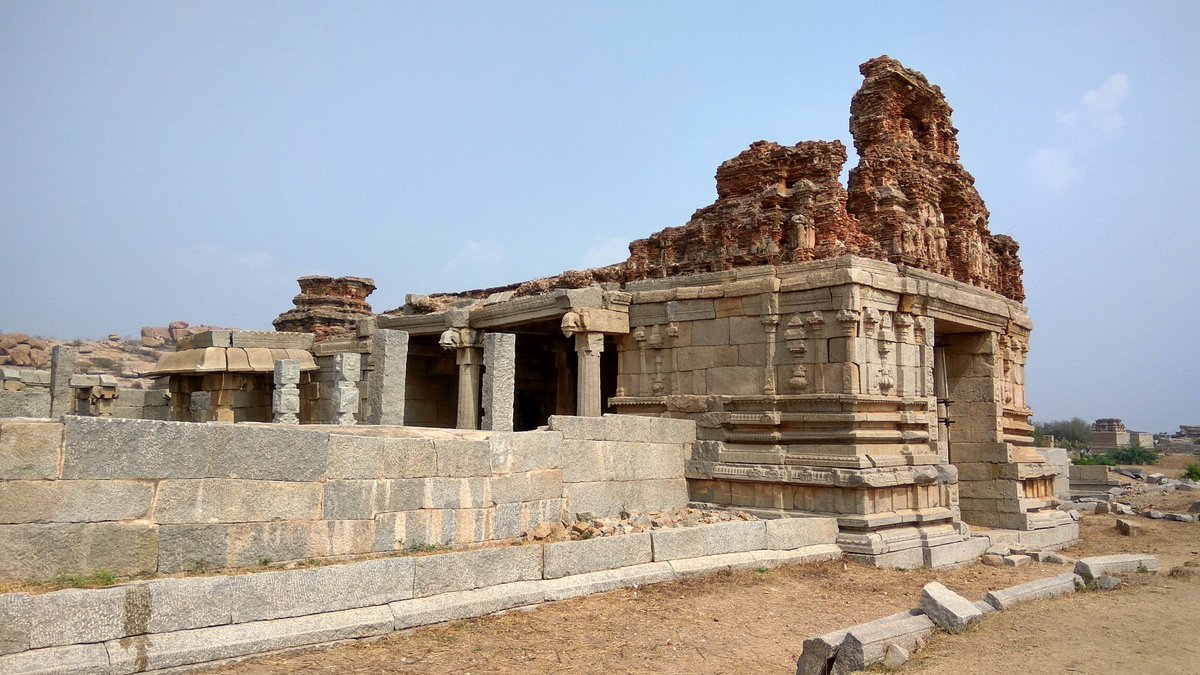 |
| Just few meters away from here all you see is total devastation of hindu & jain temples, especially the Vishnu temple complex. Sorry sight. |
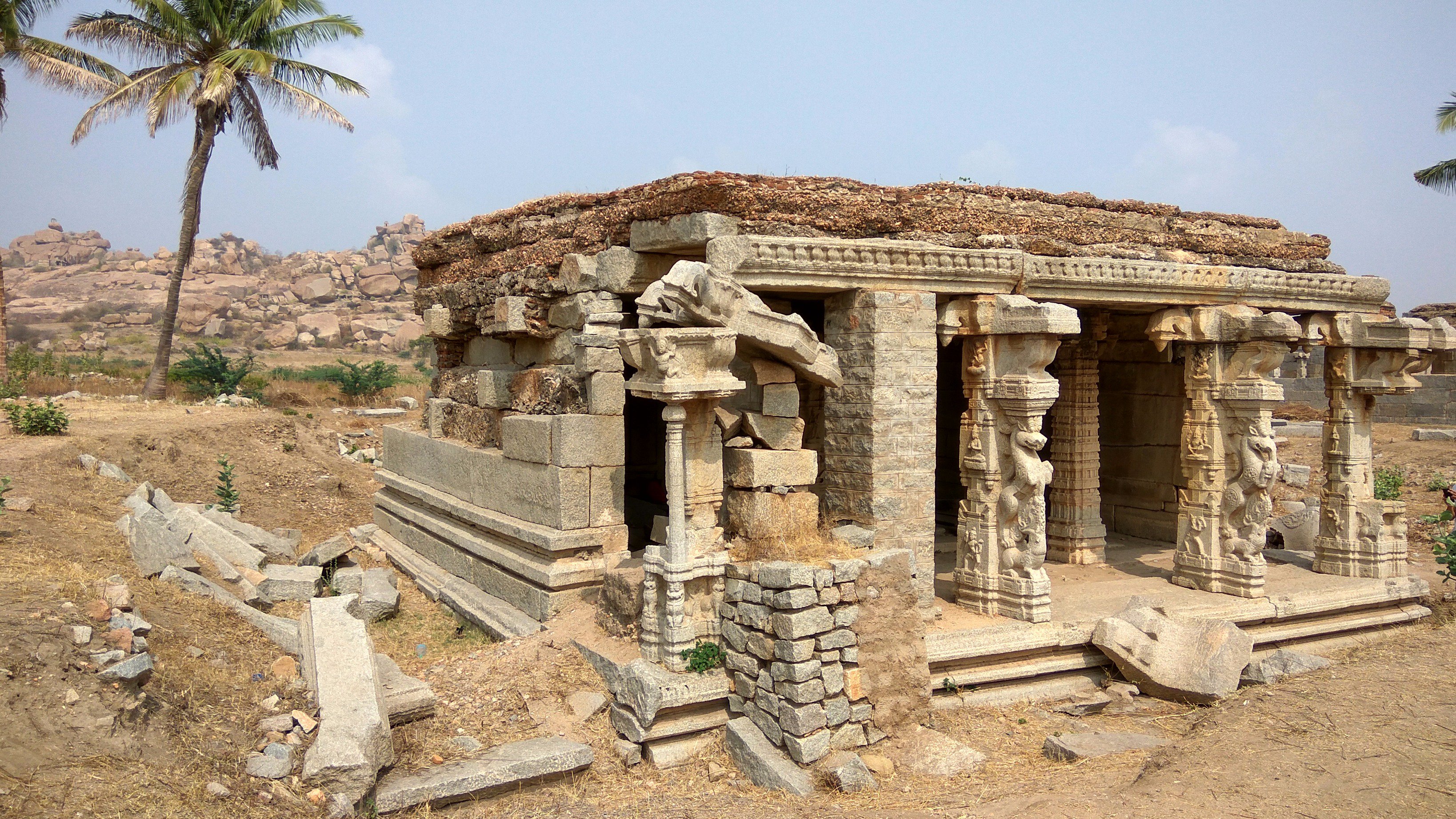 |
| Destroyed mantapam |
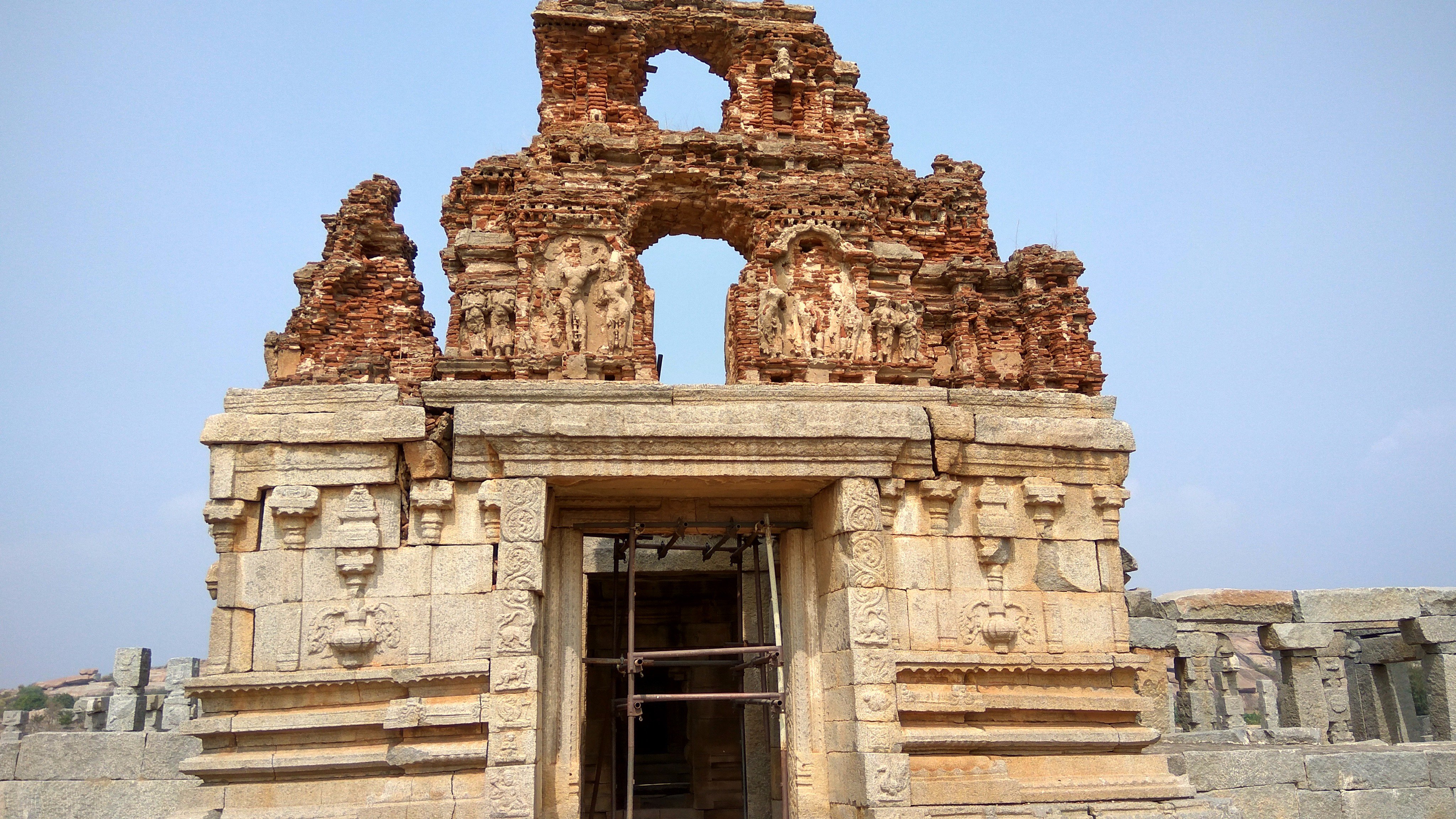 |
| Destroyed Vishnu Temple Gopuram |
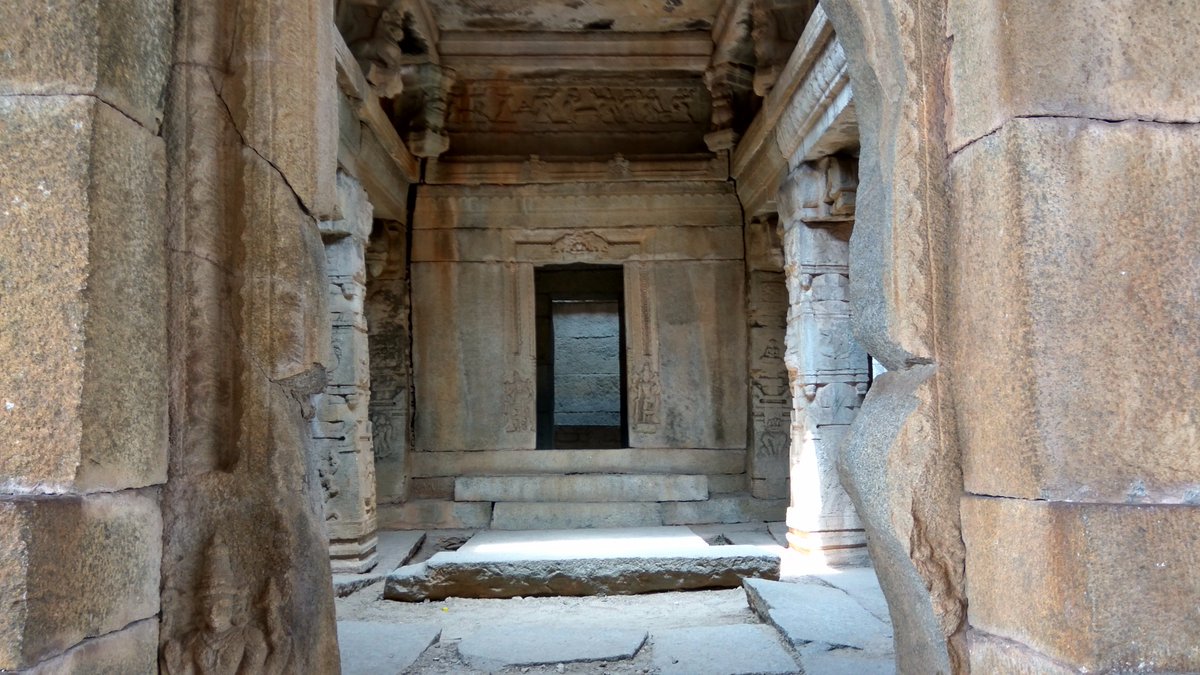 |
| Vishnu Temple Ruins |
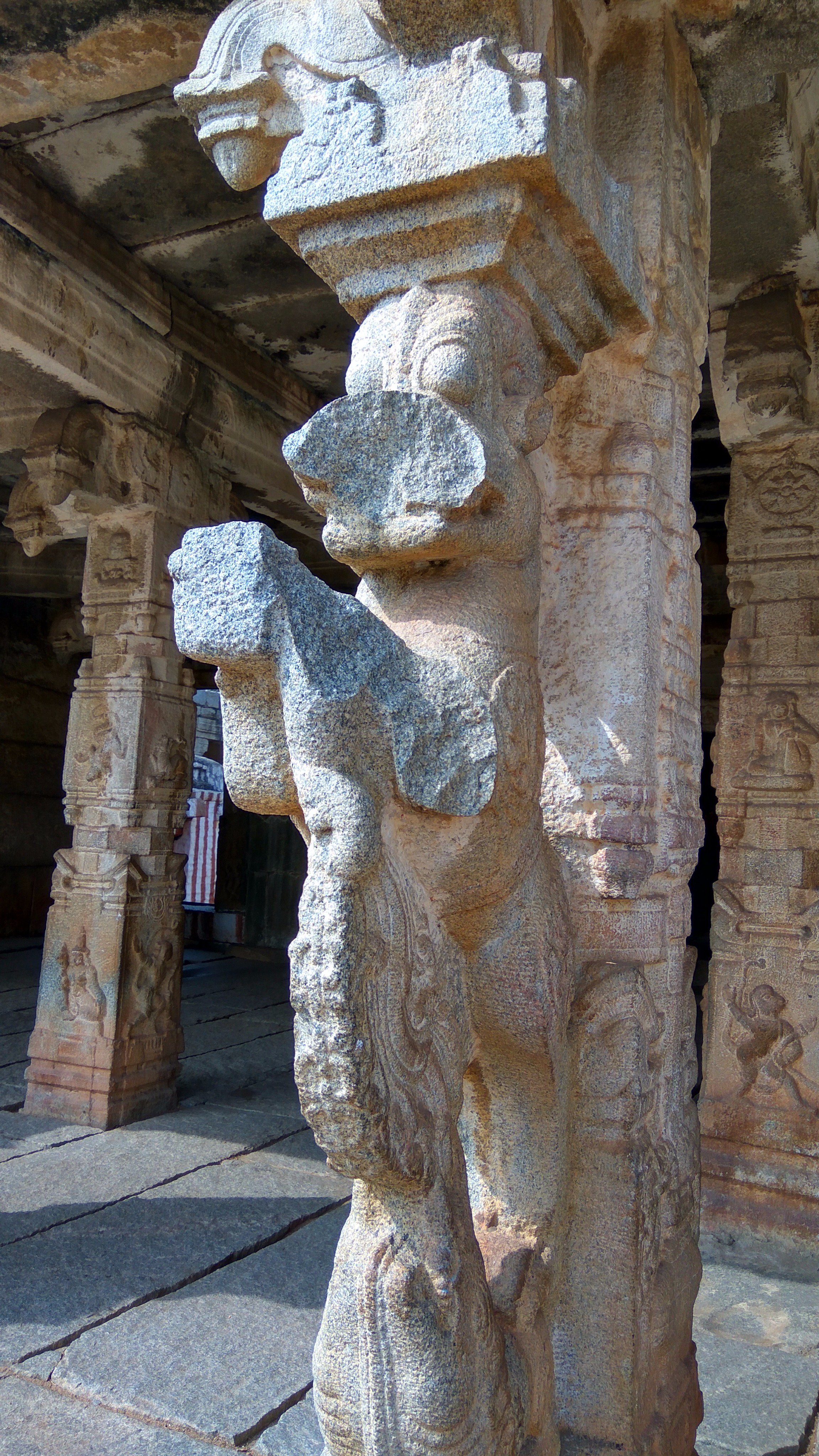 |
| Every temple, no matter how small or big, which has suffered plundering at the hands of invaders deserves to be chronicled. One such temple is this Chandikesvara temple at Hampi, these are the pillars leading up to the Mantapam. The maimed sculpture is called Yali. |
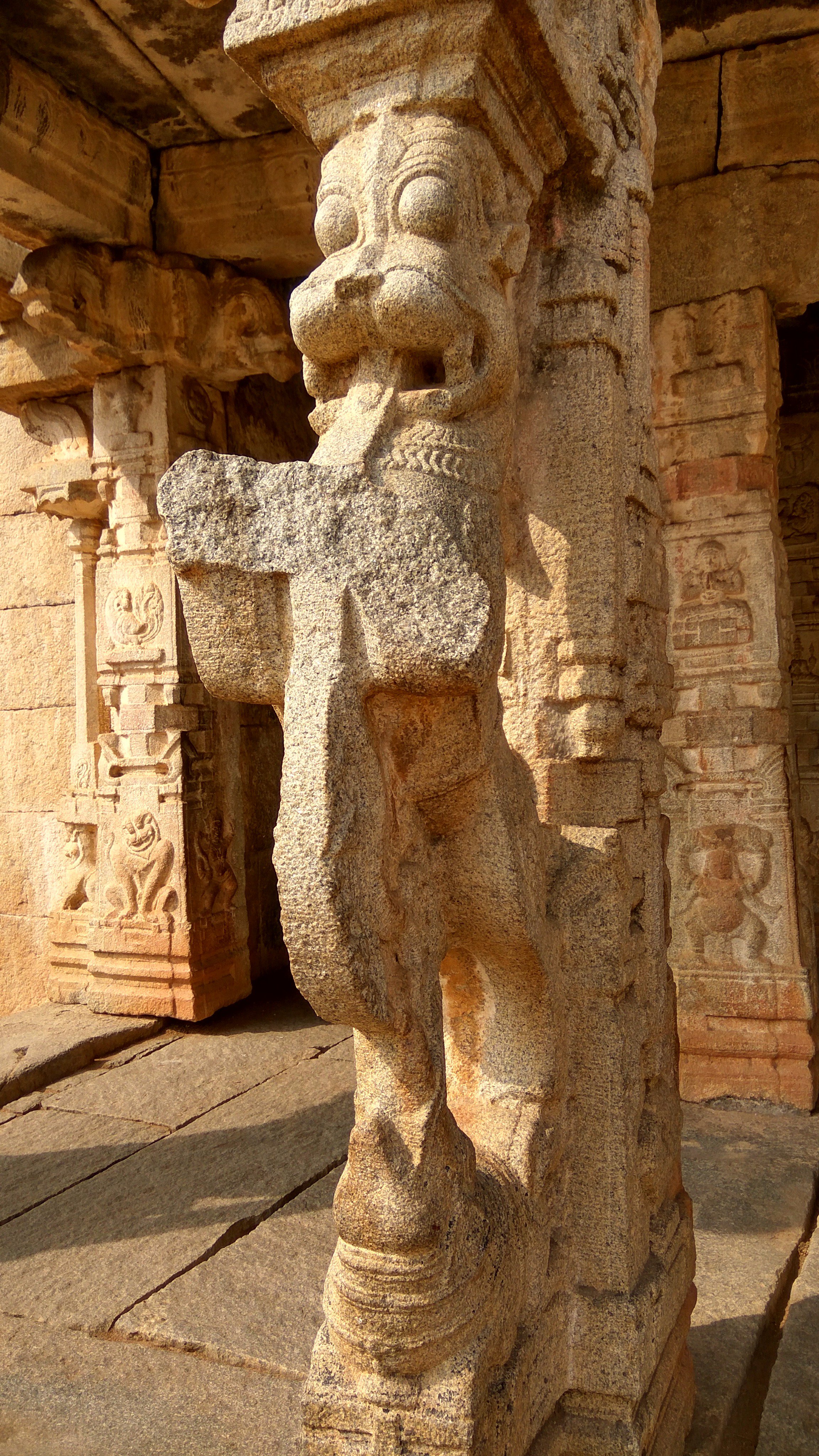 |
| Yali is part lion,part horse & part elephant.It's been sculpted onto every single pillar leading up to the sanctum.None spared by invaders. |
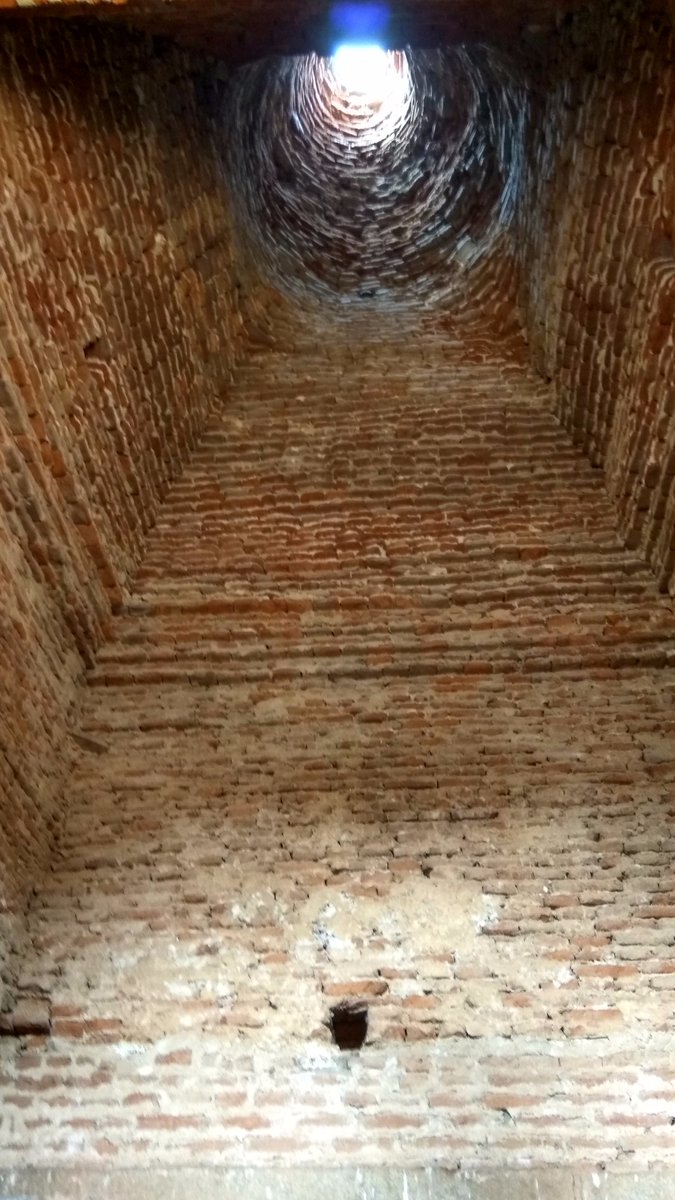 |
| The Garbhagriha in its heyday was the abode of Shri Maha Vishnu, now this is all that's left of it. A gaping hole through the Vimana. |
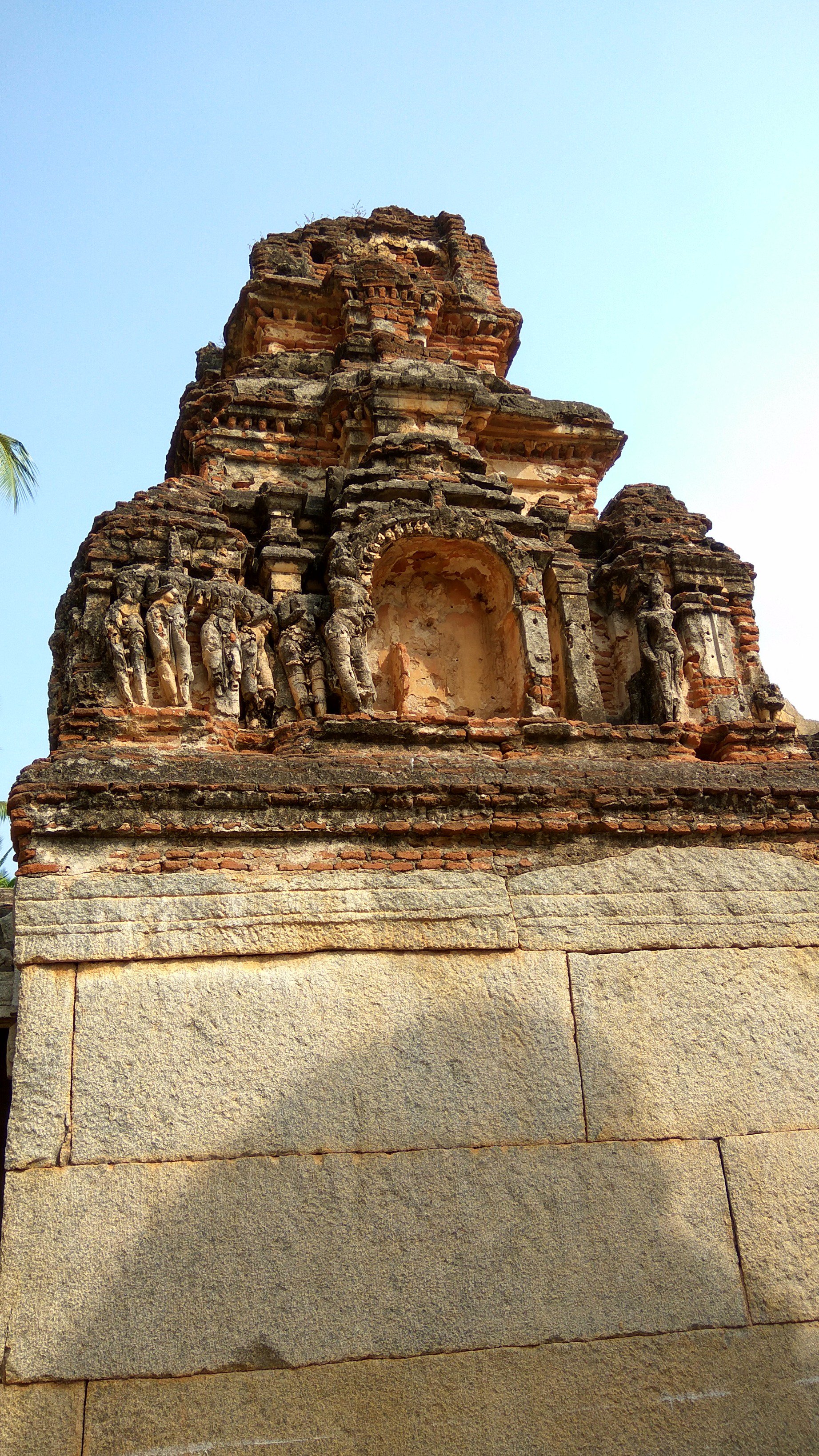 |
| This is what the Vimana looks like from the outside. The carving of Maha Vishnu & Lakshmi has been totally ravaged. |
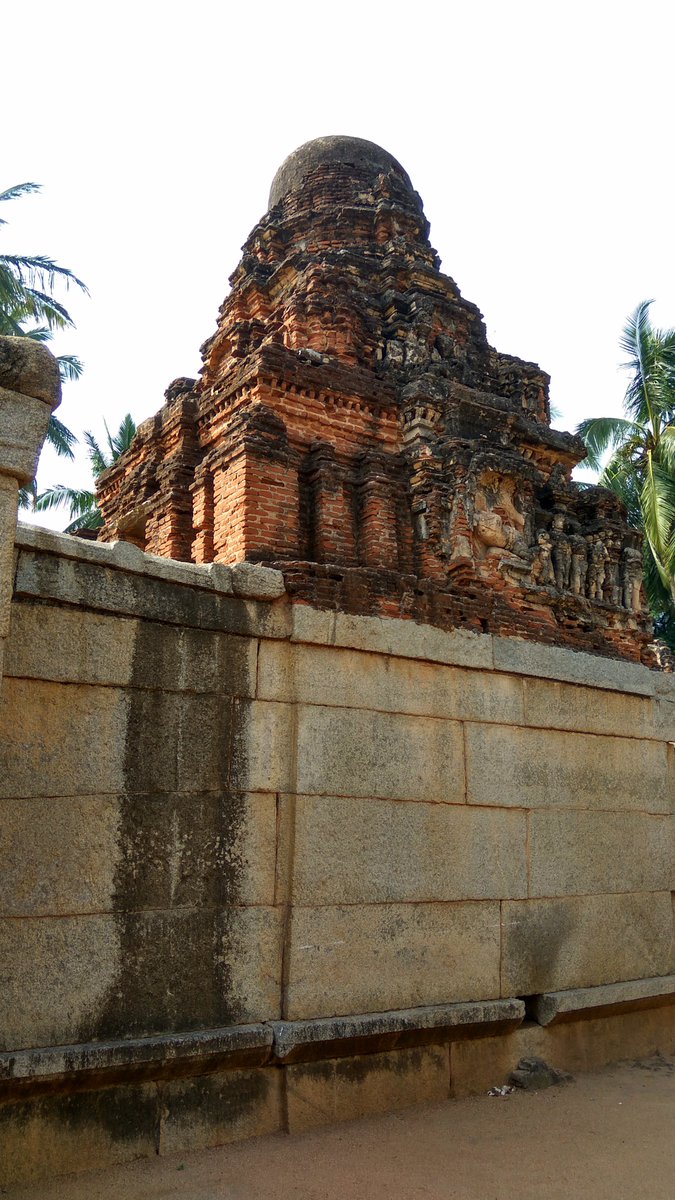 |
| One more side of the Vimana, the remains of the reclining sculpture of Maha Vishnu is still visible when zoomed in, even the Shesha is seen. |
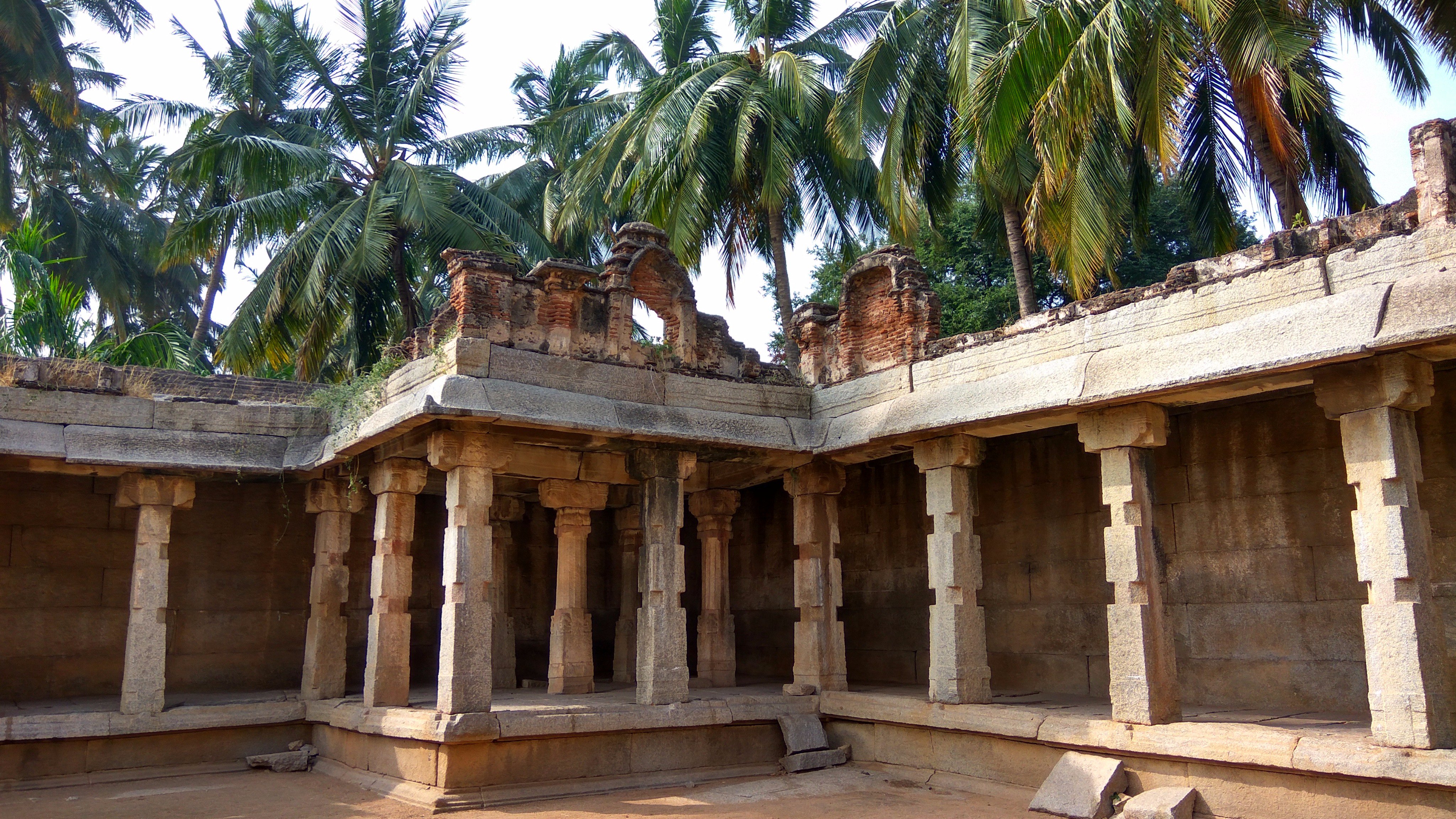 |
| This is what the outer prakaram of the temple looks like. Fact that those pillars still stand is a testament to how brilliant our construction capability was. |
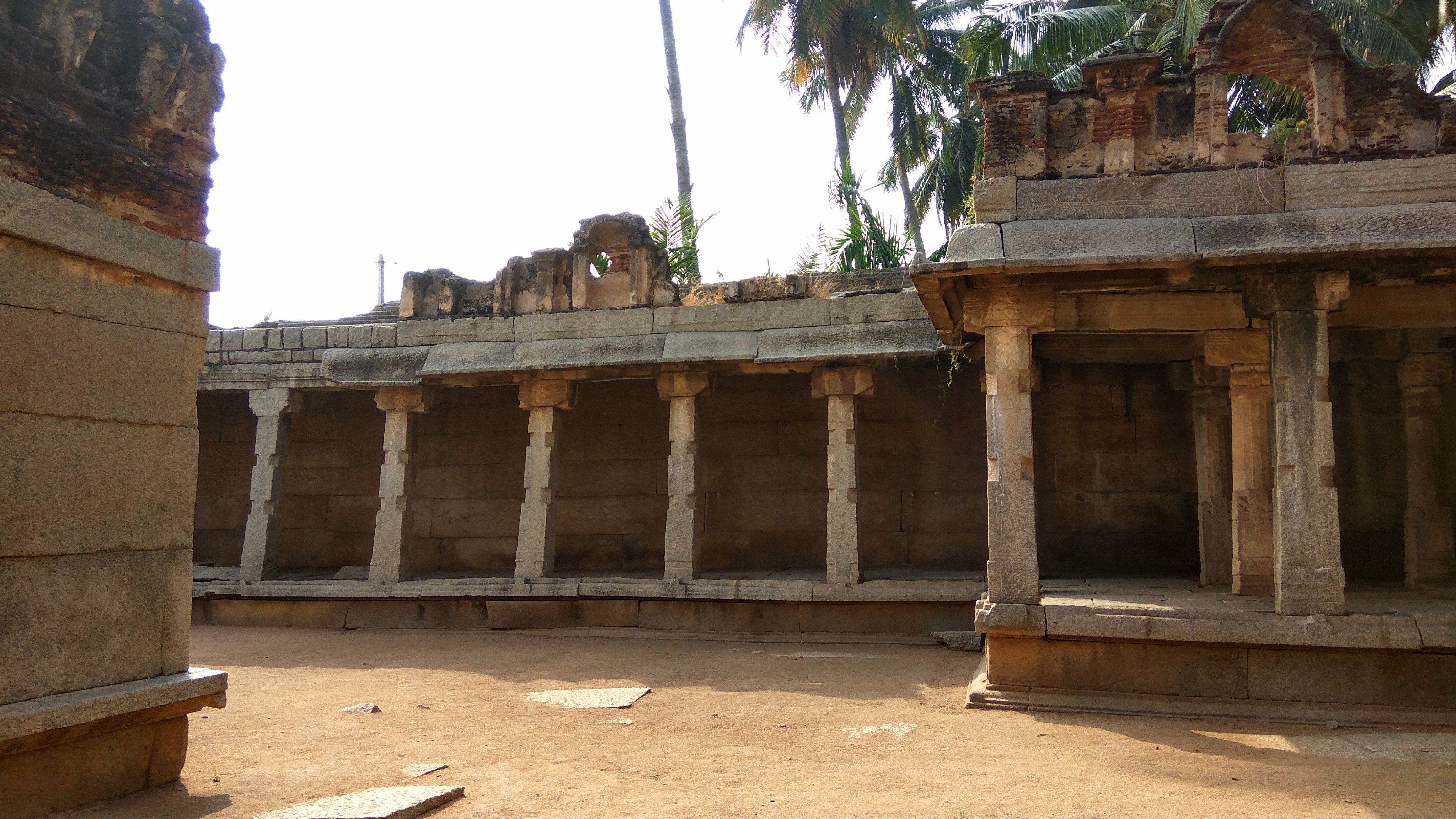 |
| At some point in time the invading barbaric islamists just got tired & gave up basically. Despite EVERYTHING it still stands. |
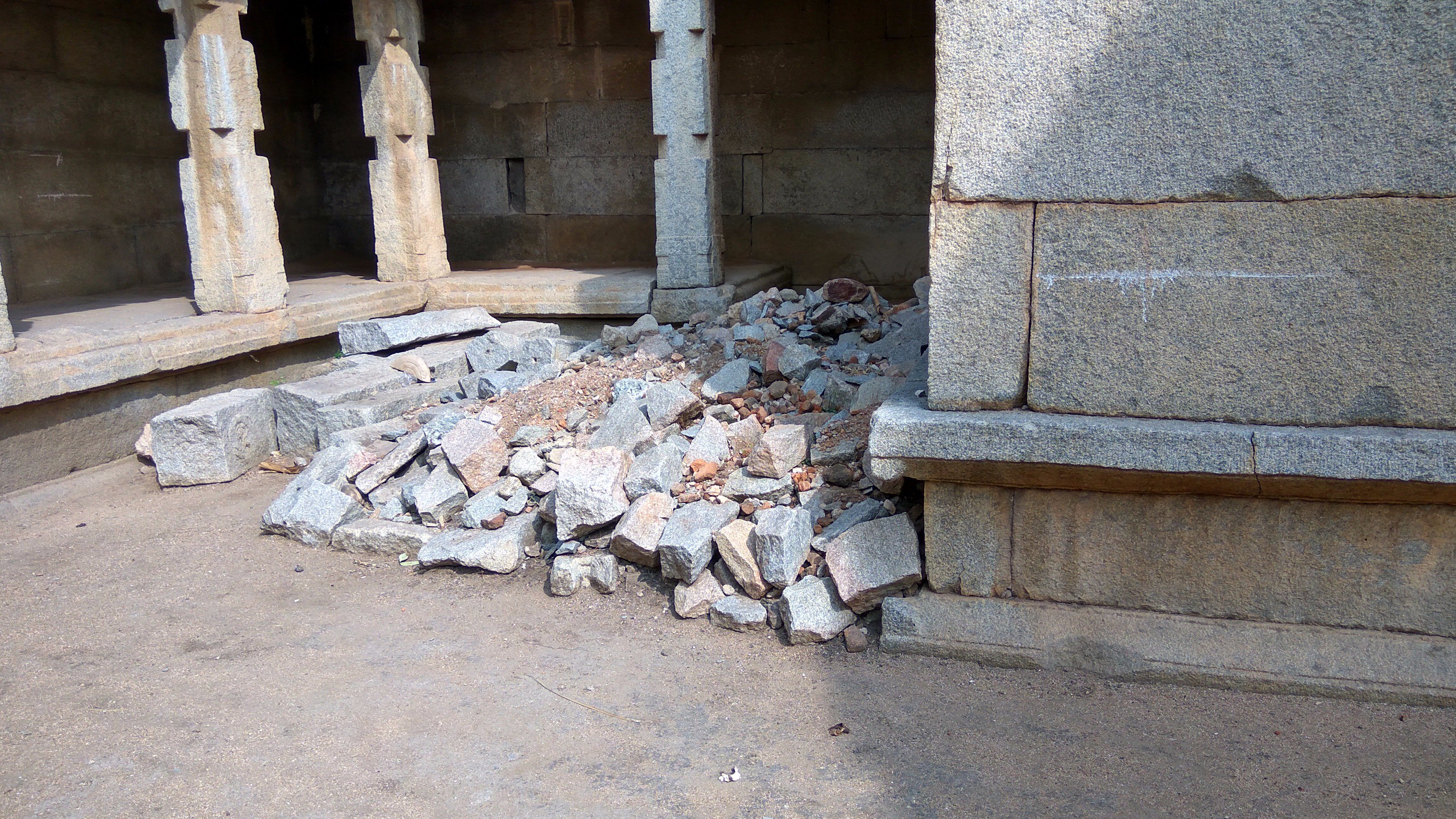 |
| To many this will seem like ASI apathy & insensitivity to just let the rubble rot there (which it actually is),for me its an essential pain that one has to undergo. |
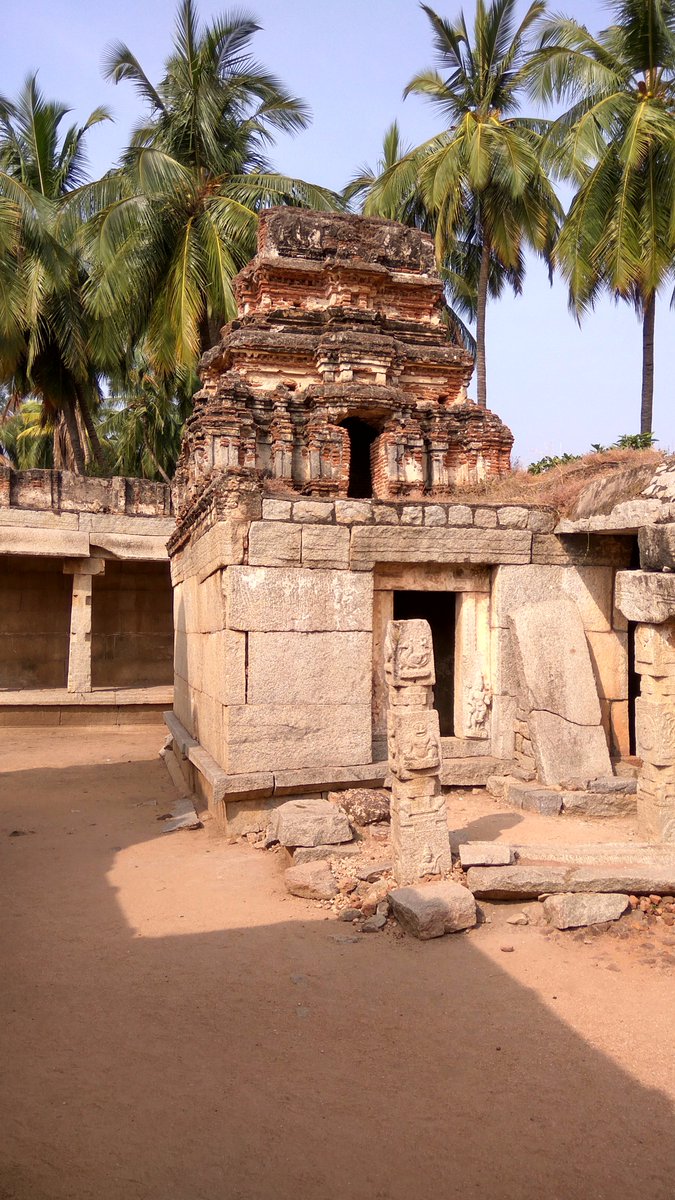 |
| Pain is good, strengthens resolve, is what I tell myself everytime I see this mutilated gopuram of the gudi that housed Shri Mahalakshmi. |
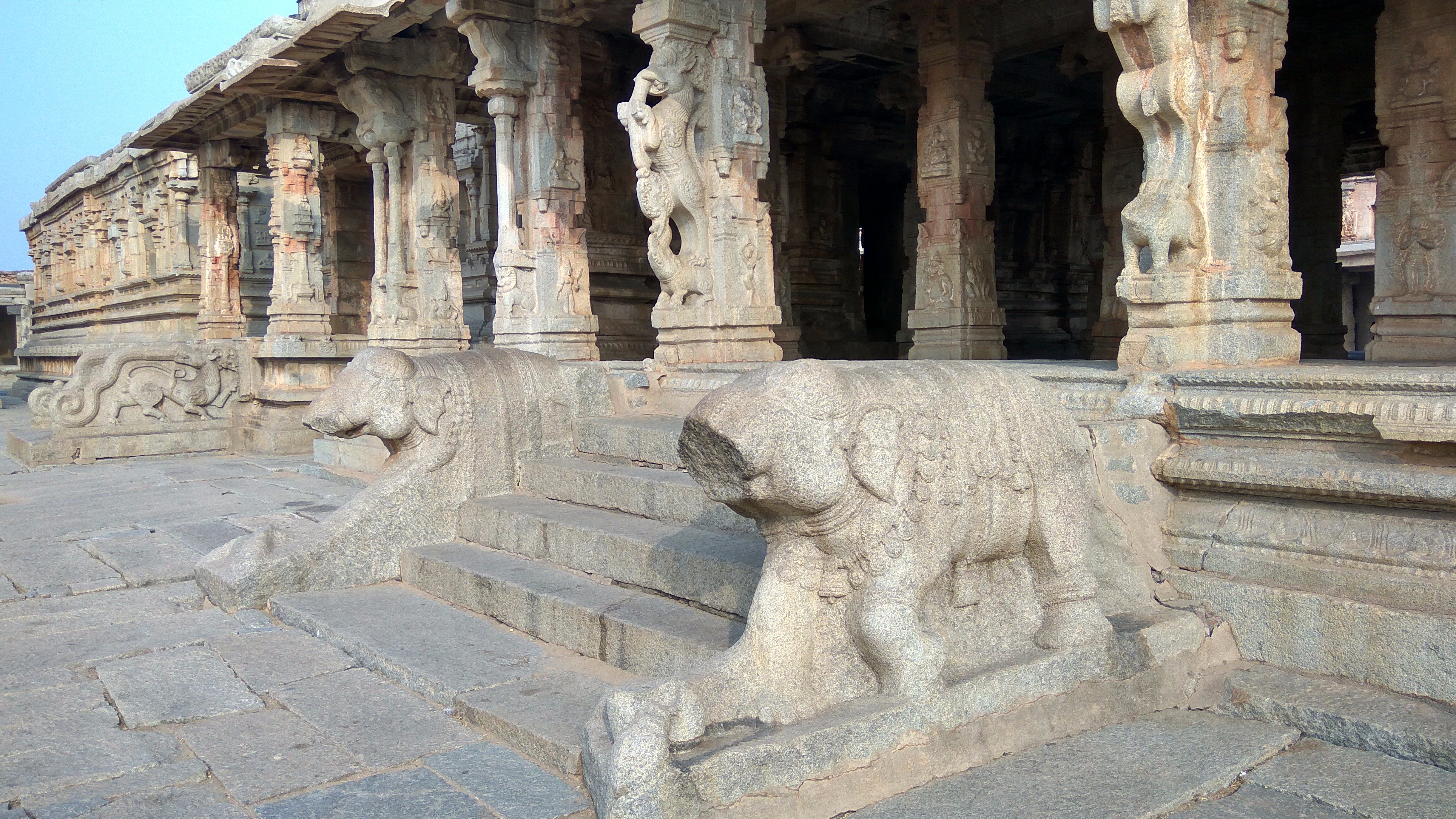 |
| The south side of the Shri Krishna temple at Hampi. Built by Krishnadevaraya in 1513. Elephant statues mutilated by invaders in 1565 |
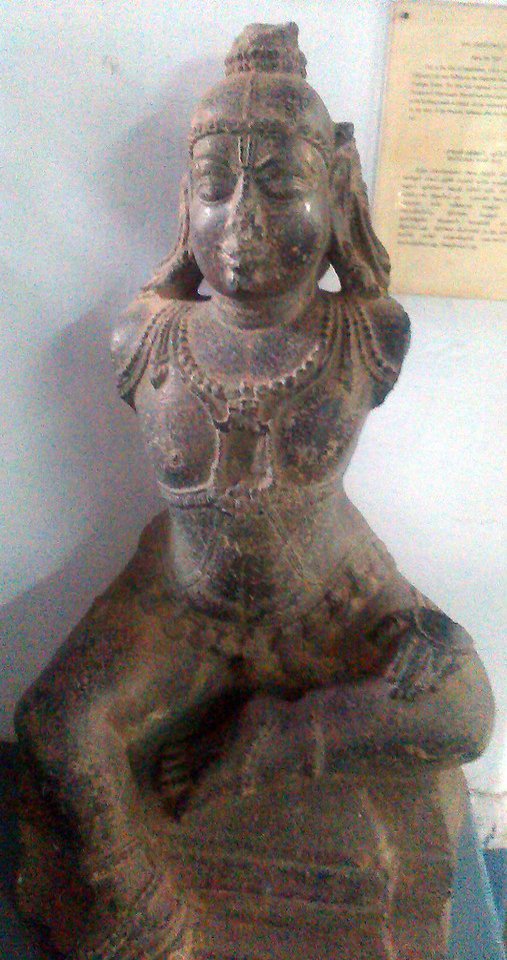 |
| The main deity of the temple is Krishna from his childhood. Both arms chopped off by invaders. Murthi is now preserved at the Madras museum |
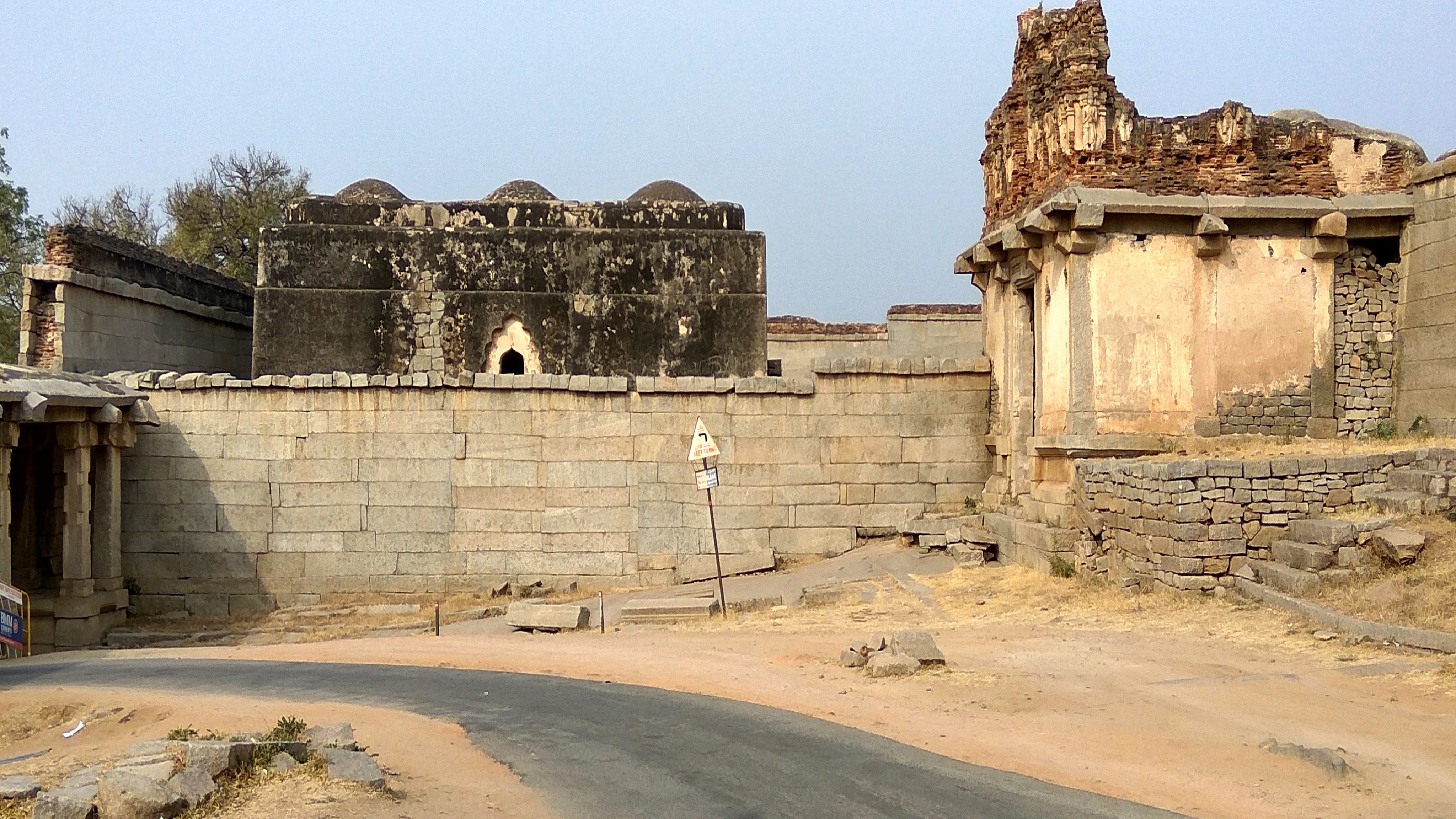 |
| This invader structure stands inside the Krishna temple complex, very next to the destroyed south side gopuram. ASI have shut its access |
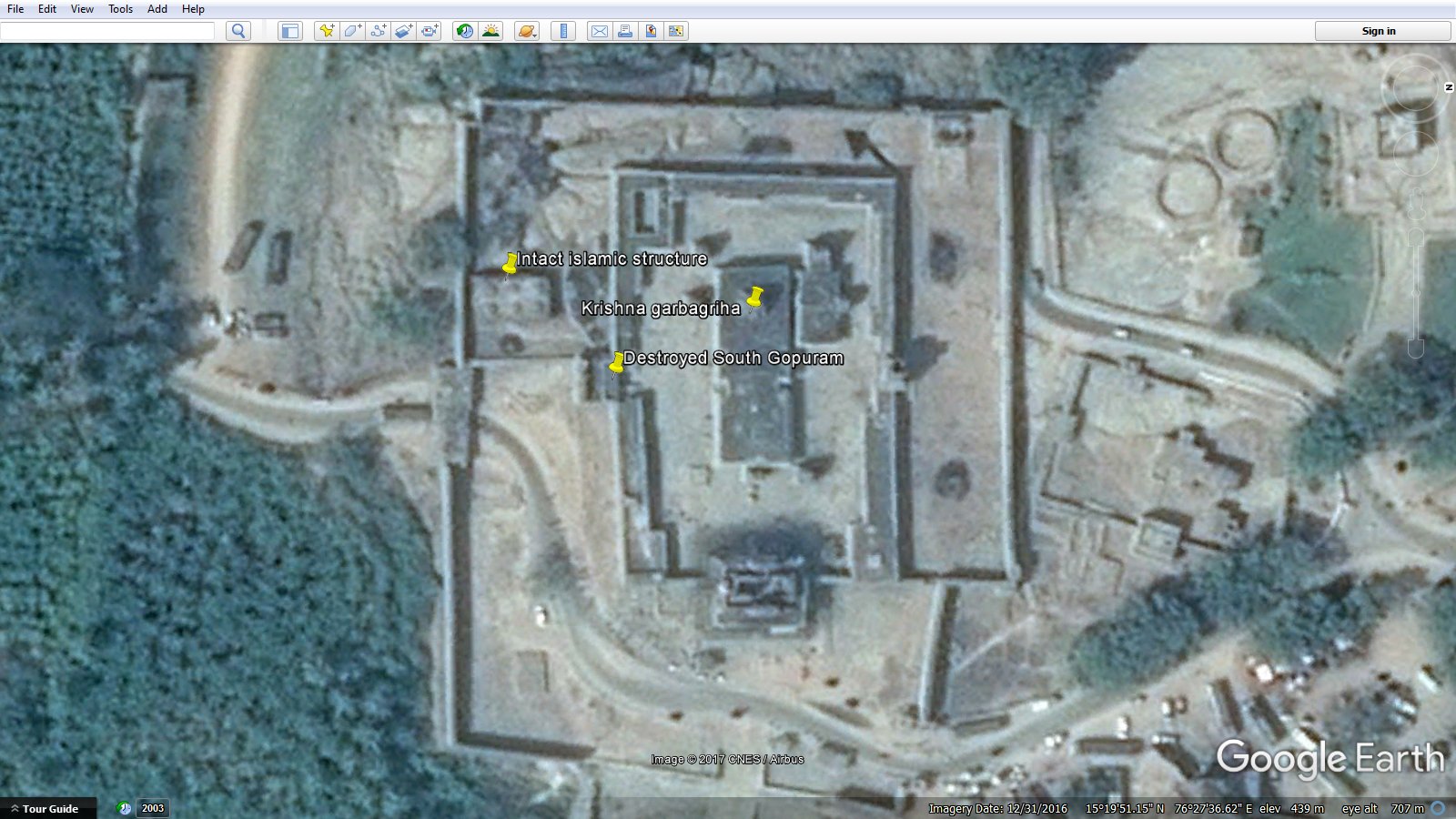 |
| Just to give you an idea of what it looks like. Such is the govt & ASI's apathy that they have actually built a public road through the Krishna temple complex! |
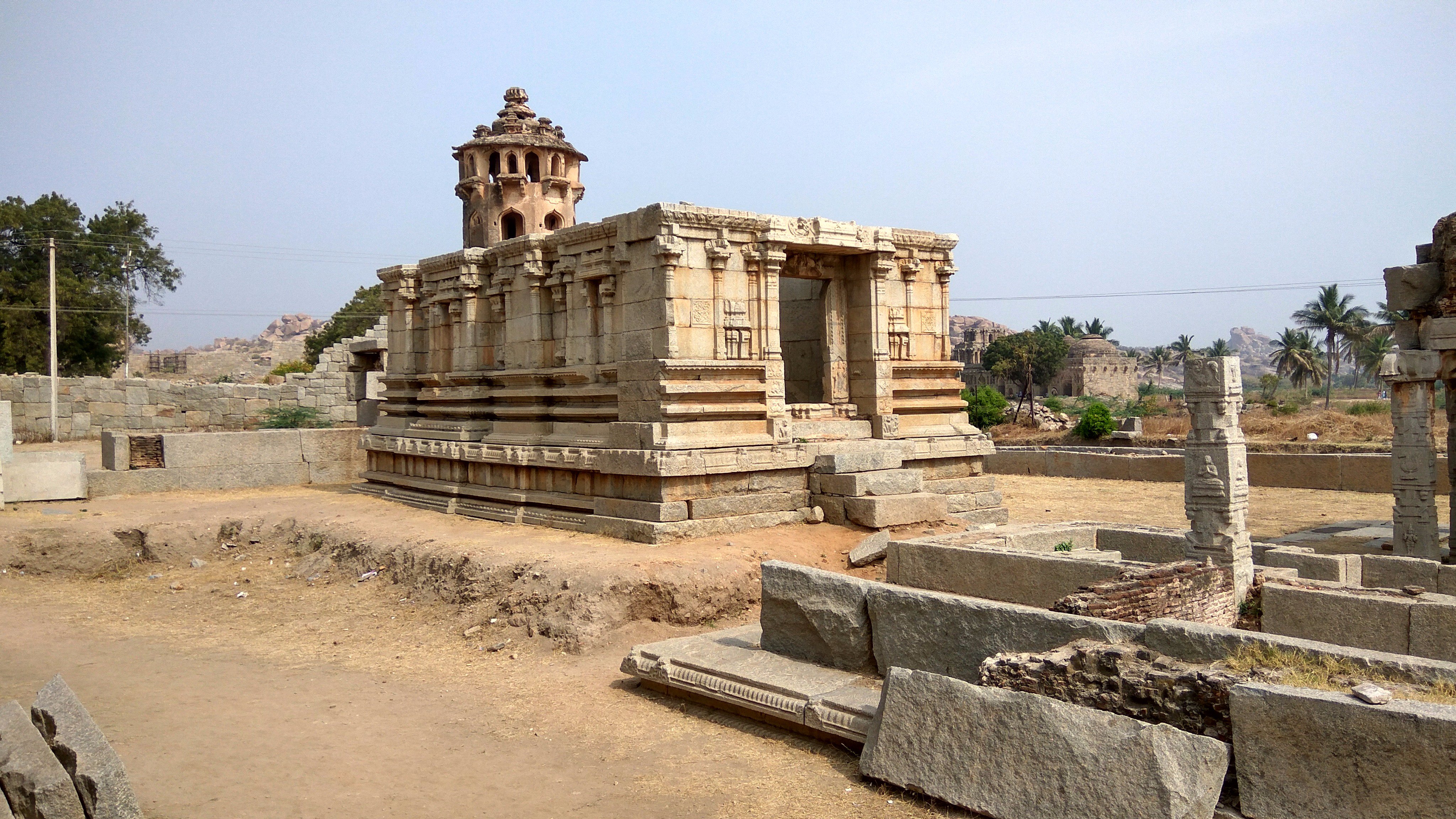 |
| This is the Ranganatha Swamy temple enroute to the queen's palace. Very modest in size, nevertheless completely ravaged by invaders. |
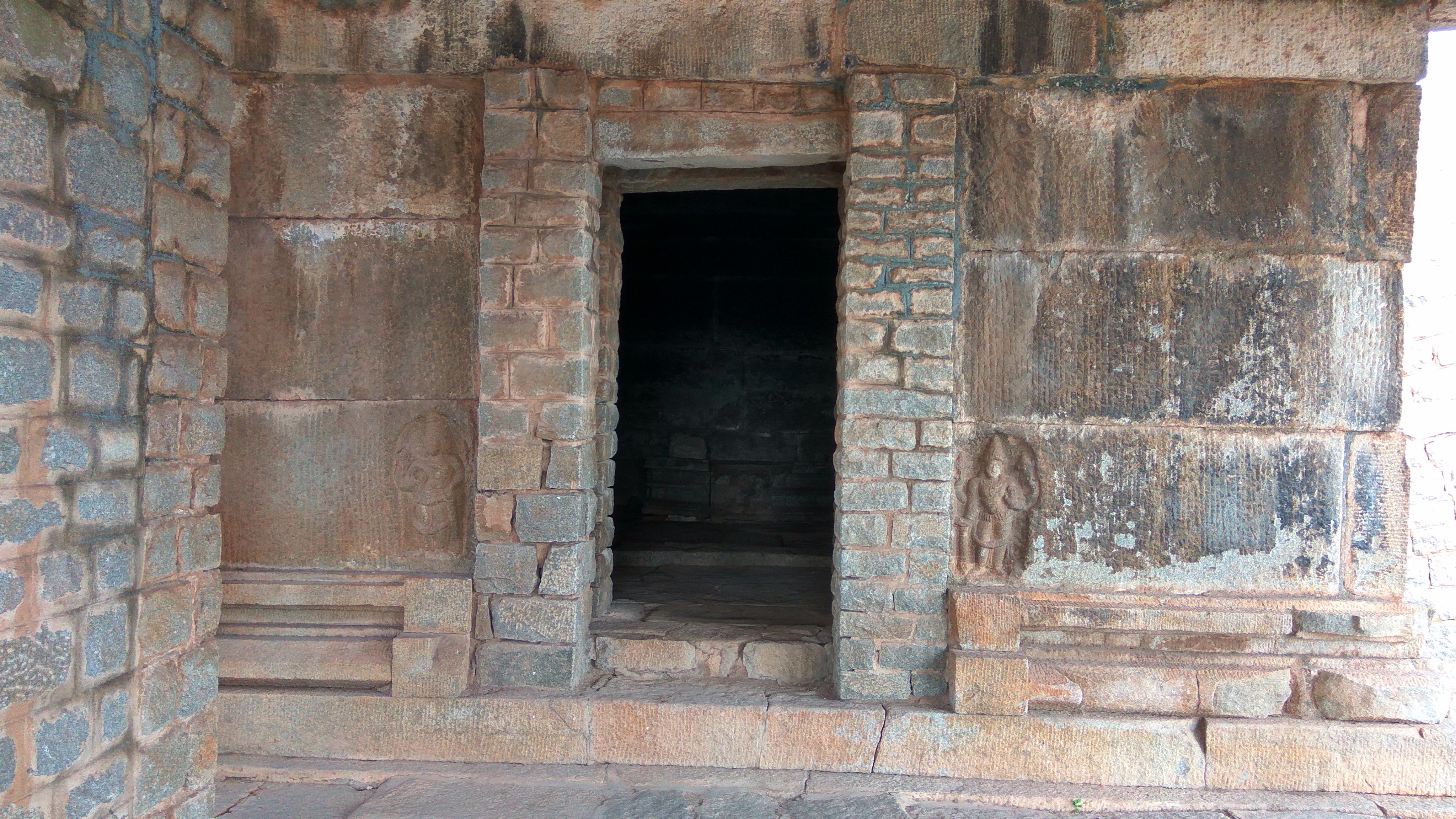 |
| Like most temples of Hampi, the garbhagriha bears an empty & sad look. |
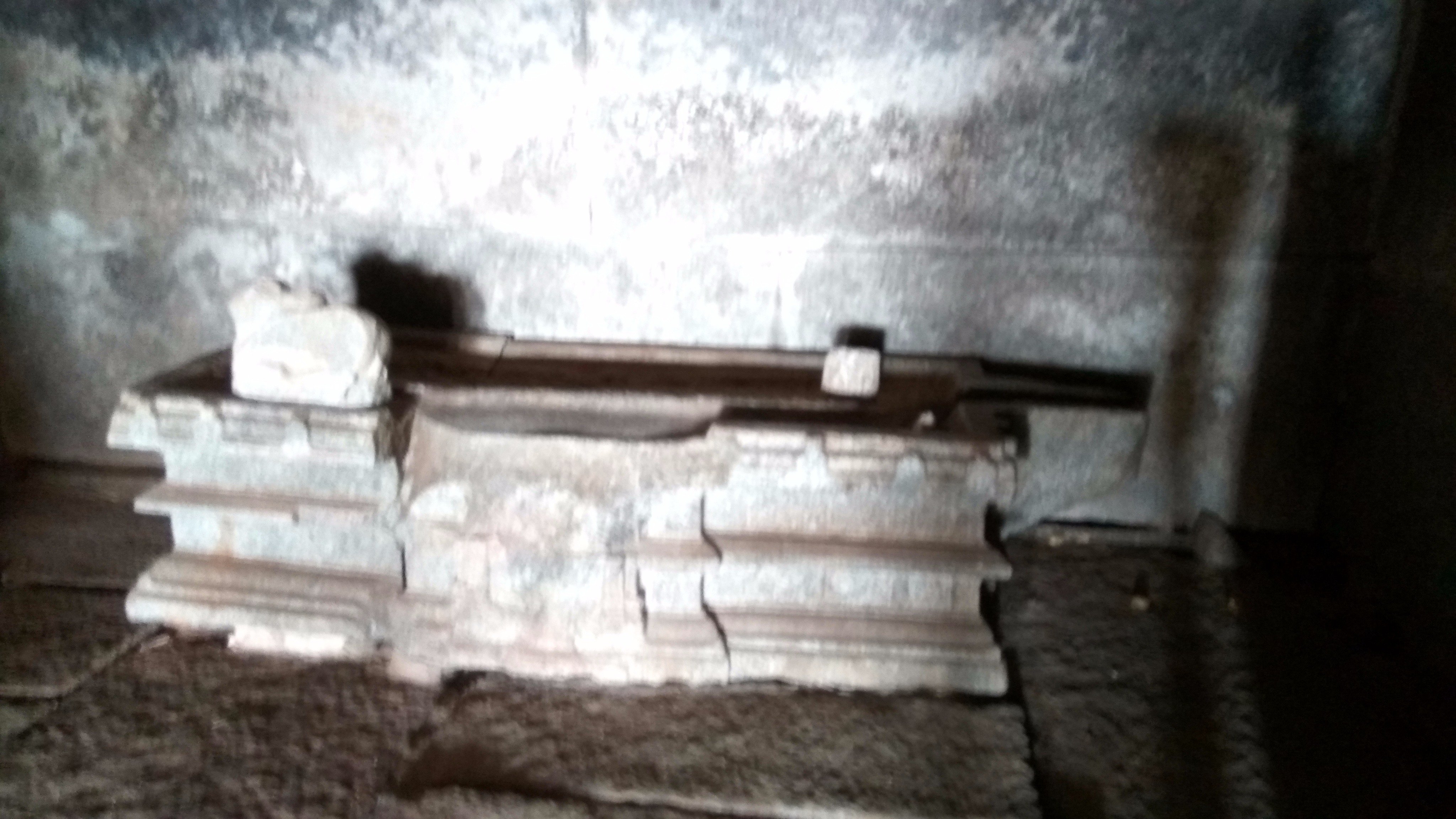 |
| Can only imagine how magnificent the reclining murthi of Lord Ranganatha must've been in its hey day. |
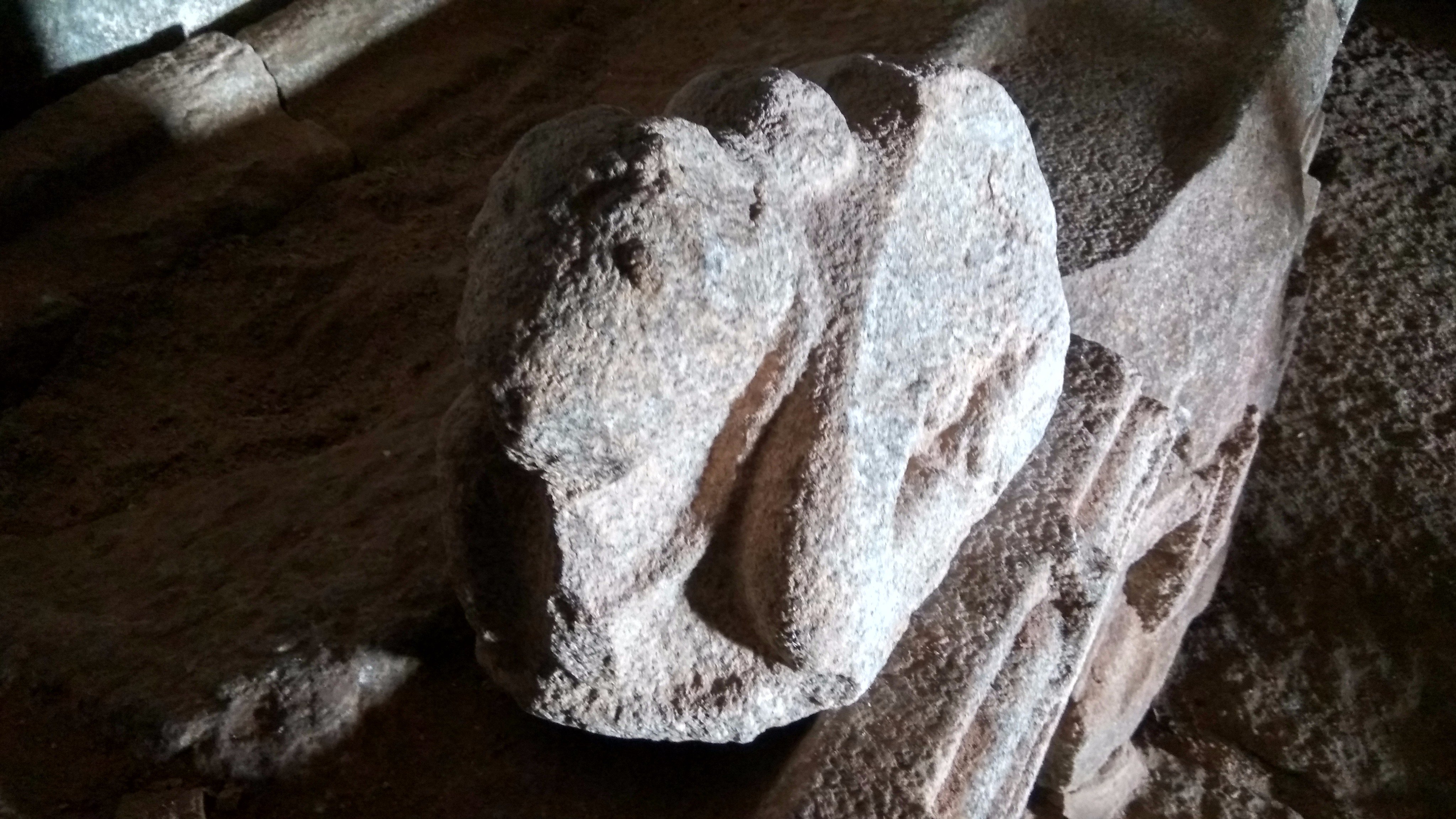 |
| The ASI's apathy for history & heritage on full display here. An out of place nandi resting on a platform meant for Vishnu.These ASI folks basically don't care, nor do the public. For them every other Hindu artifact is just another stone. |
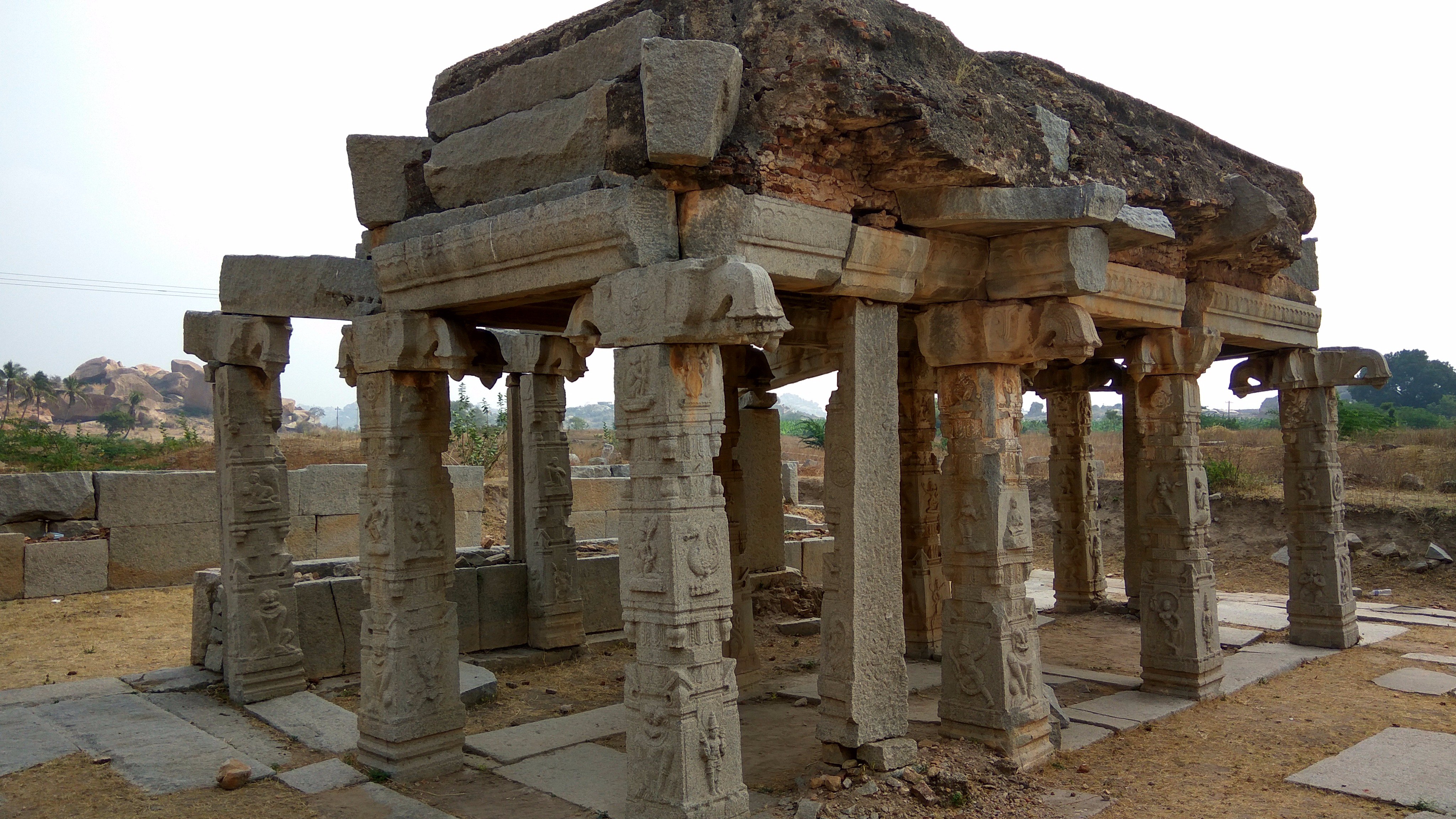 |
| A small mantapam outside the temple, still stands defying all known laws of structural engineering, despite all the damage inflicted by invaders |
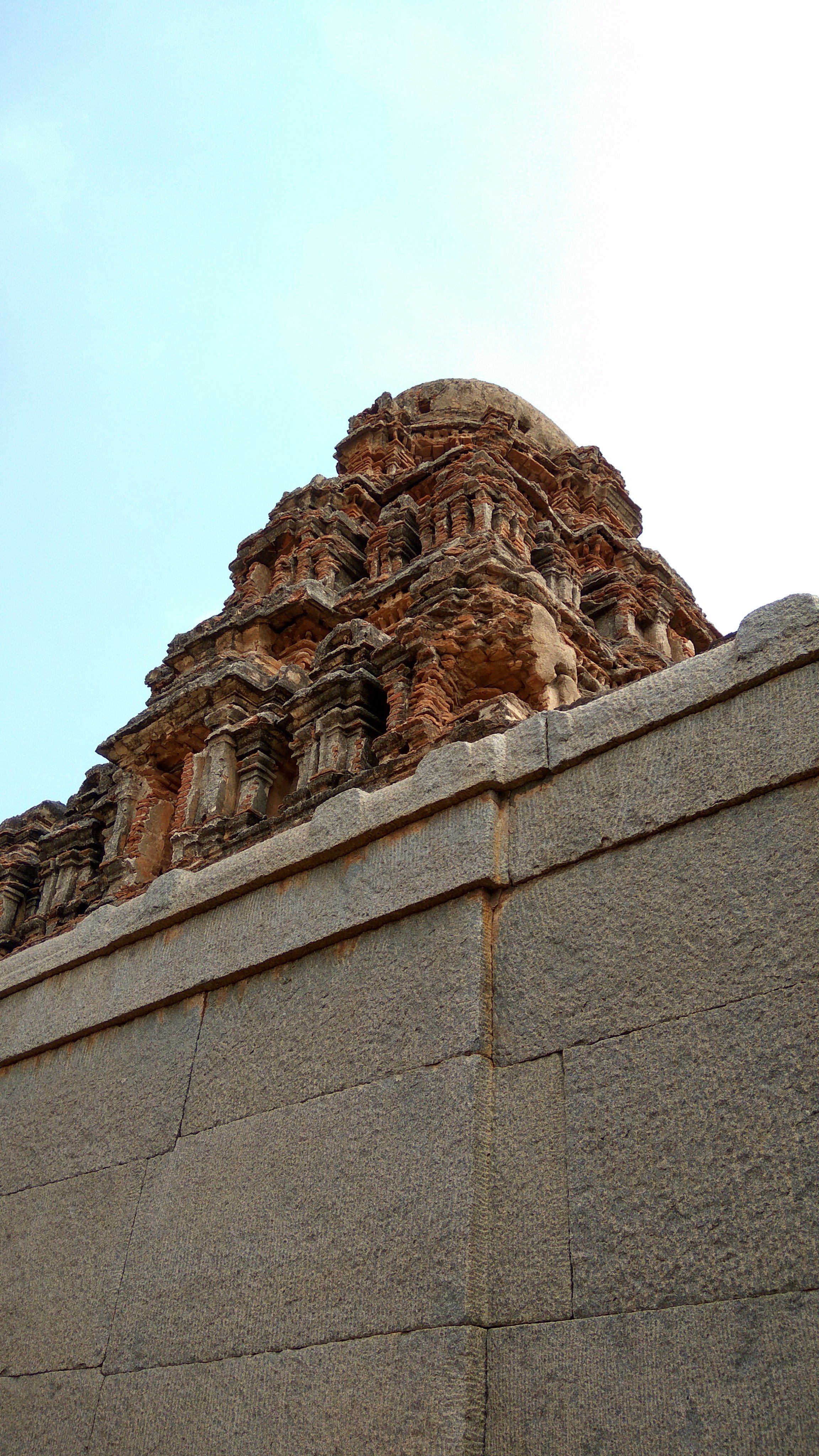 |
| Like most other Vimanas this too has been completely maimed. The carvings are all lost. |
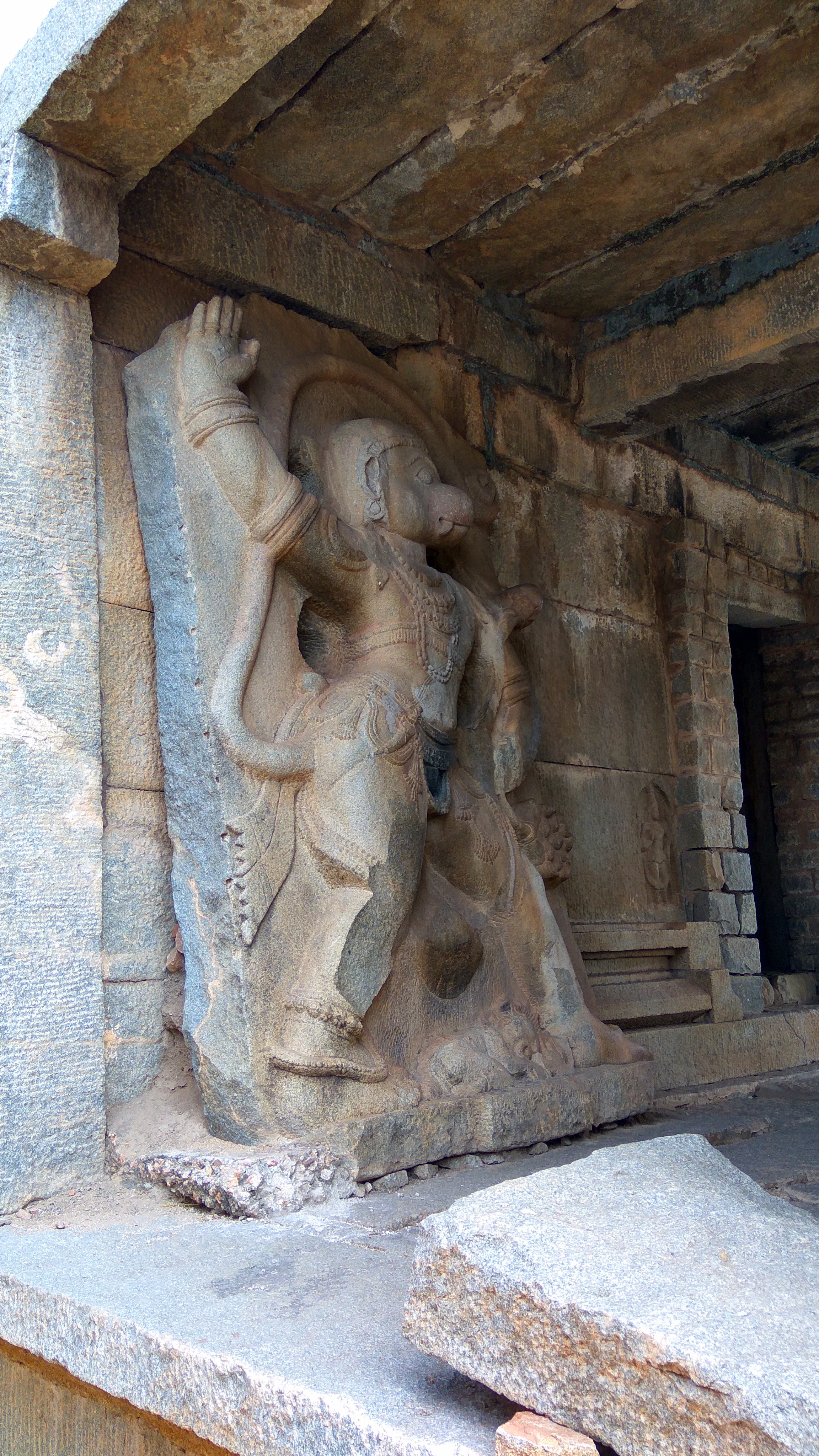 |
| The only saving grace of the entire Ranga temple complex is this Hanuman, even this has suffered damage at the hands of barbaric invaders.The slab doesn't appear to be part of the main Ranga temple, was possibly placed there much later by the ASI, again shoddily done. |
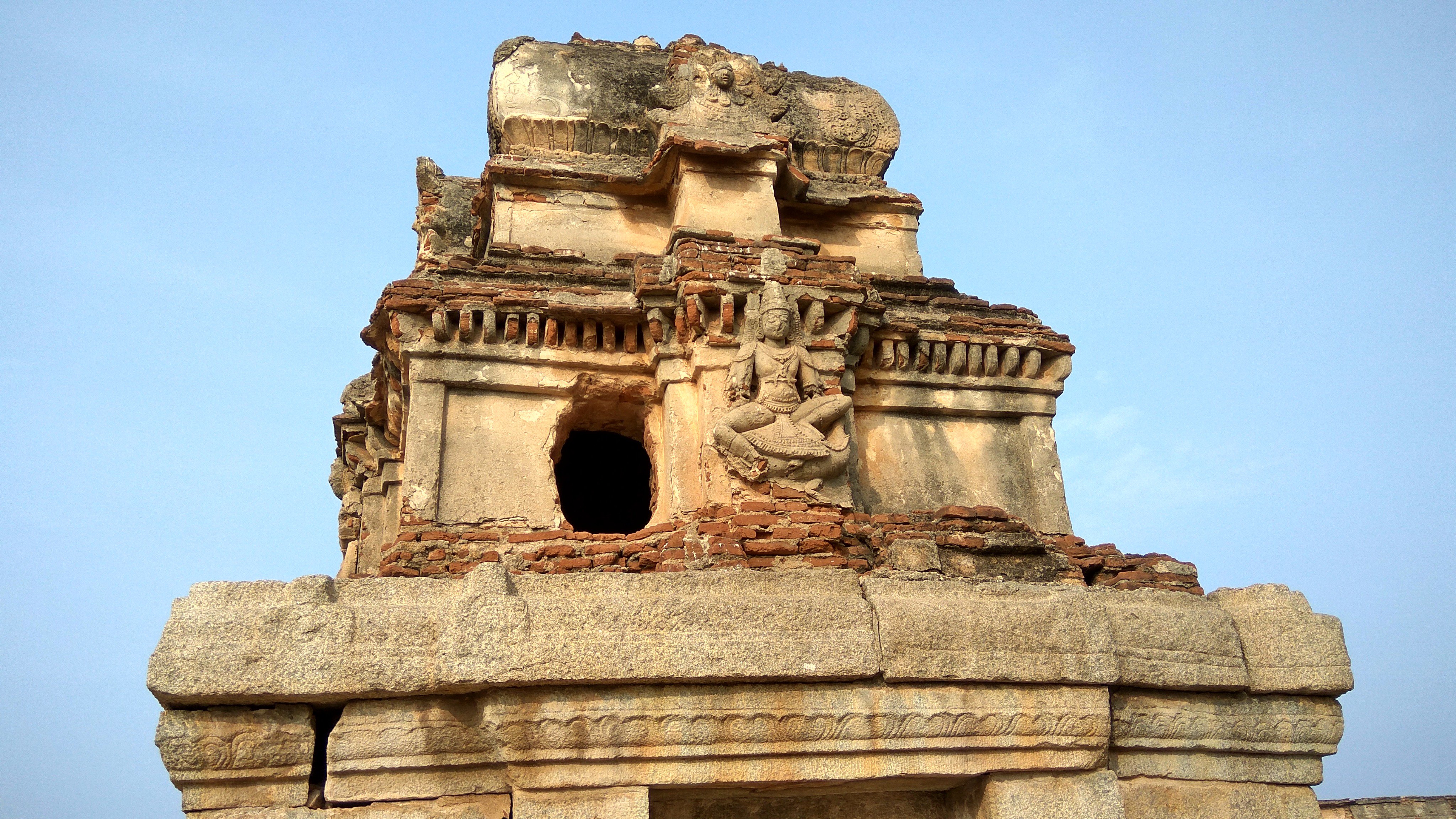 |
| If marxist historians had it their way completely, they'd have no hesitation in calling that gaping hole a primitive "Ventilation Duct" |
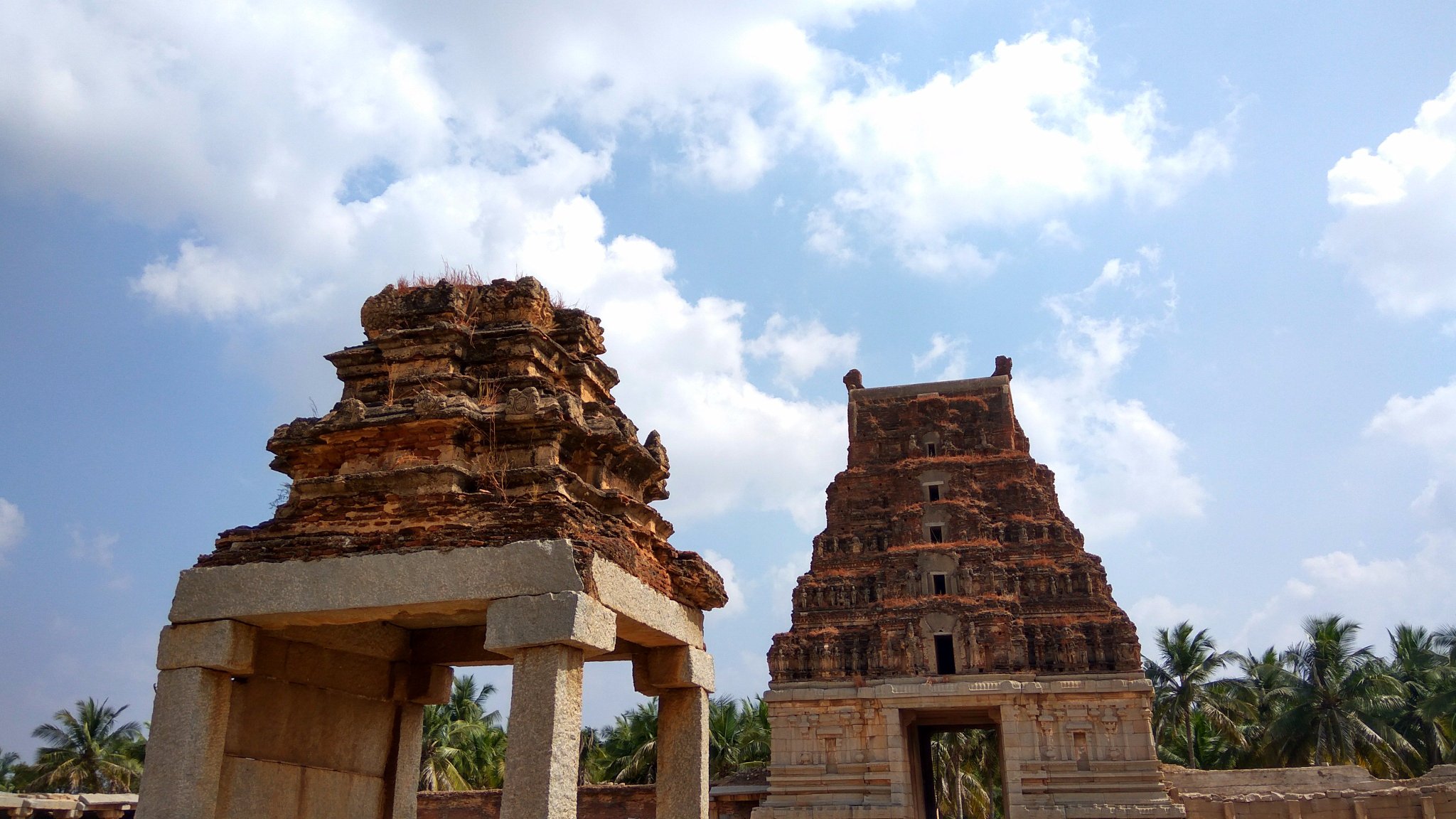 |
| Pattabhi Rama Temple |
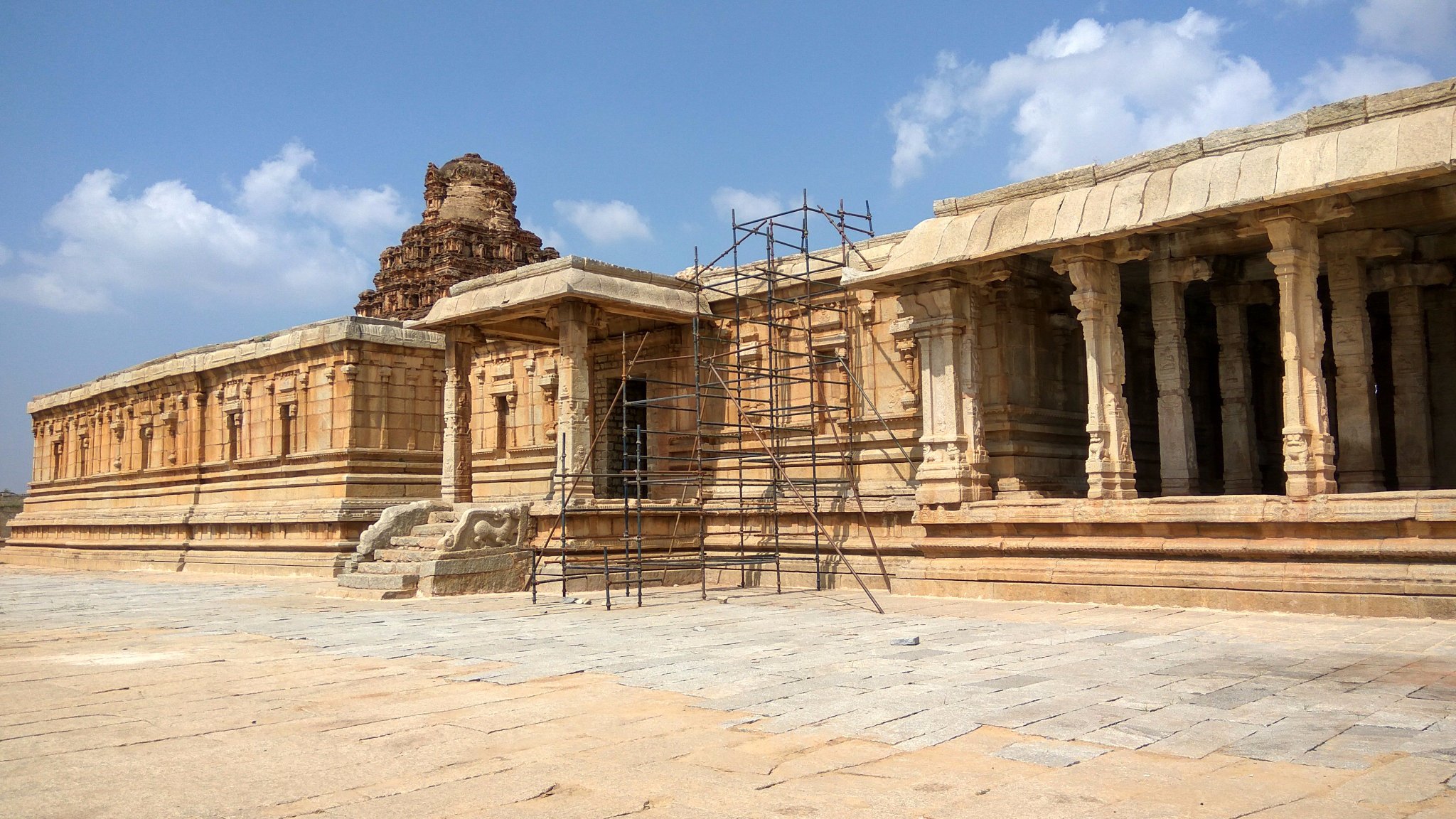 |
| The largest temple complex in all of Hampi is not Virupaksha or Vittala Temple as popularly believed, but this massive Pattabhi Rama Temple located at Kamalapura. |
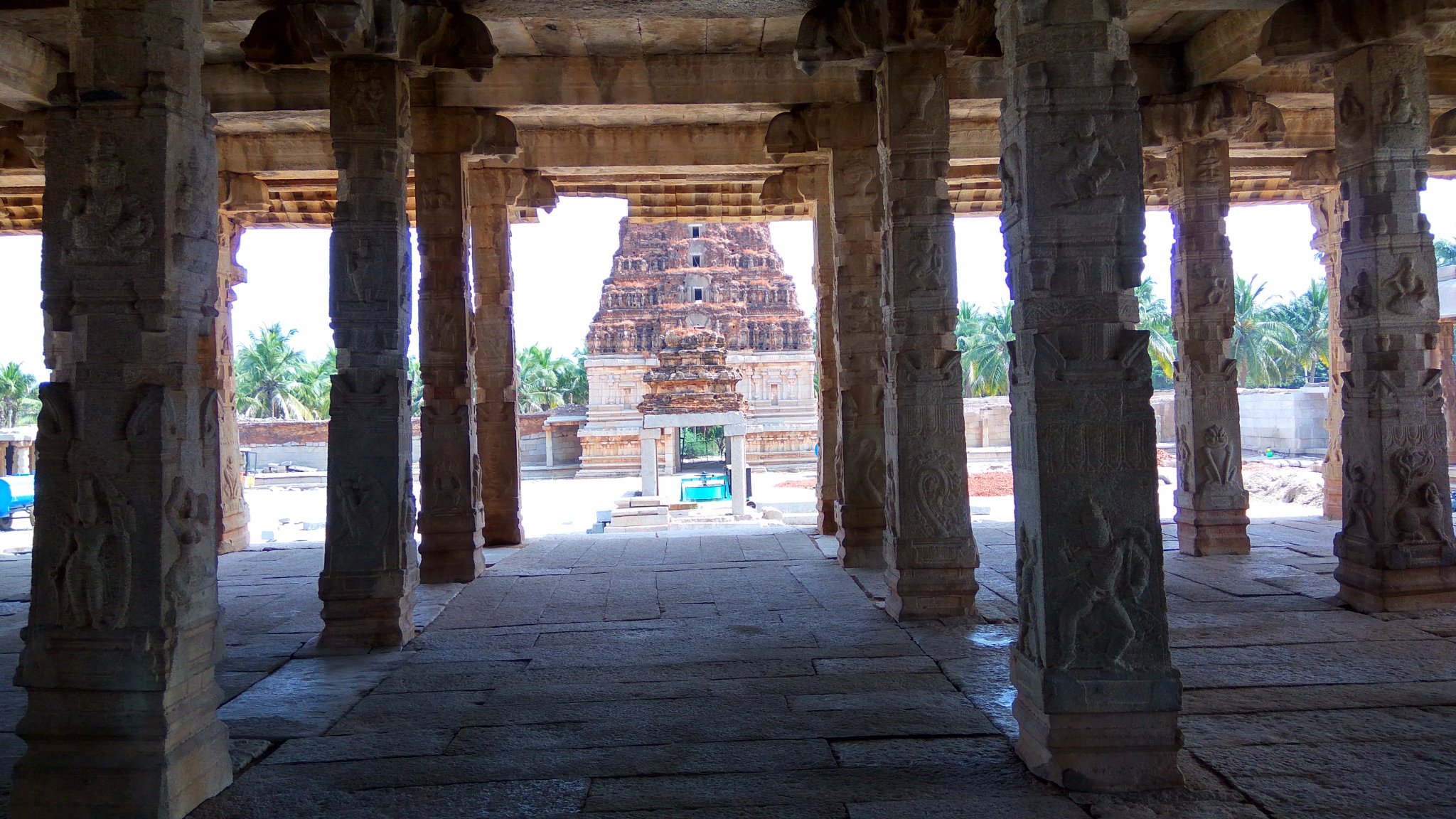 |
| It was one of the largest functioning Rama Temples in all of Bharat before it was destroyed by barbarians in 1565 CE |
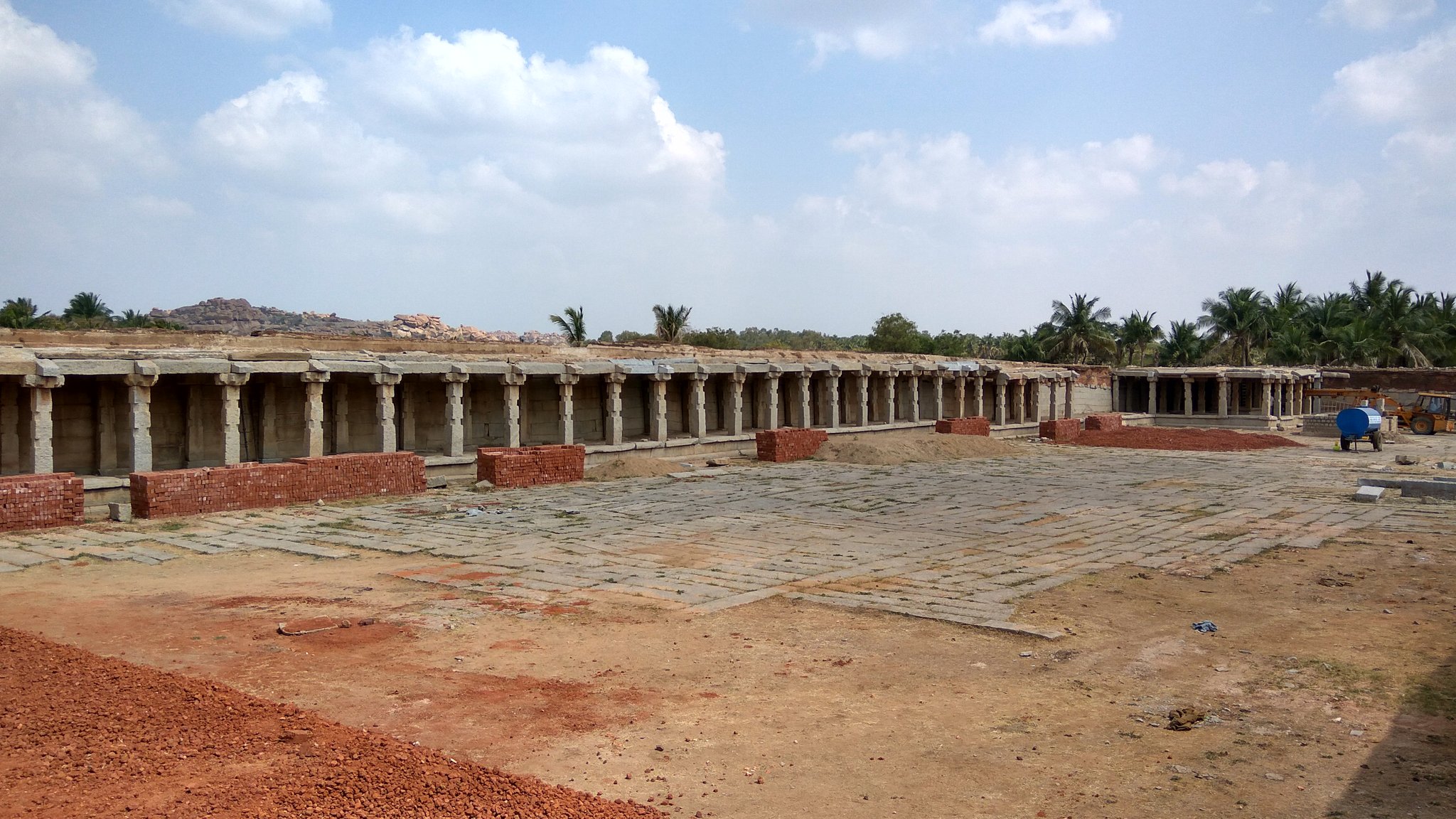 |
| Today Pattabhi Rama Temple bears an empty ghostly look. There isn't a soul in sight. |
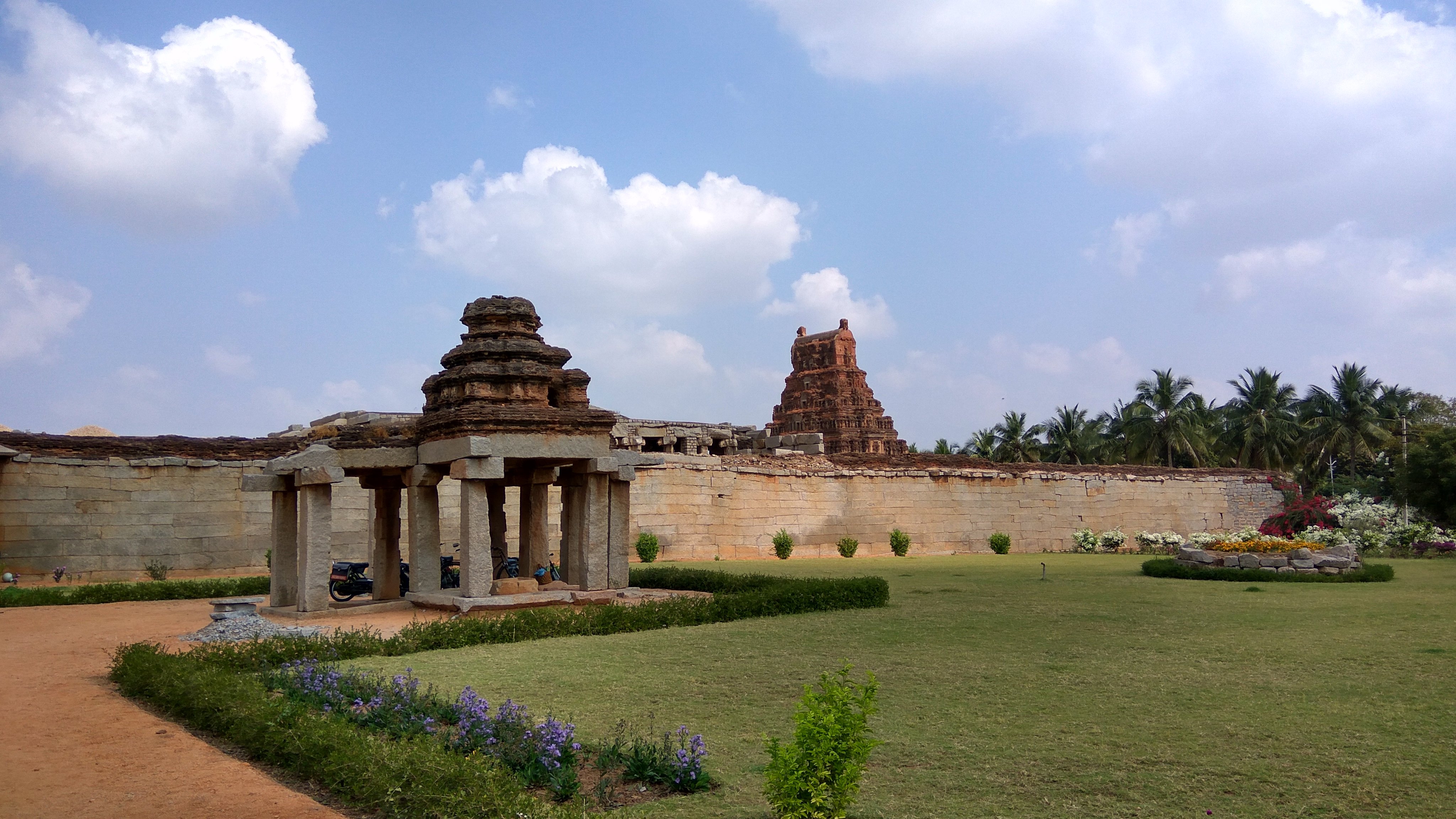 |
| There isn't a soul in sight. |
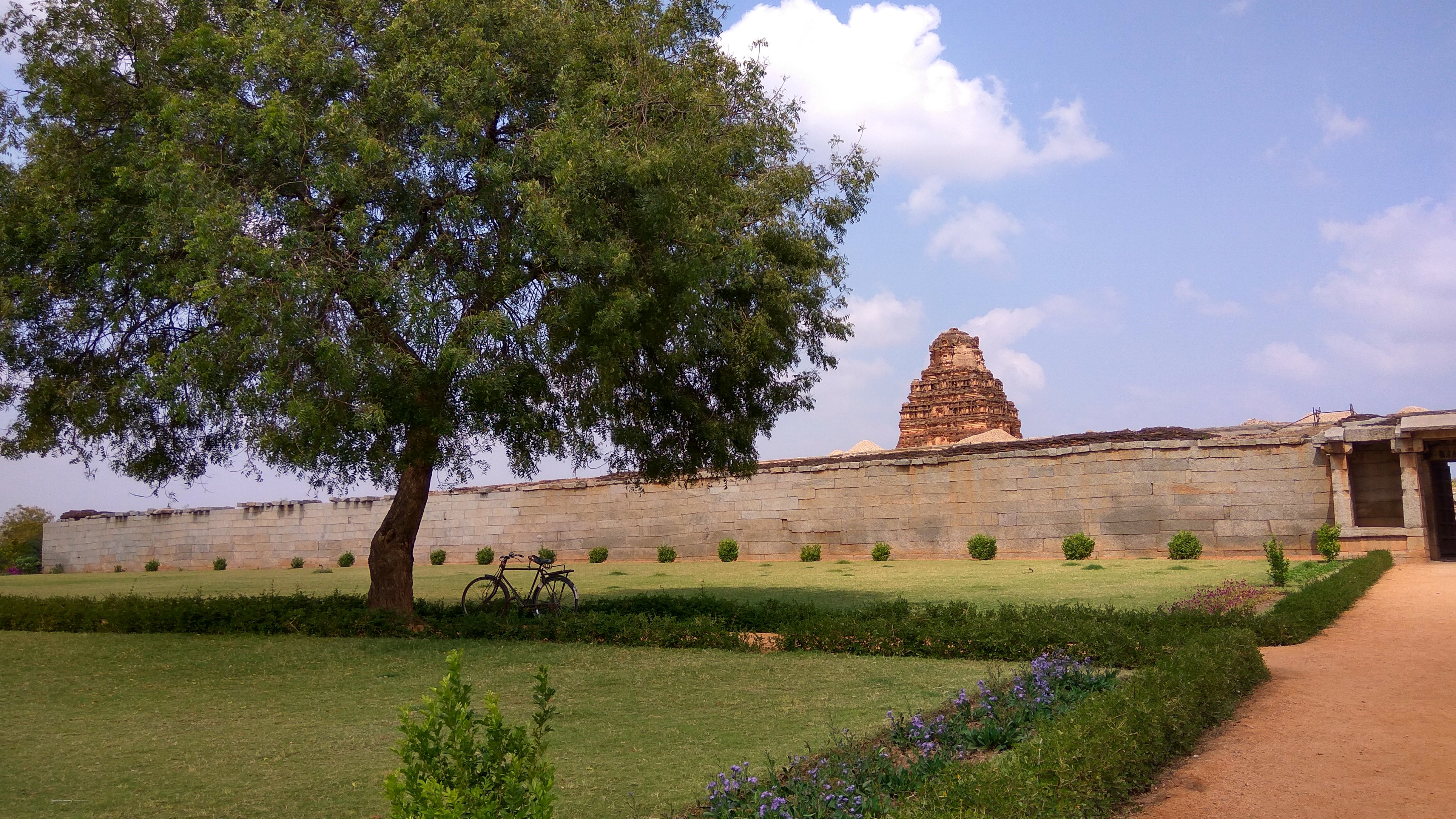 |
| It is painful to see Temples without devotees thronging the place chanting Shri Rama's name. |
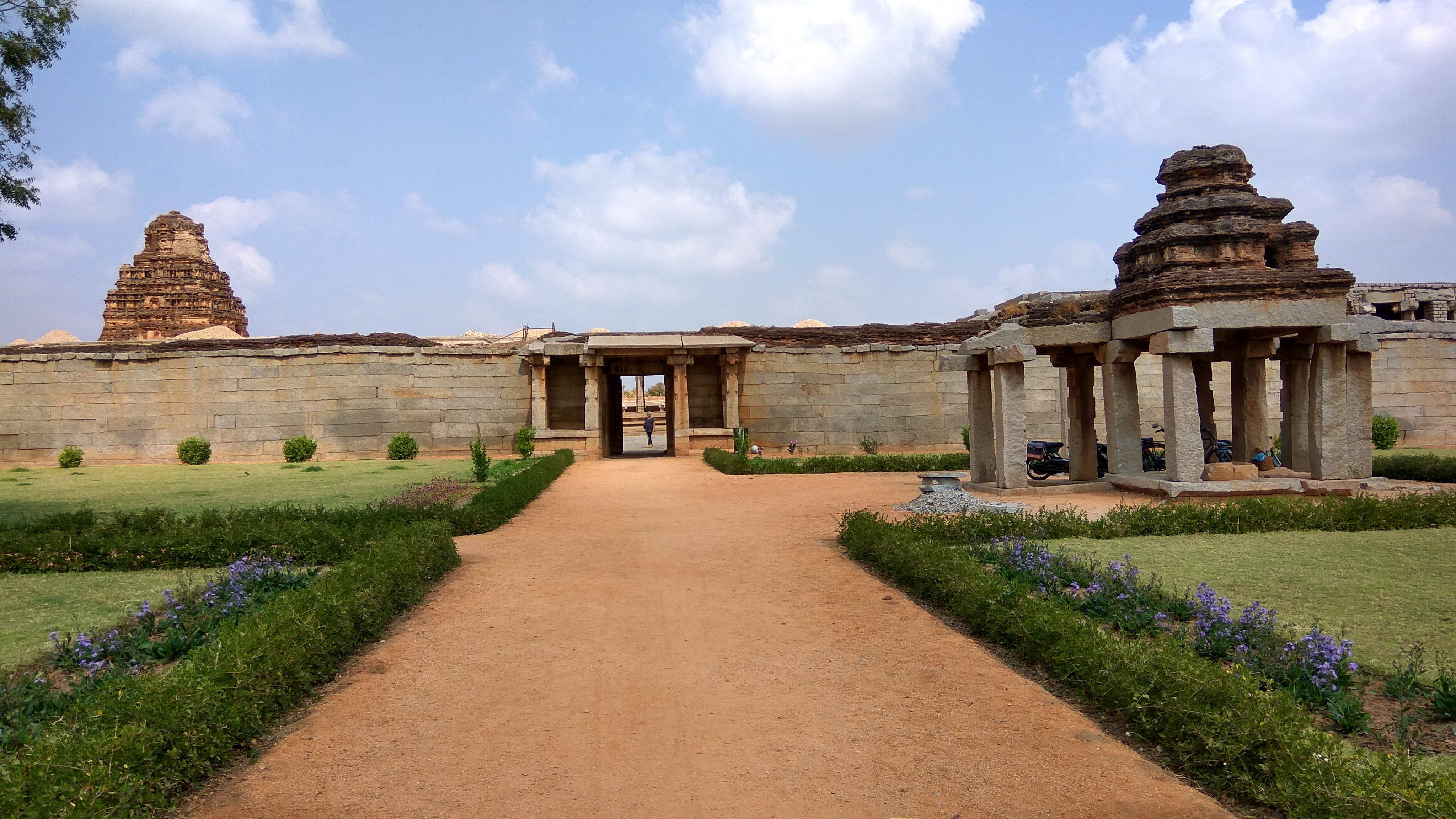 |
| The ASI thinks we are like the Greeks or Egyptians. They are wrong. Our civilization is not yet dead. |
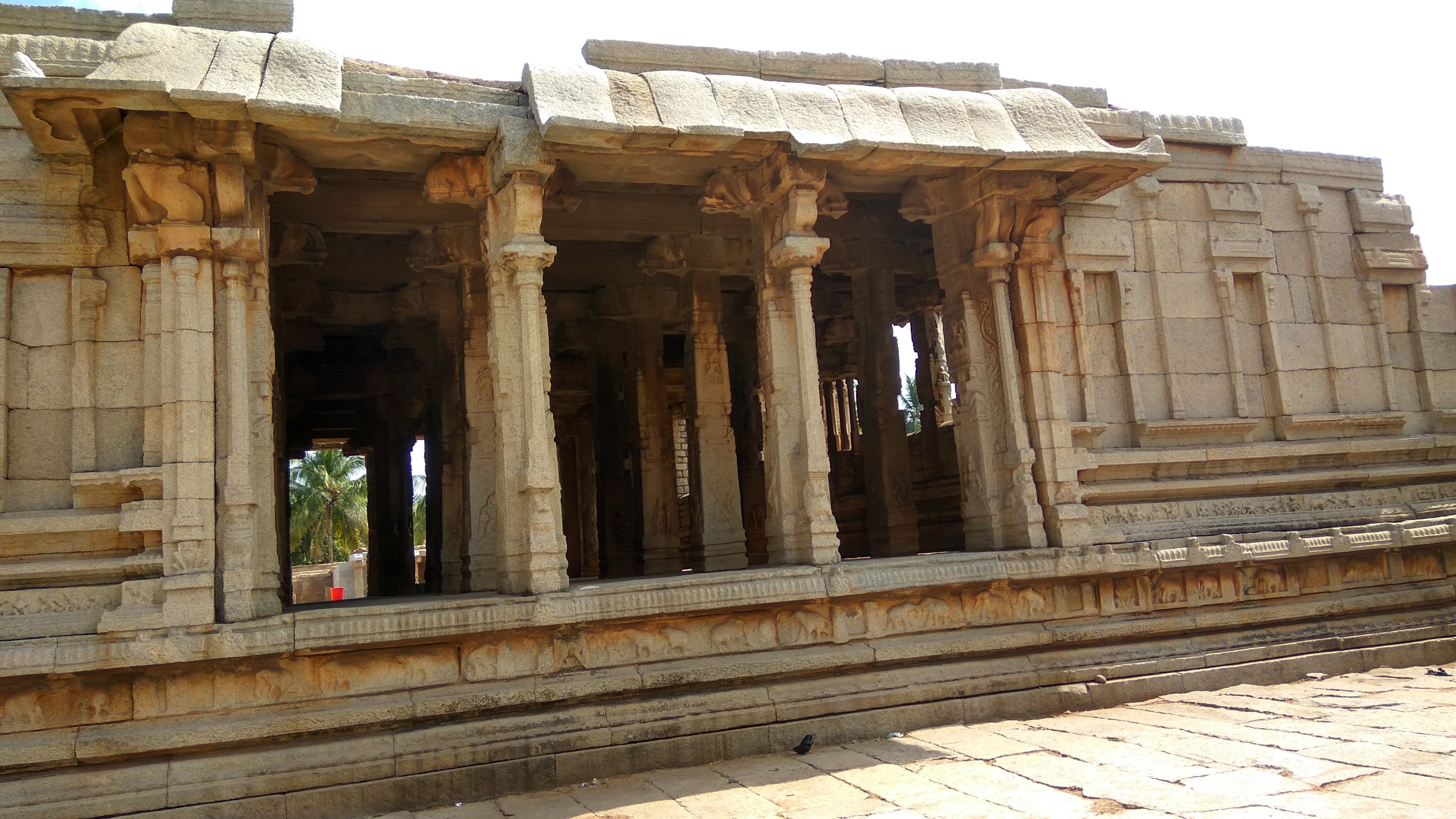 |
| There wasn't a soul in sight, was all alone for nearly a hour. Surreal experience. |
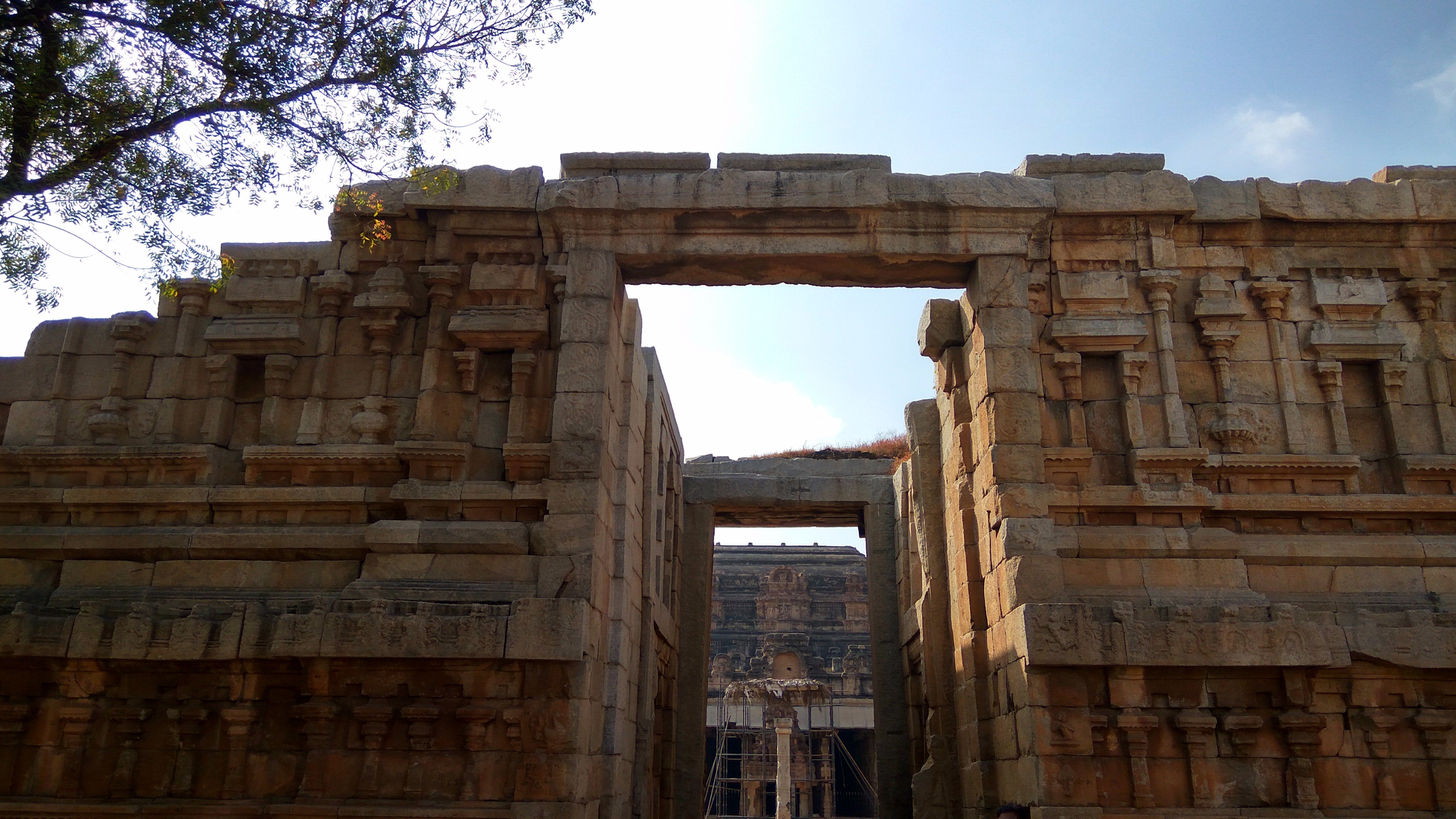 |
| This is the entrance to the Ananthashayana temple some 10 kms away from Hampi, its unlike any other. Intimidating at first sight. |
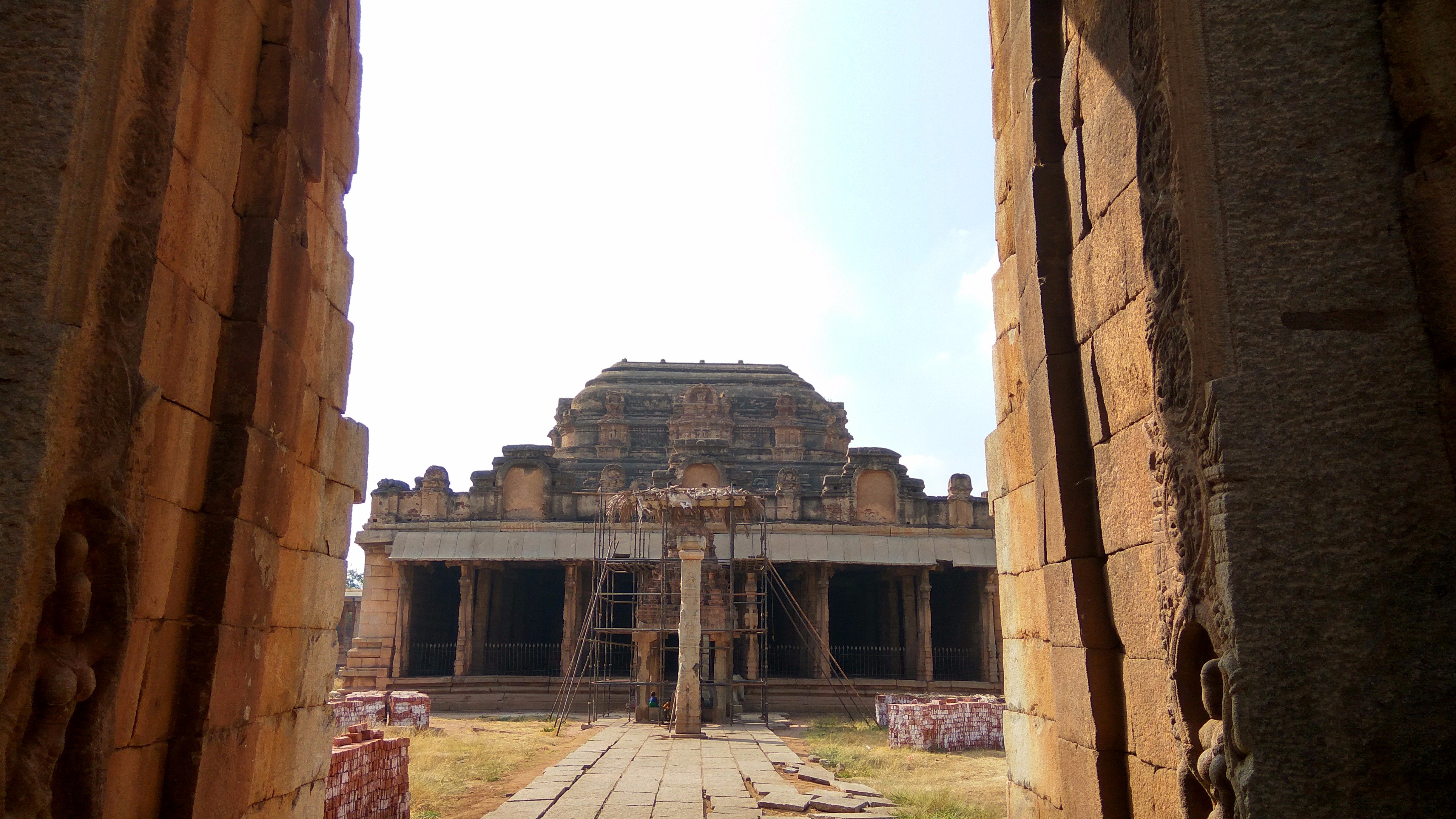 |
| Photos really don't do any justice, this temple is something else. It is nestled right along the main road to hampi, but easy to miss. |
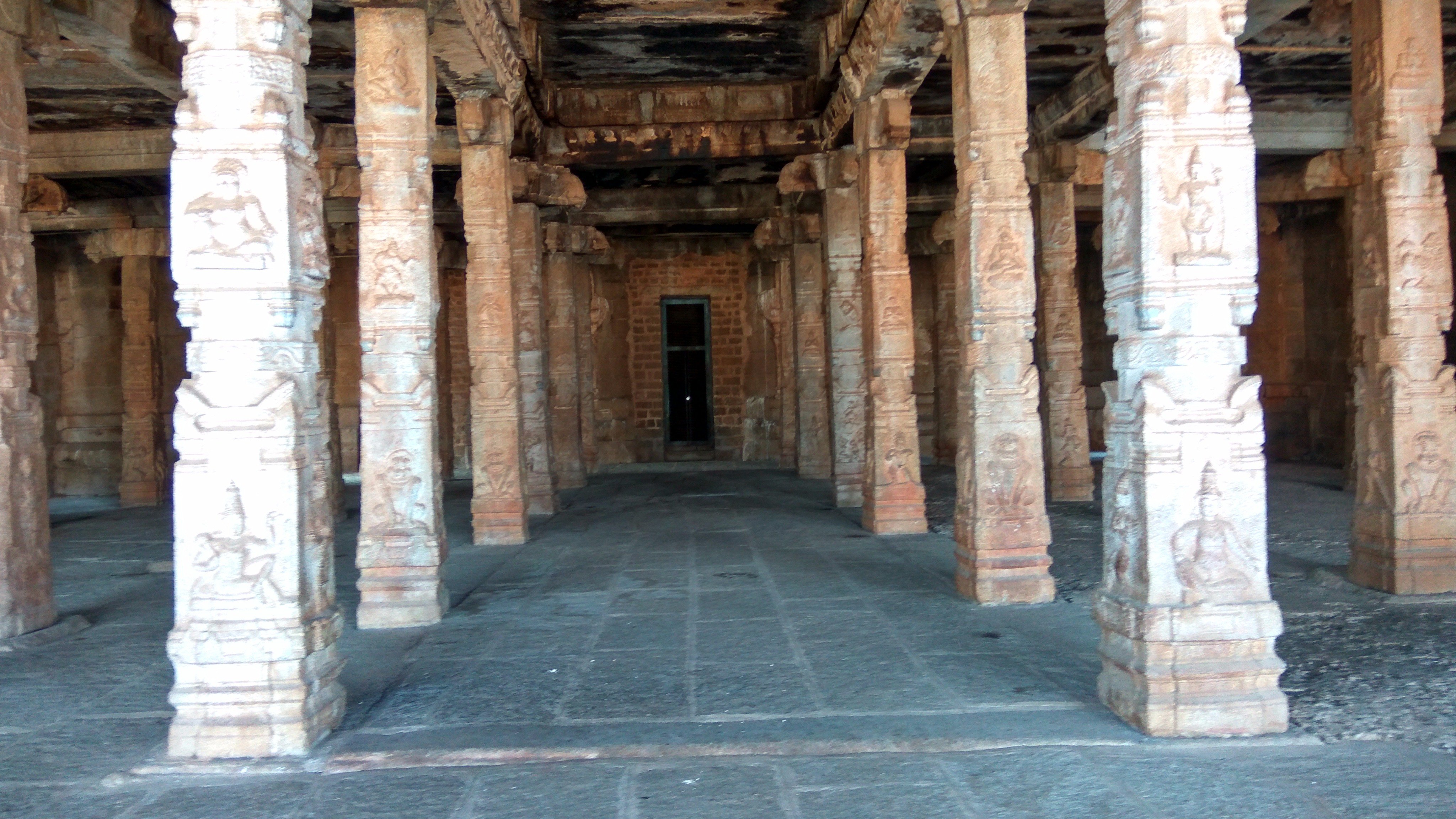 |
| The temple has a huge mantapa and a large rectangular shaped garbhagriha, it was meant for the reclining image of Lord Vishnu |
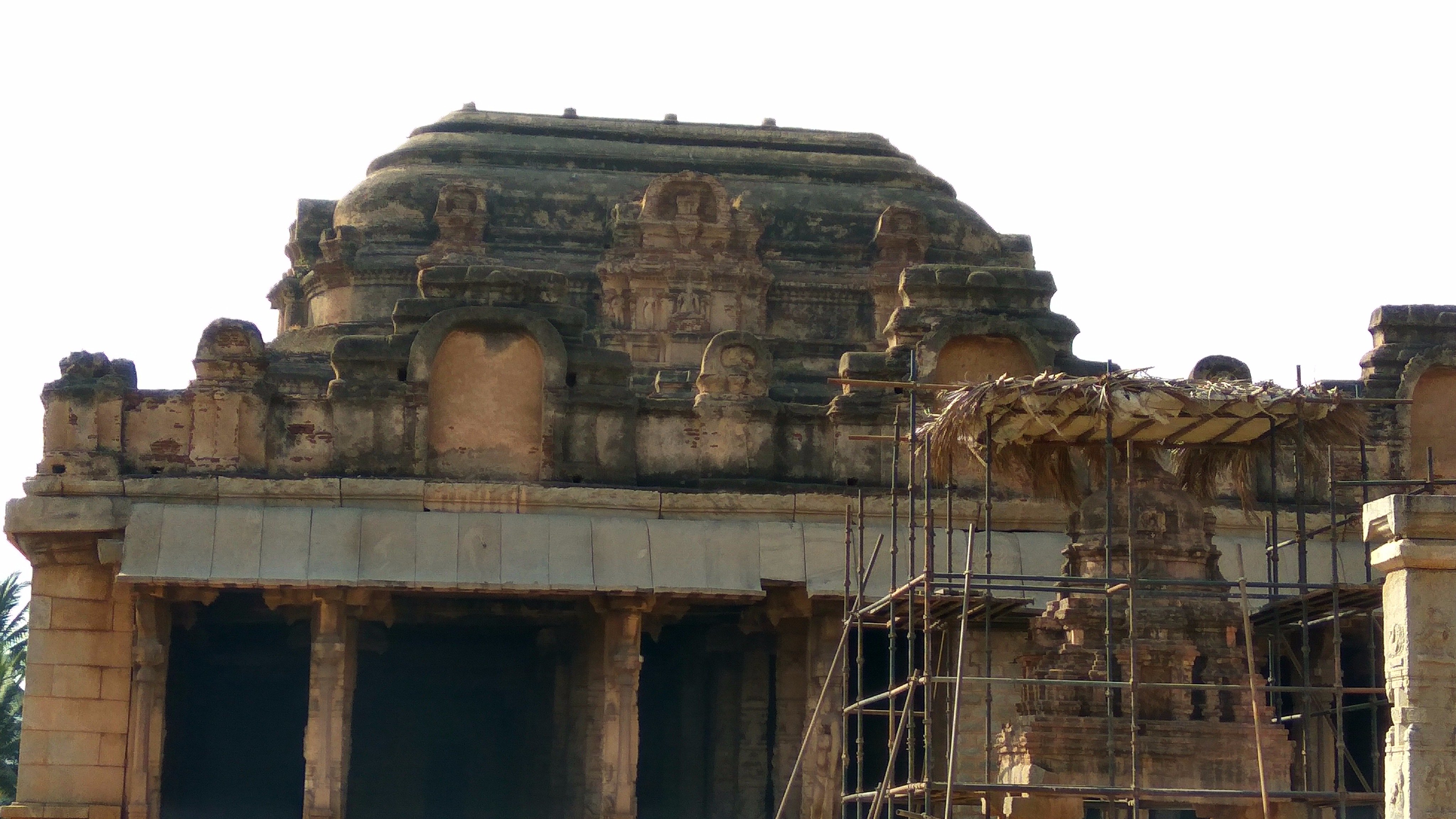 |
| The vaulted dome over the garbhagriha is something else, swear in all my travels haven't seen anything like it ever. Gotta see to believe it |
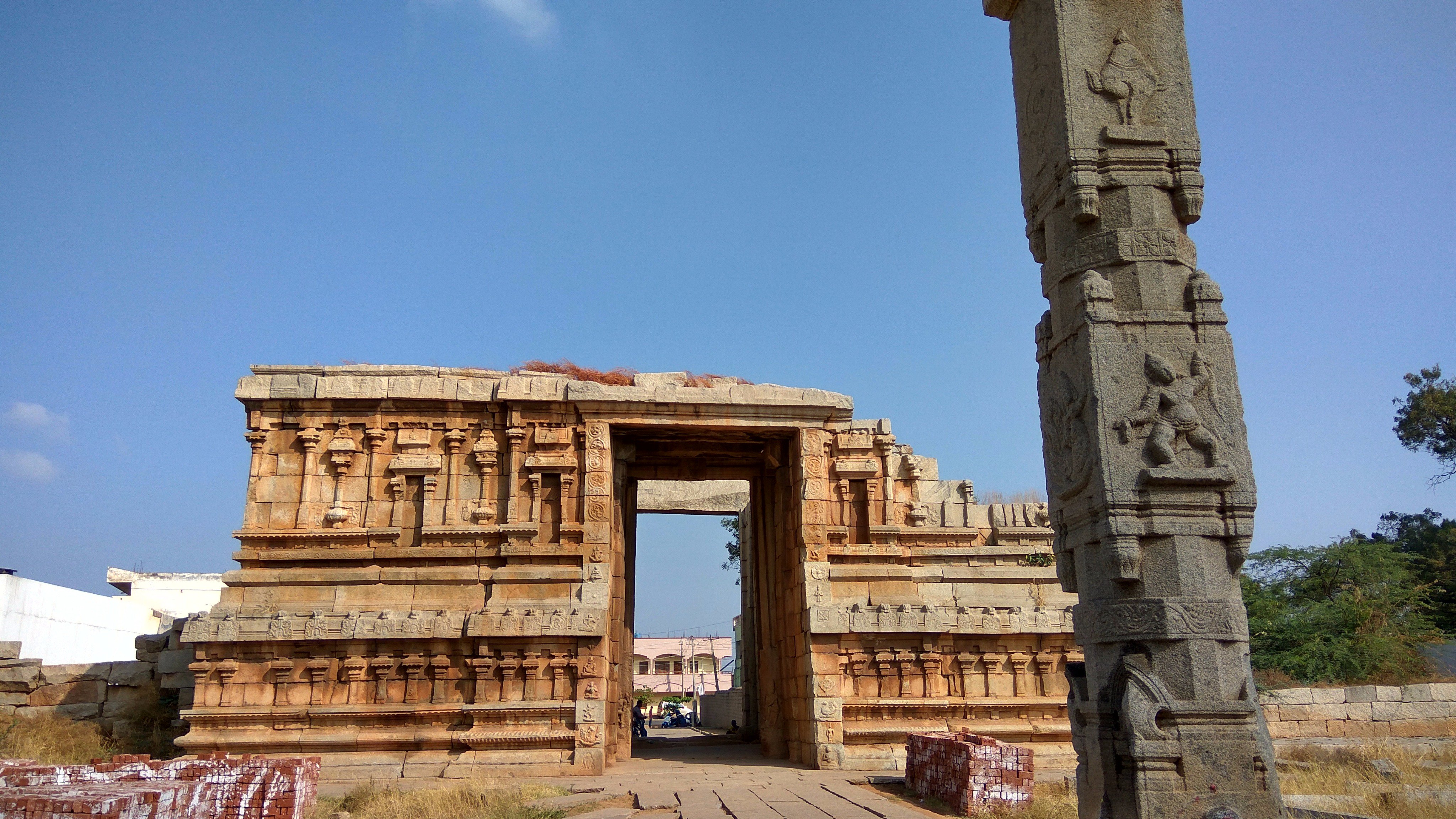 |
| Its a huge praakaaram with gopurams in four directions, all of which were destroyed by barbaric invaders during the loot of hampi. |
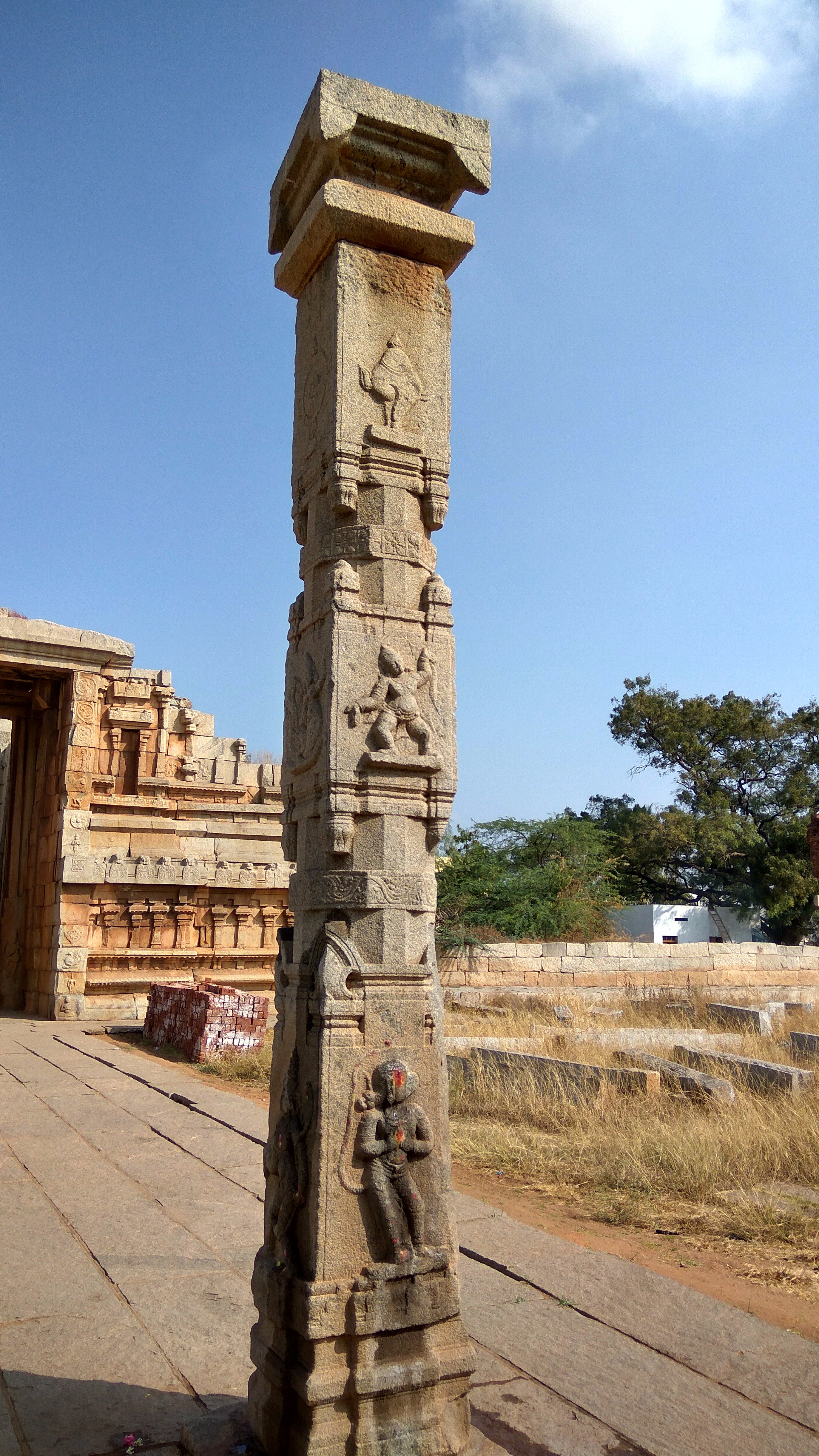 |
| Among few things that have survived the plunder is this dwajasthambam, the locals do puja here since the main Vishnu vigraham has been destroyed |
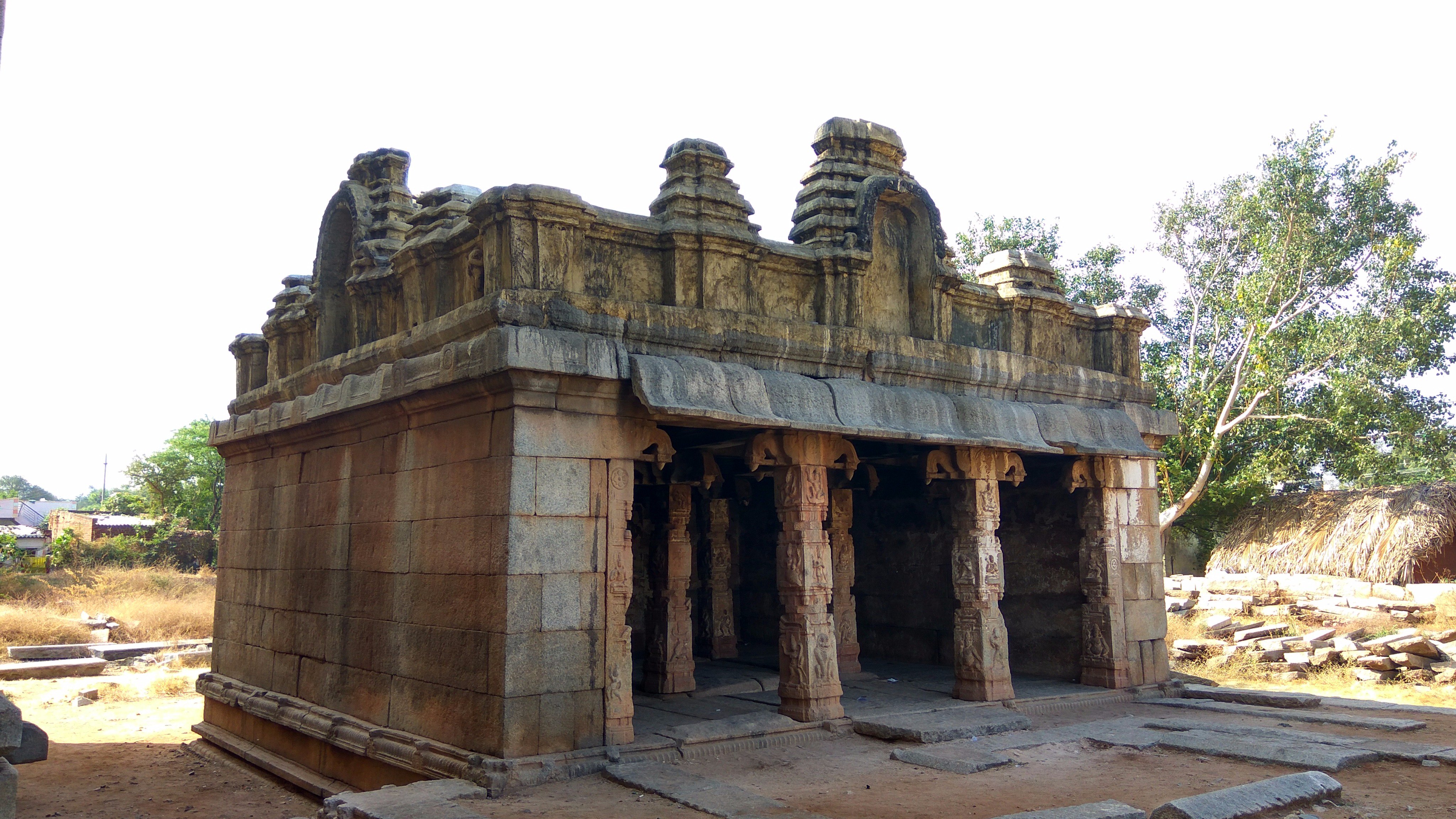 |
| A separate gudi meant for Mahalakshmi just adjacent to the main structure. |
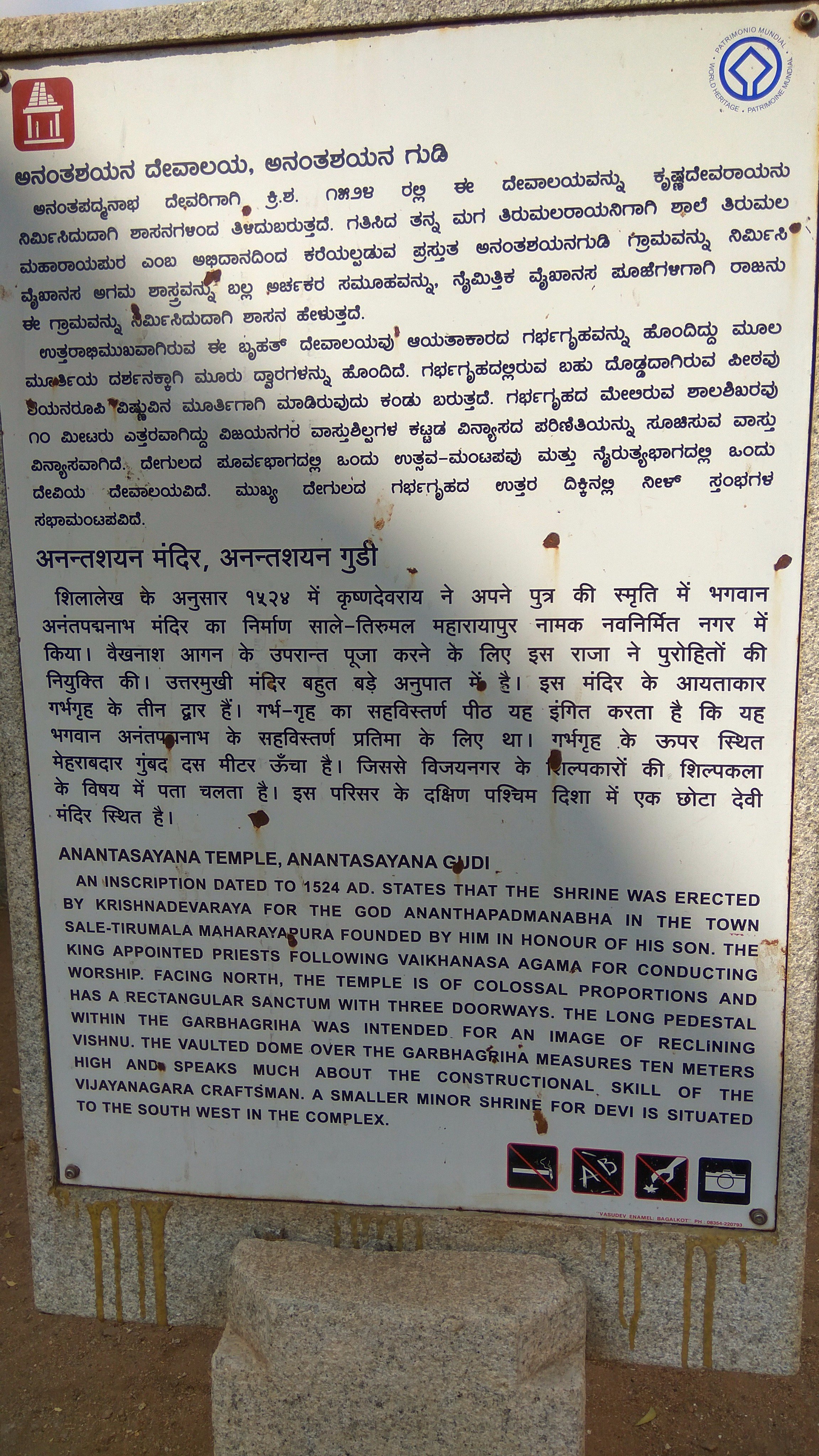 |
| And finally the shoddy ASI signboard that signifies everything wrong with our country today.Its a tragedy hardly anyone knows about this remarkable temple, there was not a soul in sight on all 3 days of my visit here. If you are visiting hampi here are the coordinates. 15°16'40.58"N 76°24'26.45"E , its on the right side just after the railway crossing. |
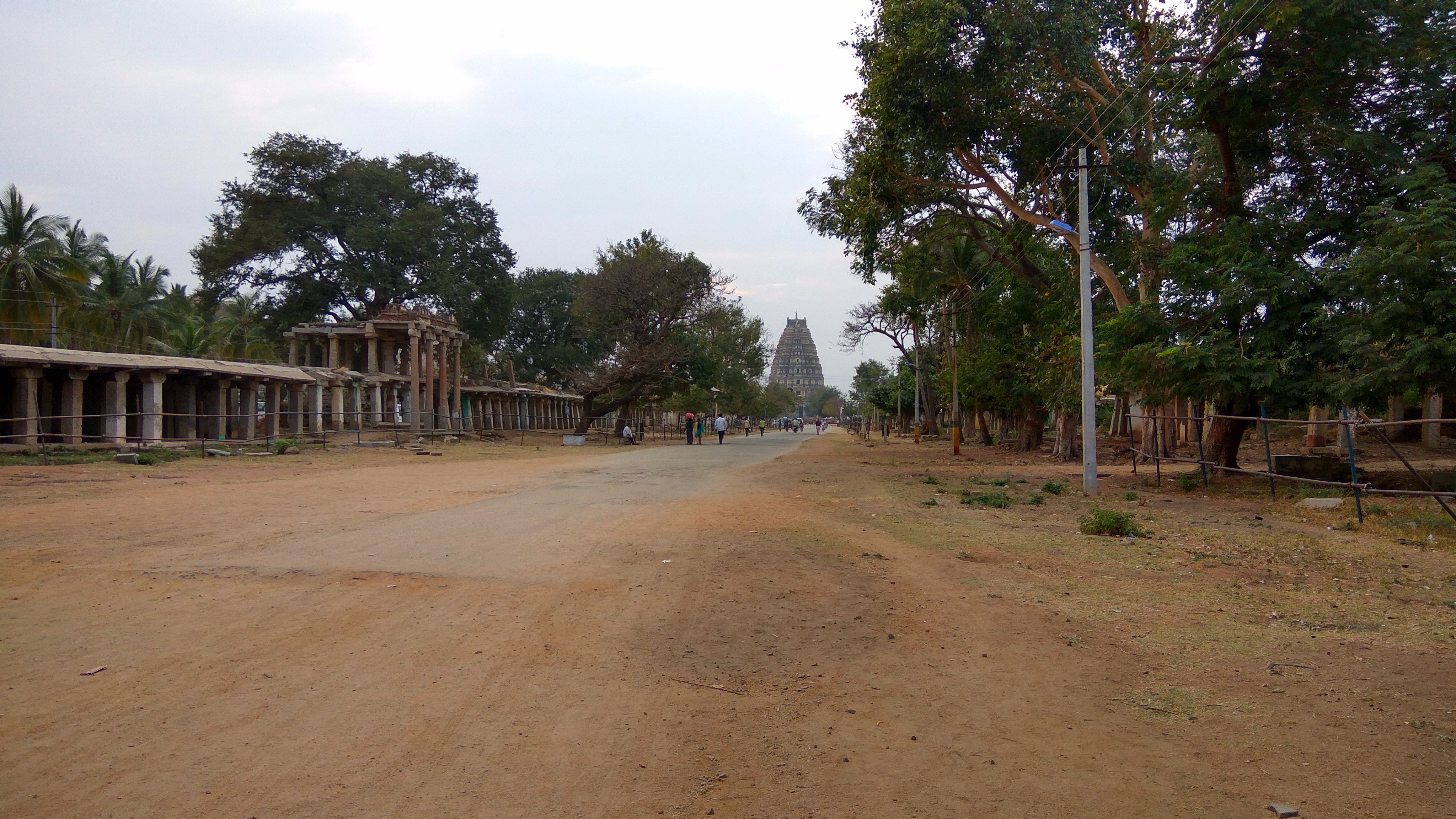 |
| This is the Hampi baazar, was the Wall street of the 15th century.The richest city on the planet. Paris & London couldn't hold a candle to it. |
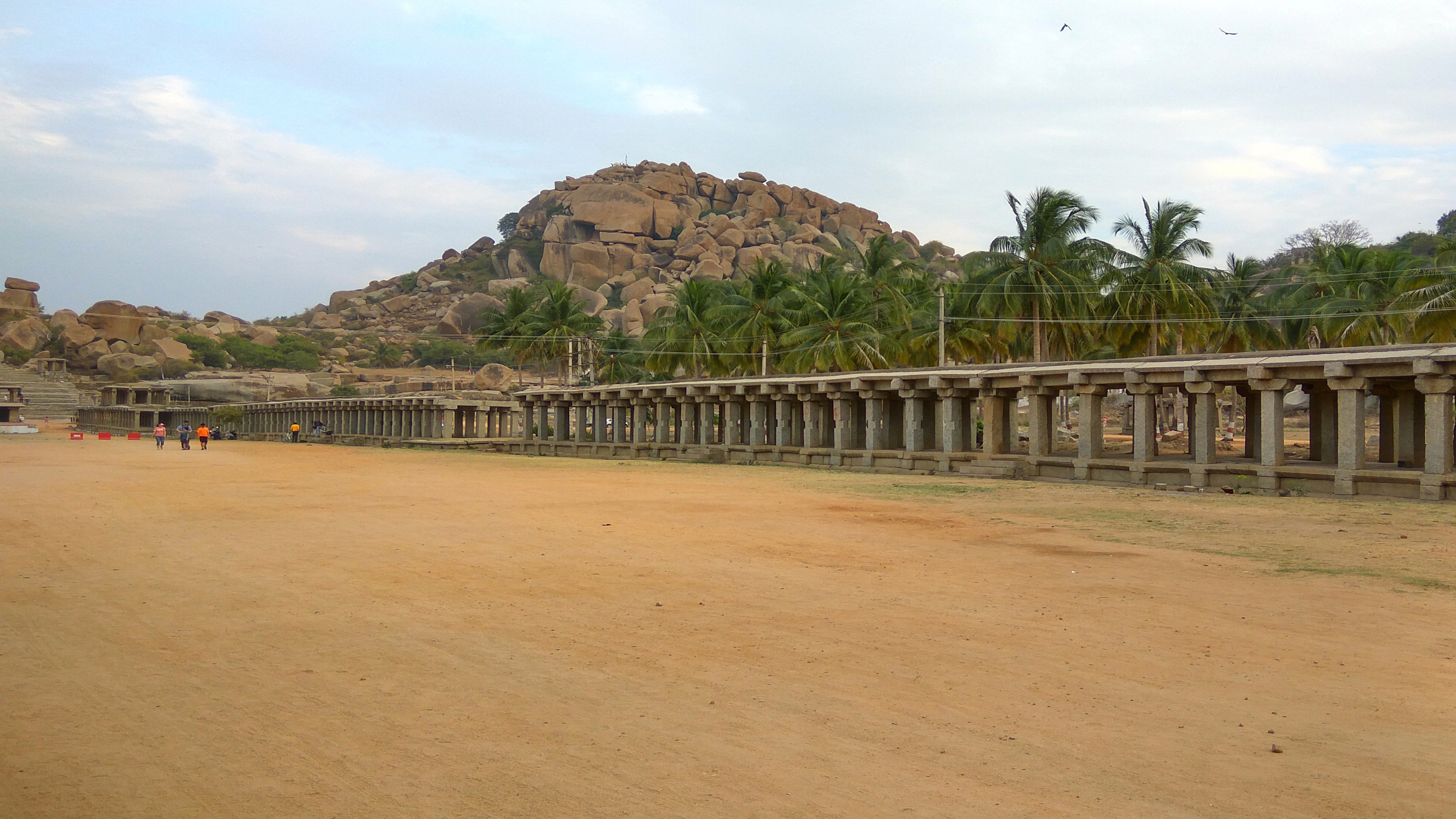 |
| They openly traded diamonds in those very open pavilions . You wouldn't find such broad streets even today in any of our metros. All lost. All lost because the later rulers of the empire adopted a "pluralistic" & "secular" approach to governing, eventually letting their guard down. |
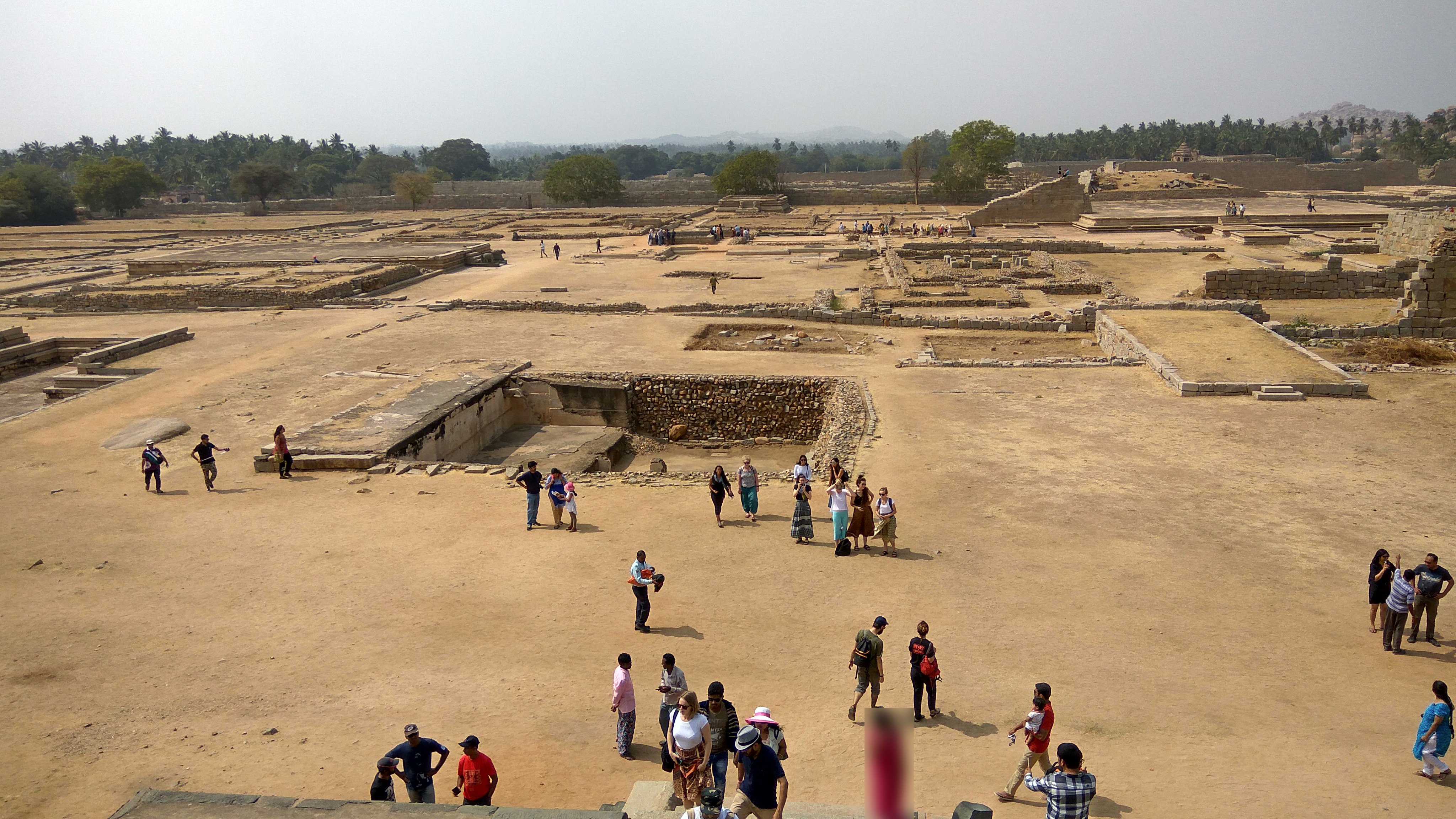 |
| Atop the Mahanavami Dibba, Hampi. Used to be the Royal Center before it was ransacked. You'll find some of the most amazing remains here. |
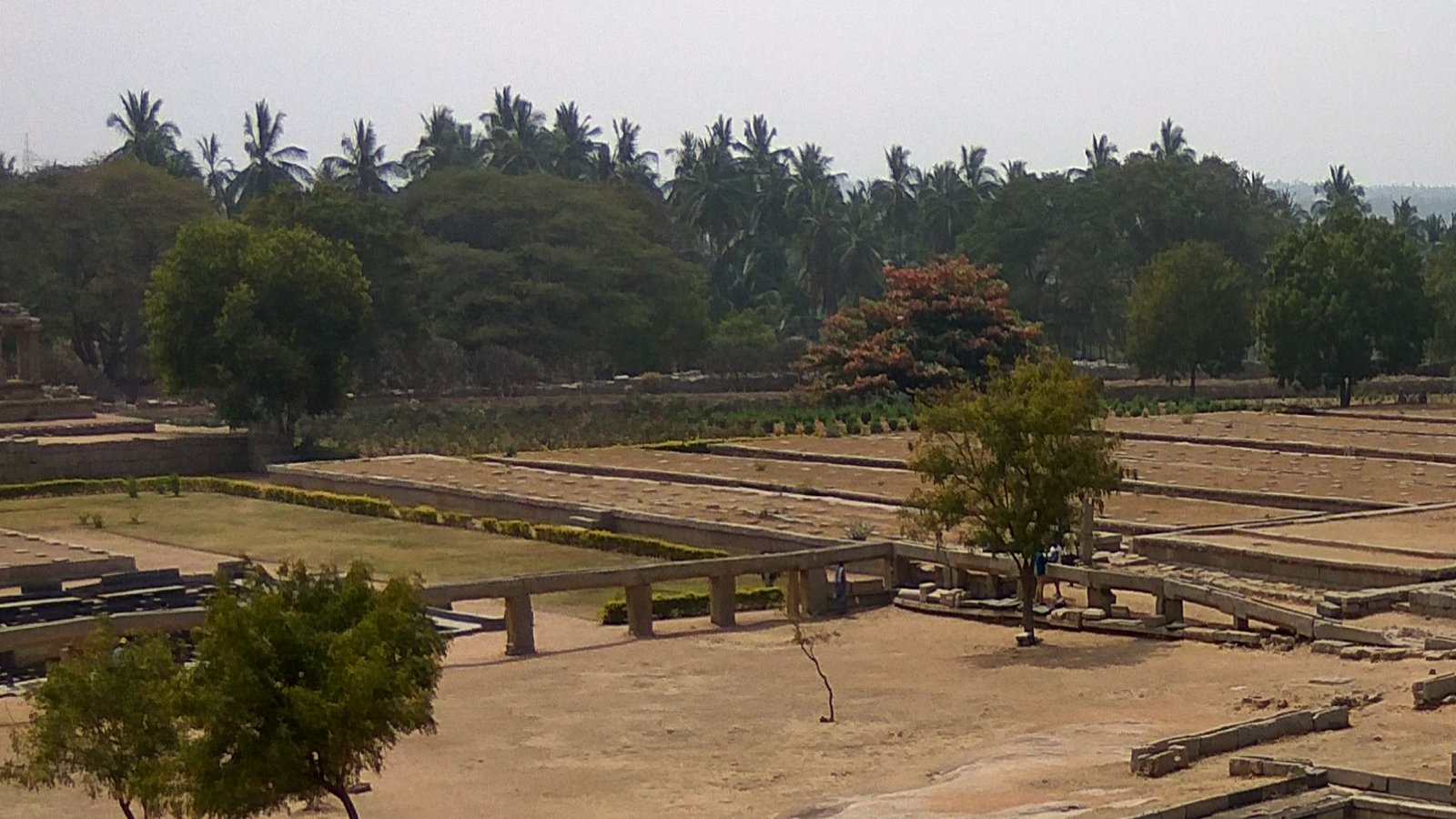 |
| For example these amazing aqueducts that were built to transport water from the Tungabhadra river many miles away to the pushkaranis |
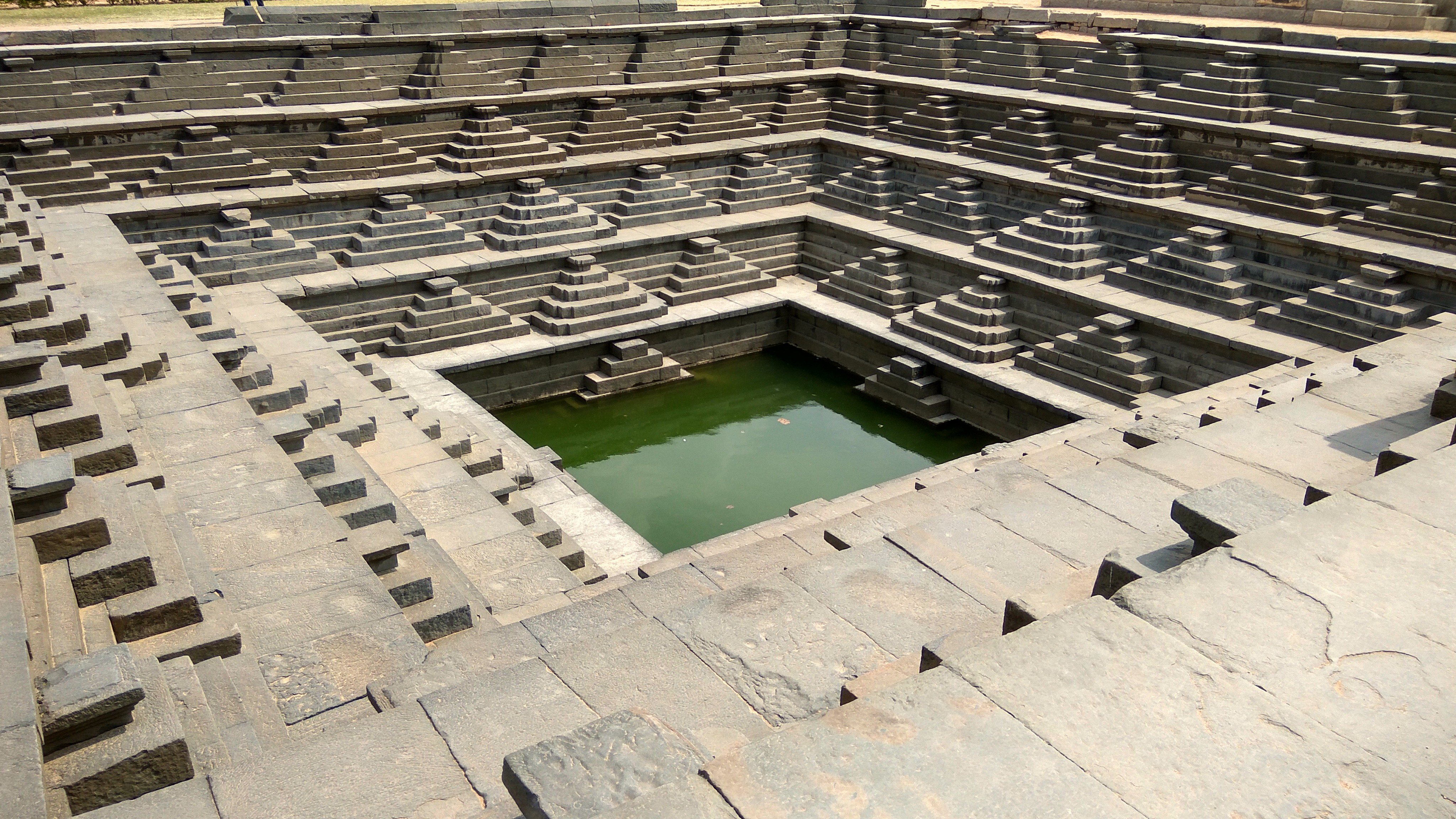 |
| Nearly 600 year old pushkarani, filled with river water transported using aqueducts which were several miles in length. |
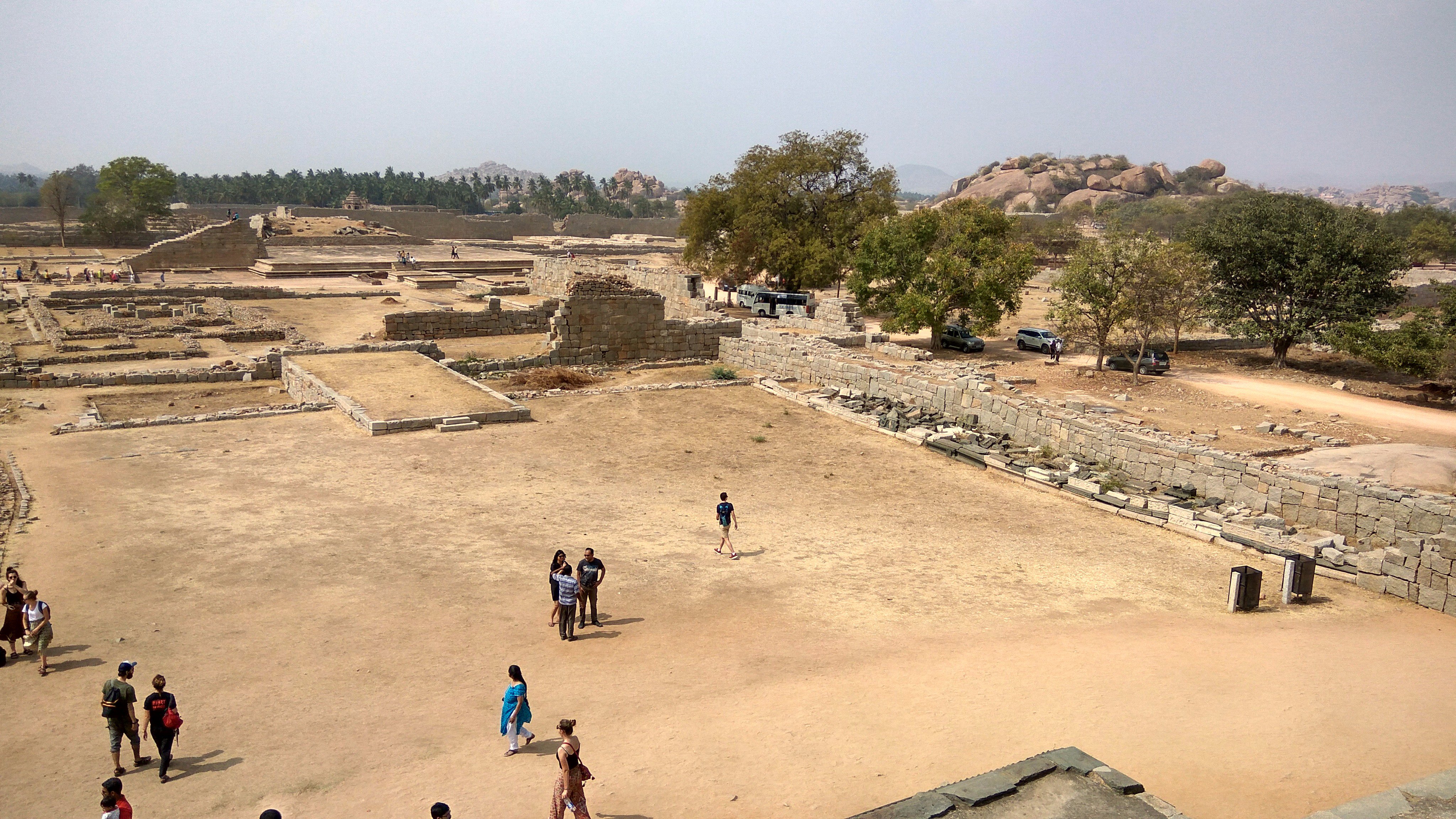 |
| All one can see standing atop the massive platform is miles & miles of carnage & destruction of Hampi. |
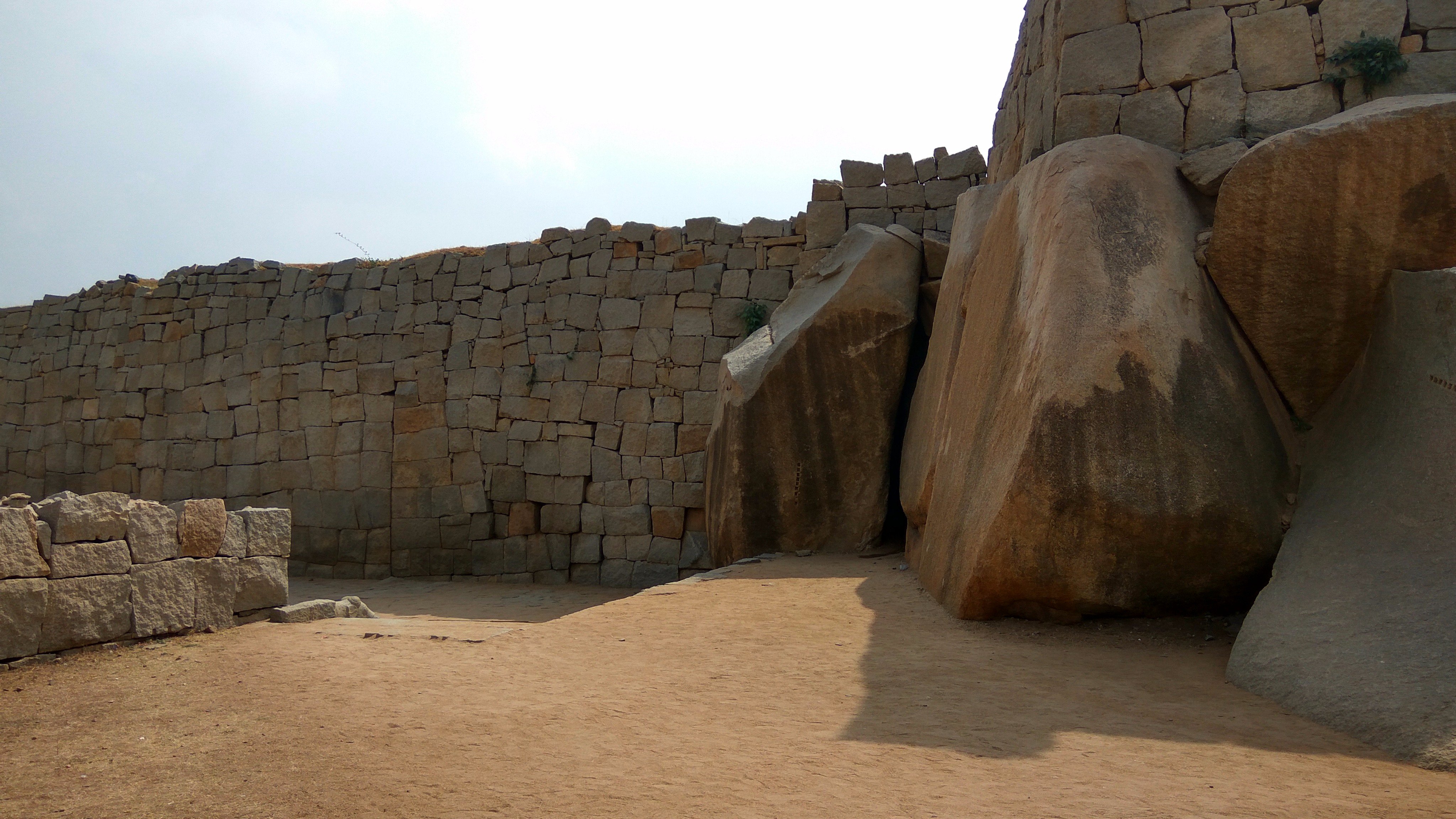 |
| Despite the massive fortification of the Mahanavami dibba, it finally fell prey to blood thirsty barbarians who unleashed hell on it. |
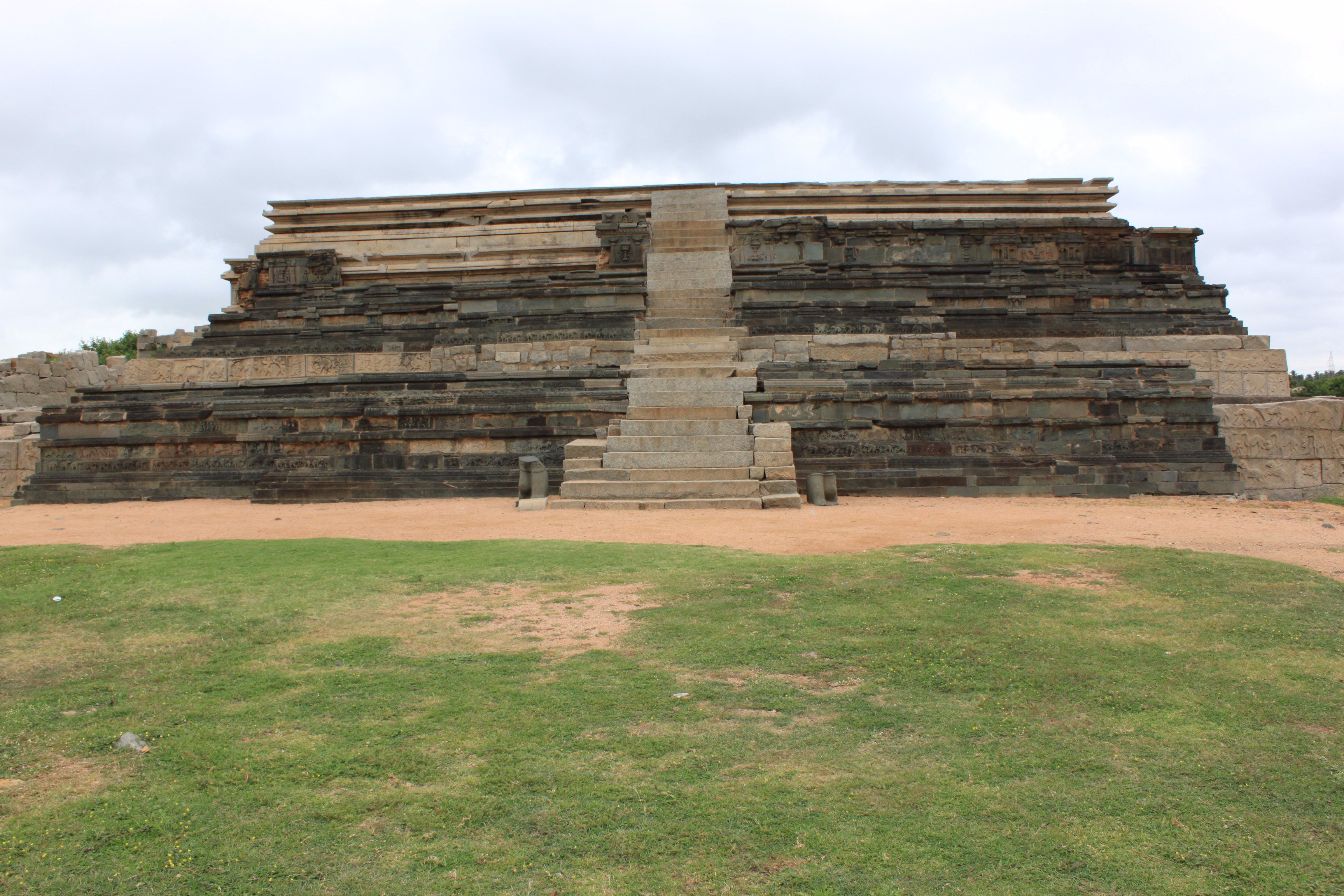 |
| This is what the dibba looks from the ground, but its massive & quite high. Will be left gasping for breath before reaching the top. |
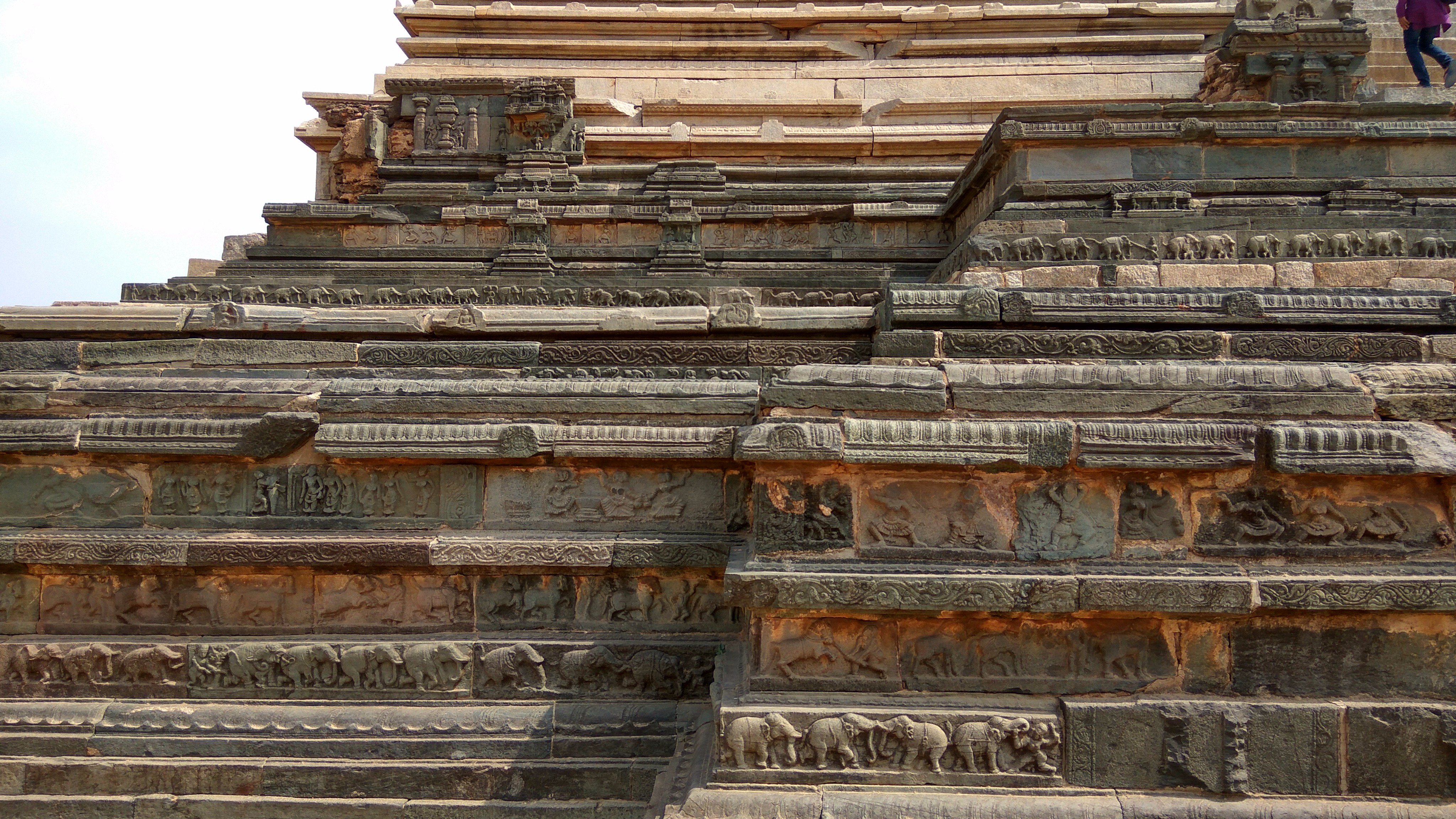 |
| Some of the intricate carvings on the base of the platform. As you can see its been mutilated. |
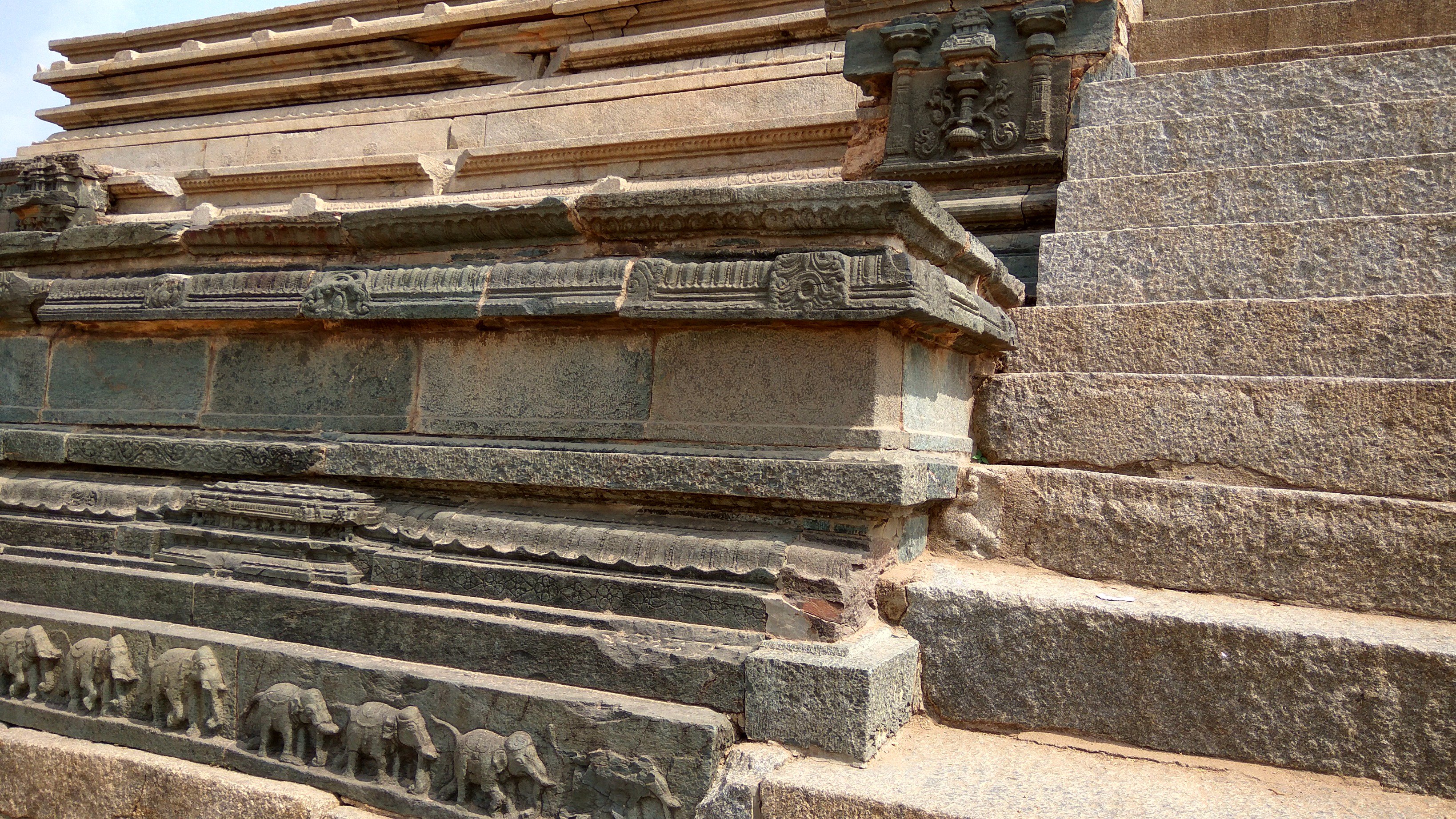 |
| Steps leading to the top |
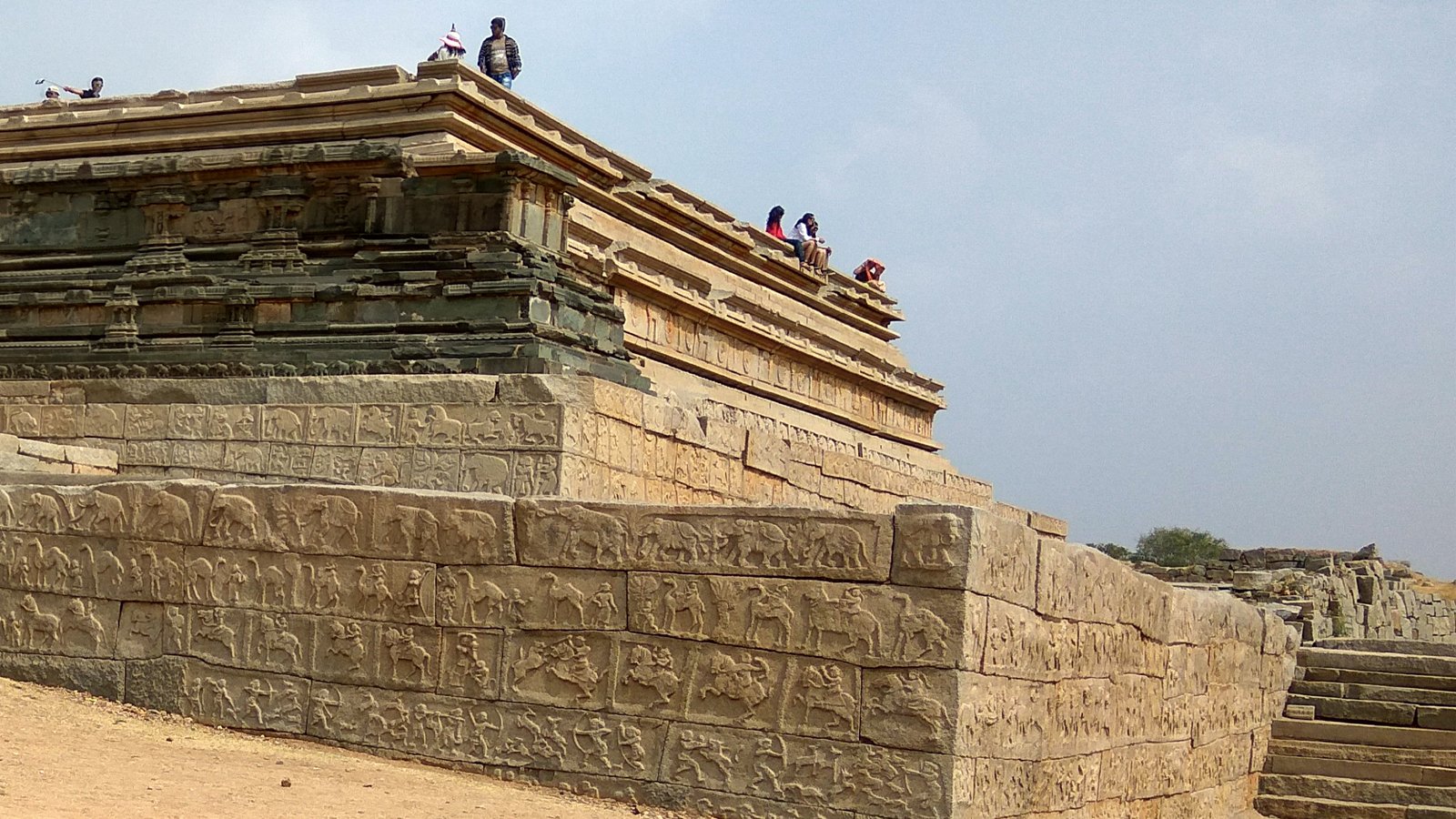 |
| Carvings of archery, sword fighting on horses & all kinds of weaponry. |
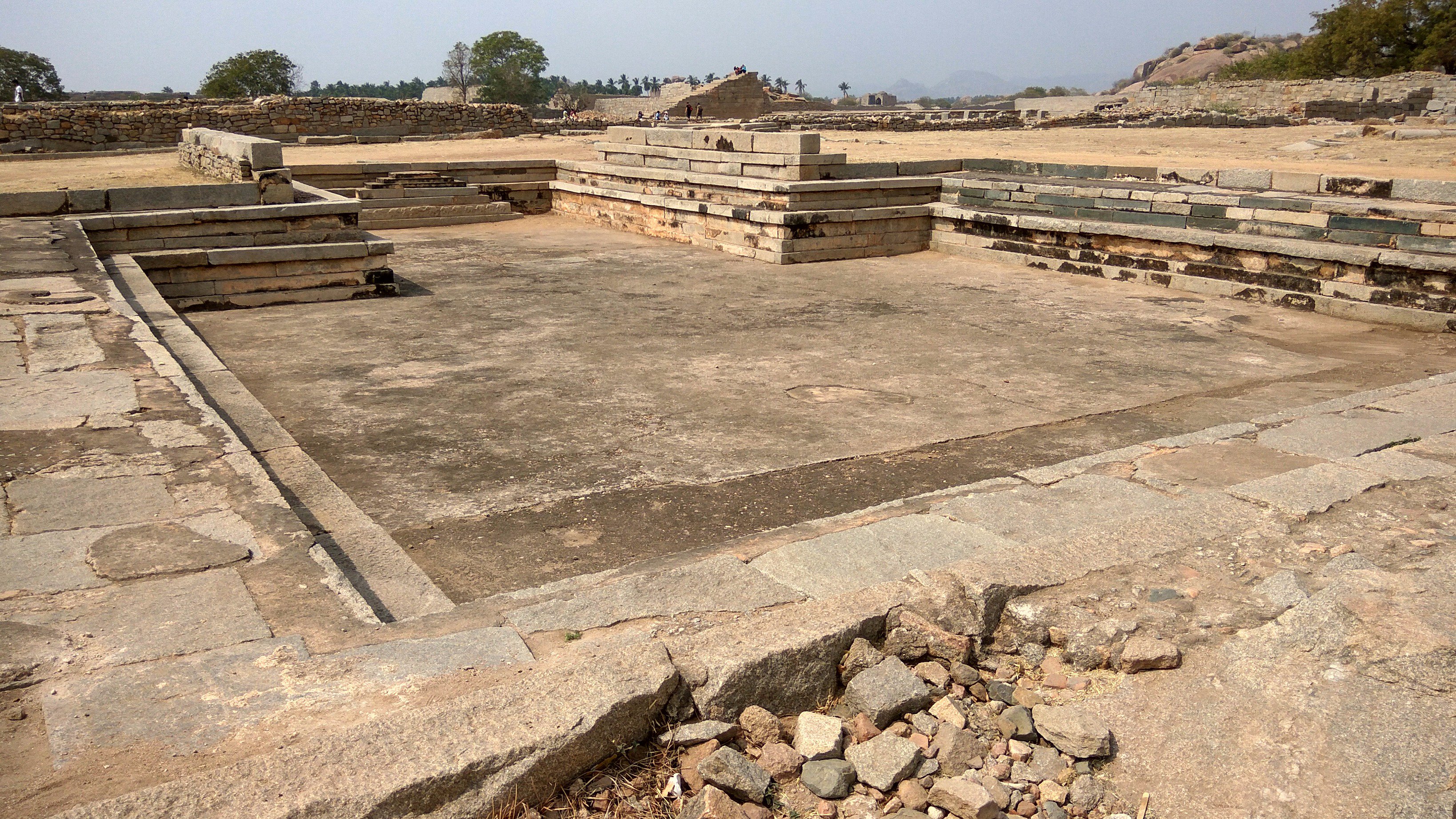 |
| Finally a dried up Kalyani. Typical. Happened wherever the barbaric genocidal cult of death set their foot upon. Complete annihilation. |
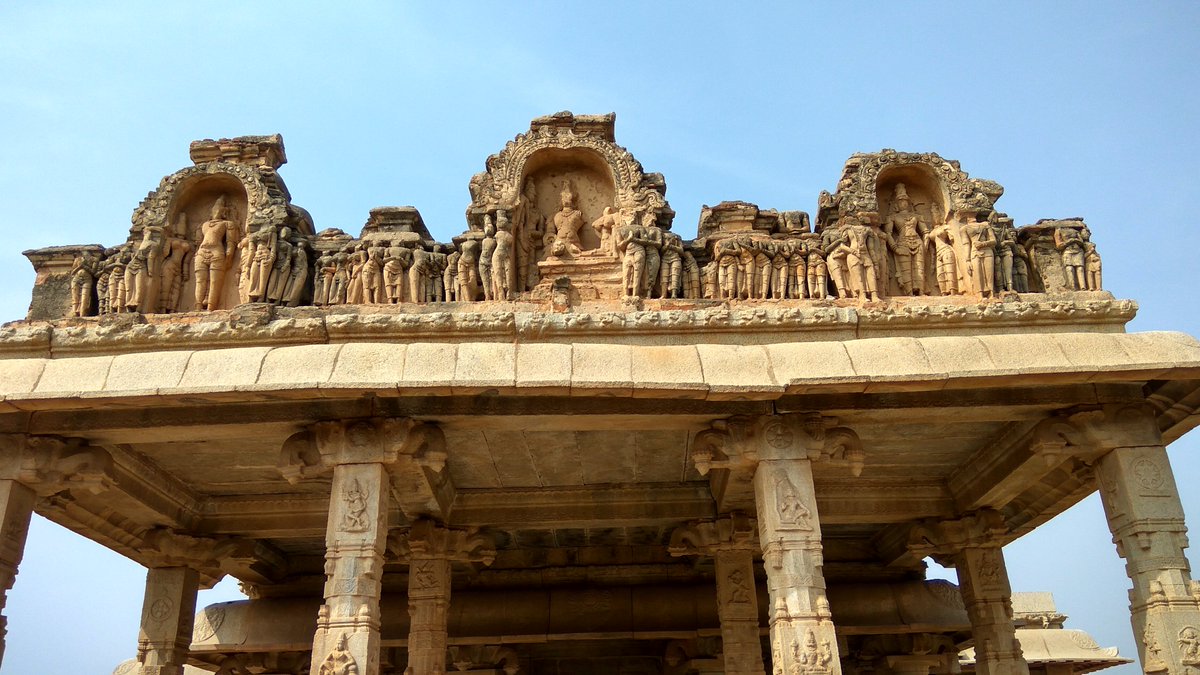 |
| The sight that greets you when you enter the Hazara Rama temple at Hampi. Every carving on the mantapam; maimed & mutilated. |
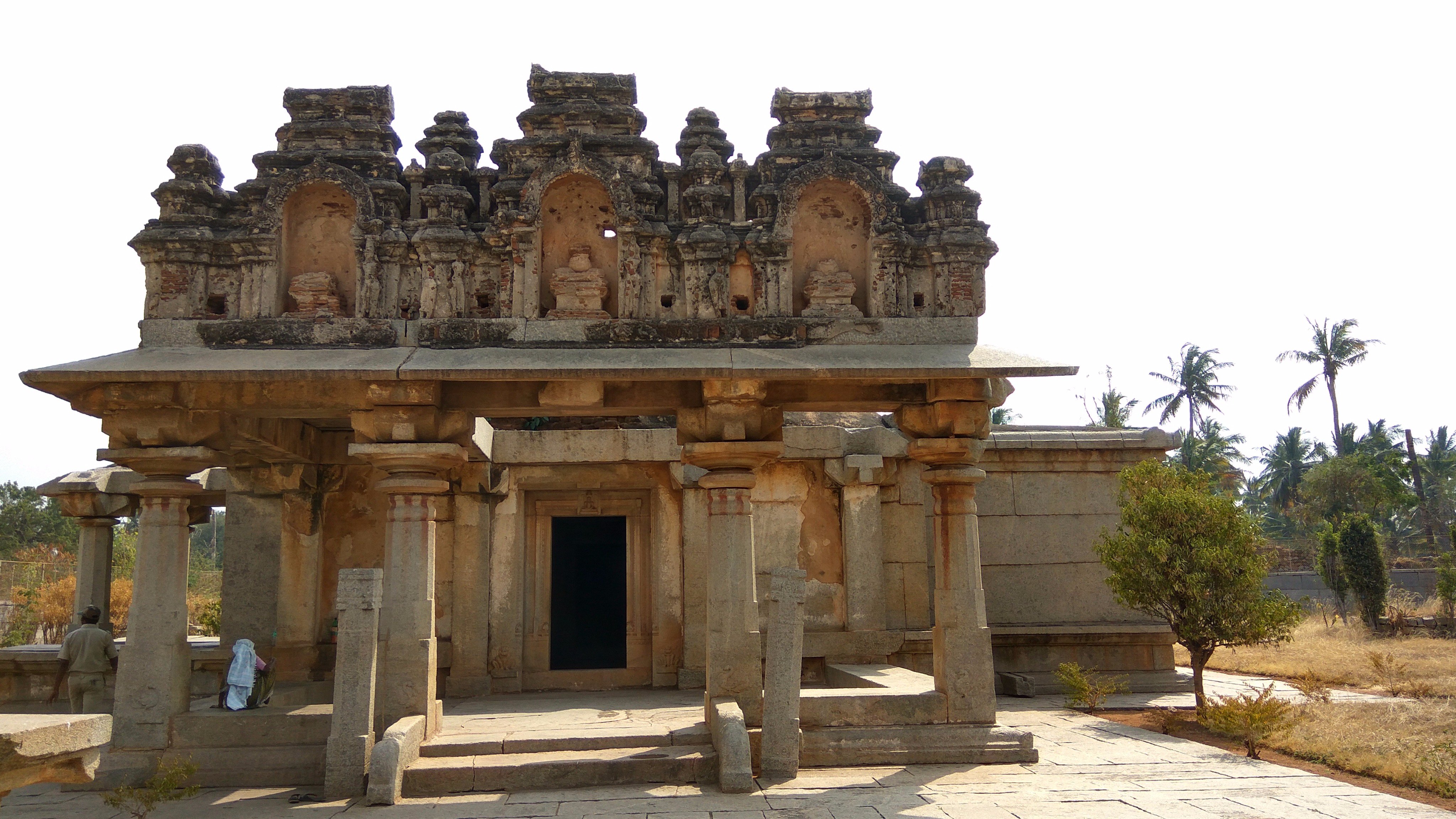 |
| This is the Ganagitti JAIN temple at Hampi. It was built under the patronage of HINDU king Harihara II. Wrecked by barbarians. |
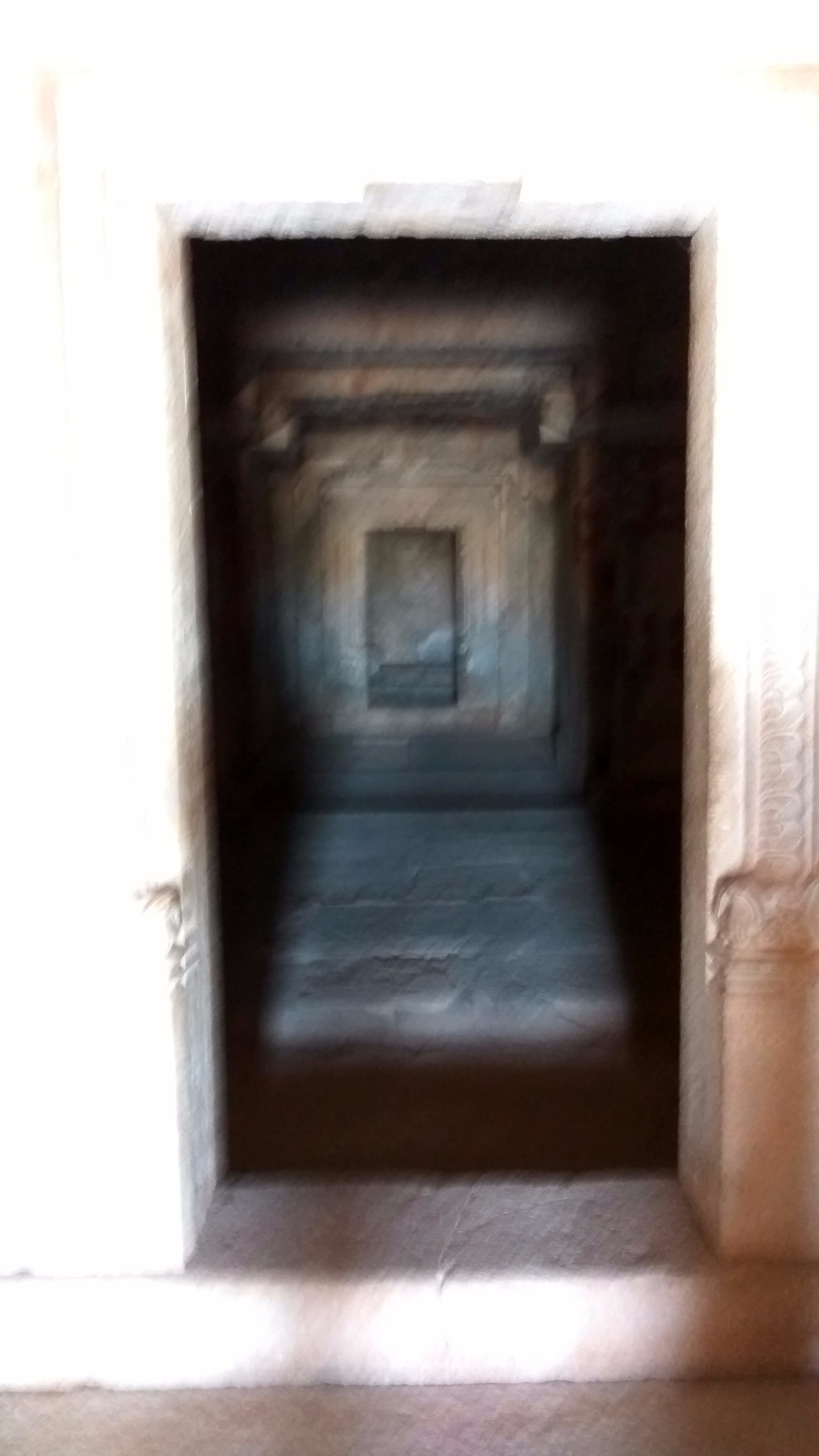 |
| This is the garbhagriha. The presiding deity was Kunthunatha, the 17th Jain Tirthankara. The idol was smashed to smithereens by barbarians. |
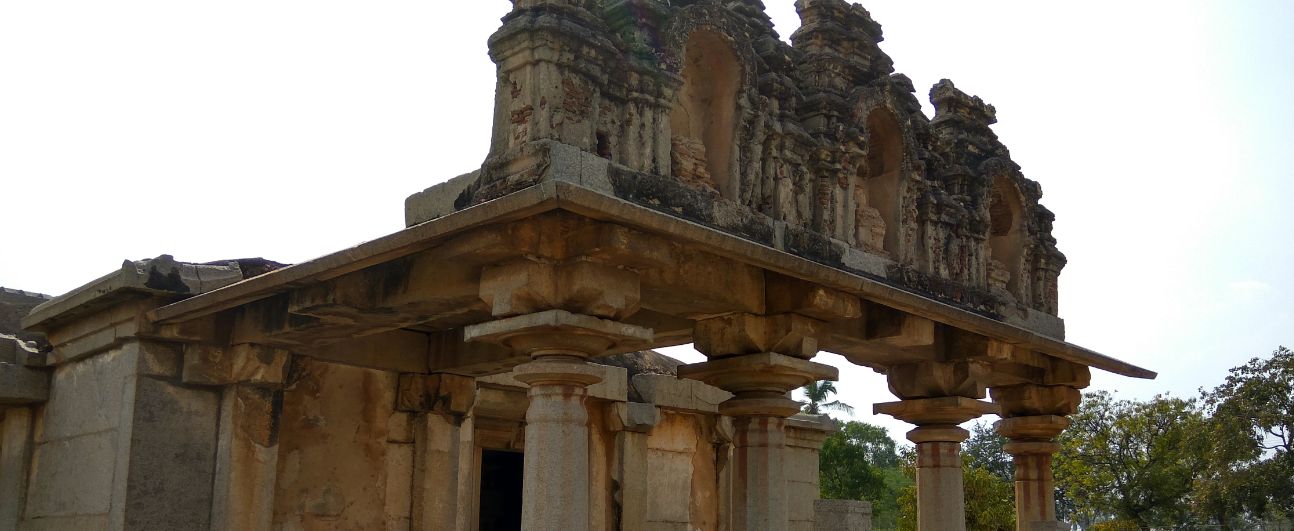 |
| Invaders made no distinction when it came to destroying Temples, be it Hindu or Jain. |
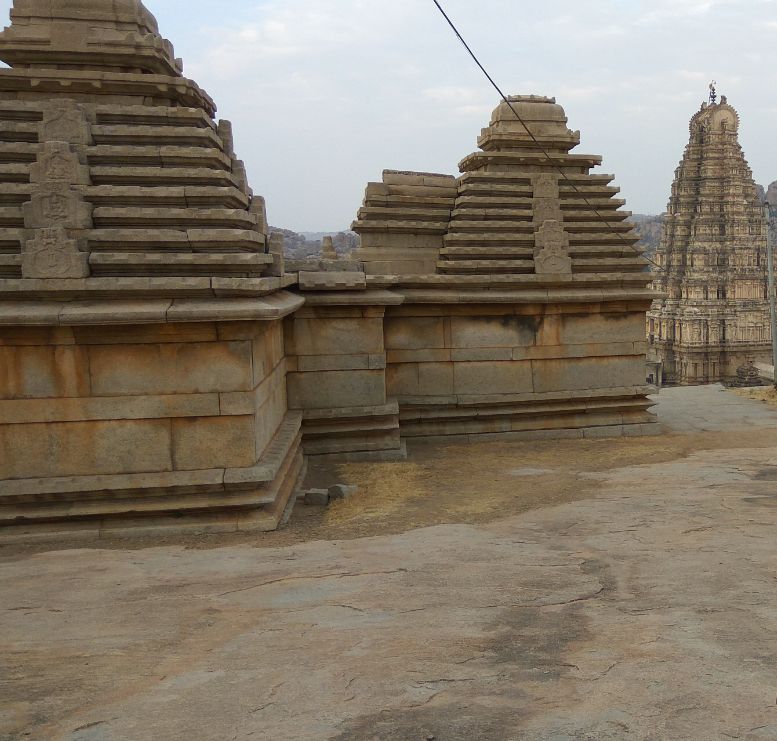 |
| A Jain temple in the foreground atop the Hemakuta hill, in the background is the Virupaksha temple Gopuram. Jains & Hindus have co-existed for centuries. Unlike the invading cults which are incompatible to this land. |
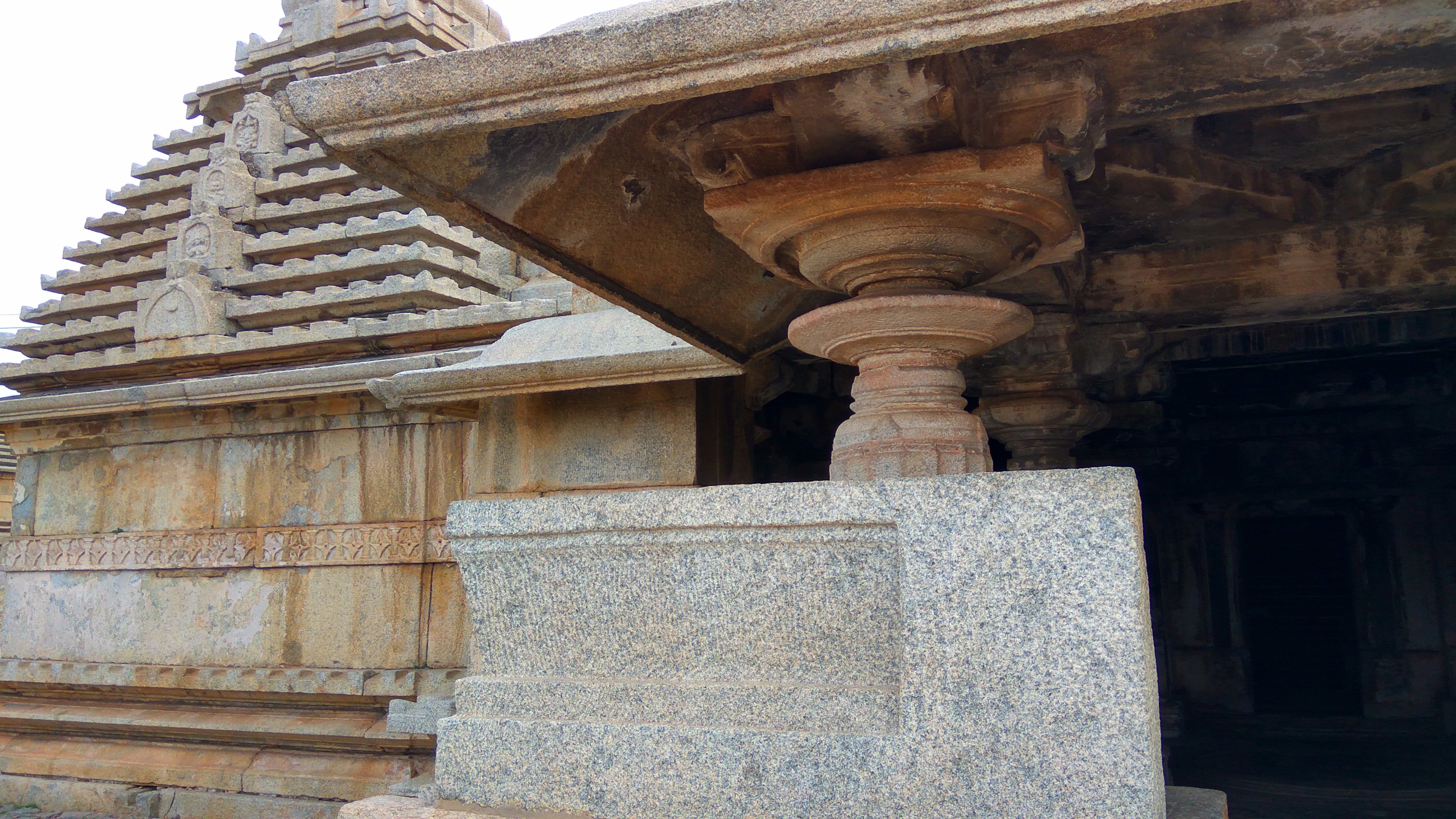 |
| This jain temple on the hemakuta hill has all the tell-tale signs of being set on fire. The sanctum is empty. The Vimana stands though. |
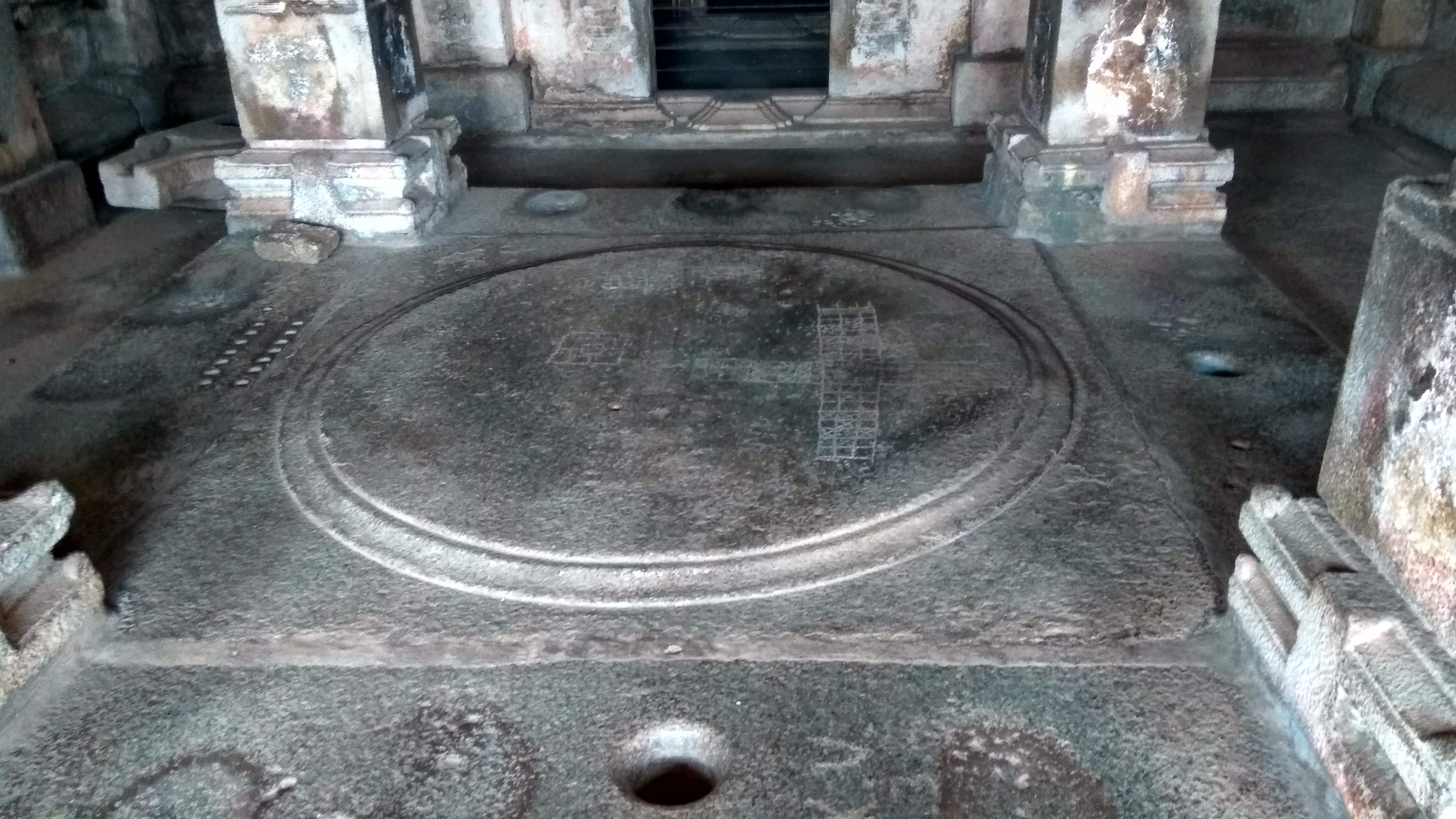 |
| Inside one of the Trikuta jain temple at hemakuta hill. Soot all over the place. This one had 3 garbhagrihas .All abandoned |
In conclusion
The question we present day Hindus have to ask ourselves is do we take home lessons from the blunders of the past or continue the vicious cycle. With the barbarians at the gate, it is a no brainer that Hindus have to set aside petty differences & close ranks to preserve our Dharmic way of life. After the plunder of Hampi, the once united invading forces of deccan sultanate fought among themselves & perished. They had no civilization to protect unlike Vijayanagara. They had no skin in the game. Their endgame was to destroy Vijayanagara & its Hindu dwellers, which they did.
Vijayanagara on the other hand had everything to lose. By not learning lessons of the past, later kings of the empire undid all the hard work & sacrifices their ancestors had put in to build this glorious empire. Today's Hindu finds himself in the same position as the subjects of Vijayanagara once found themselves in. The question is do we take lessons from history or continue repeating the same blunders. The choice is ours. Choose wisely.












































































































